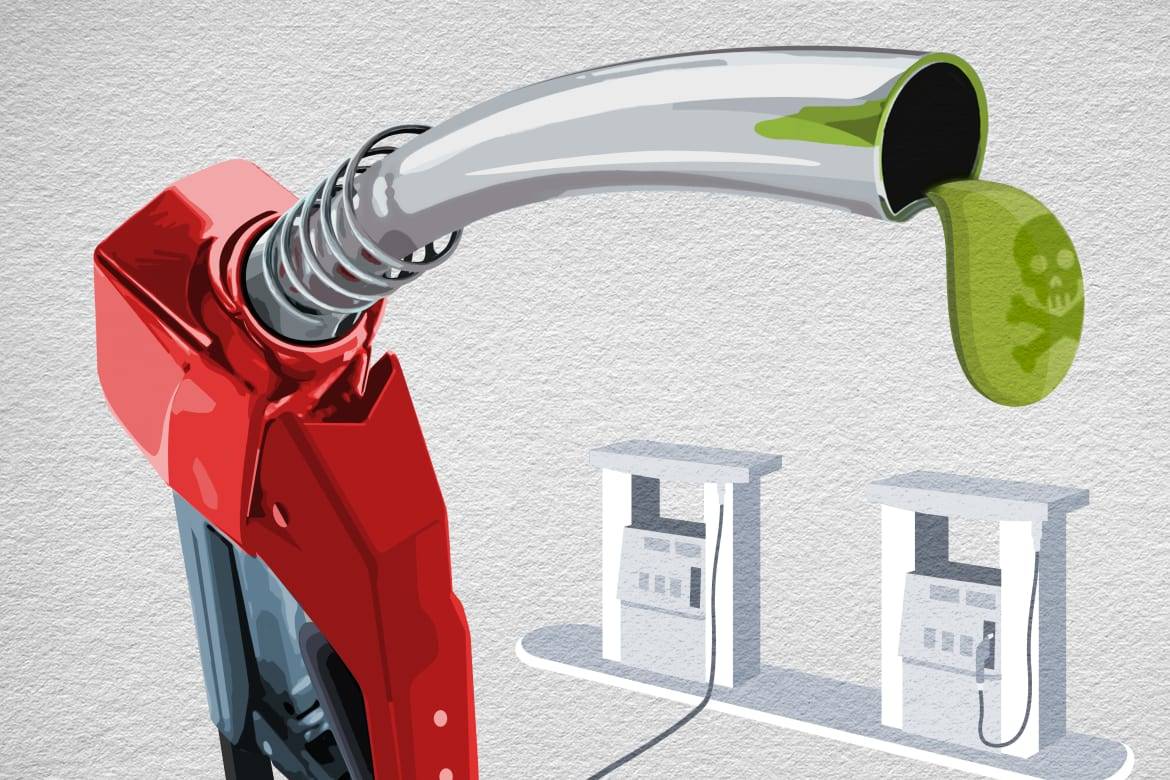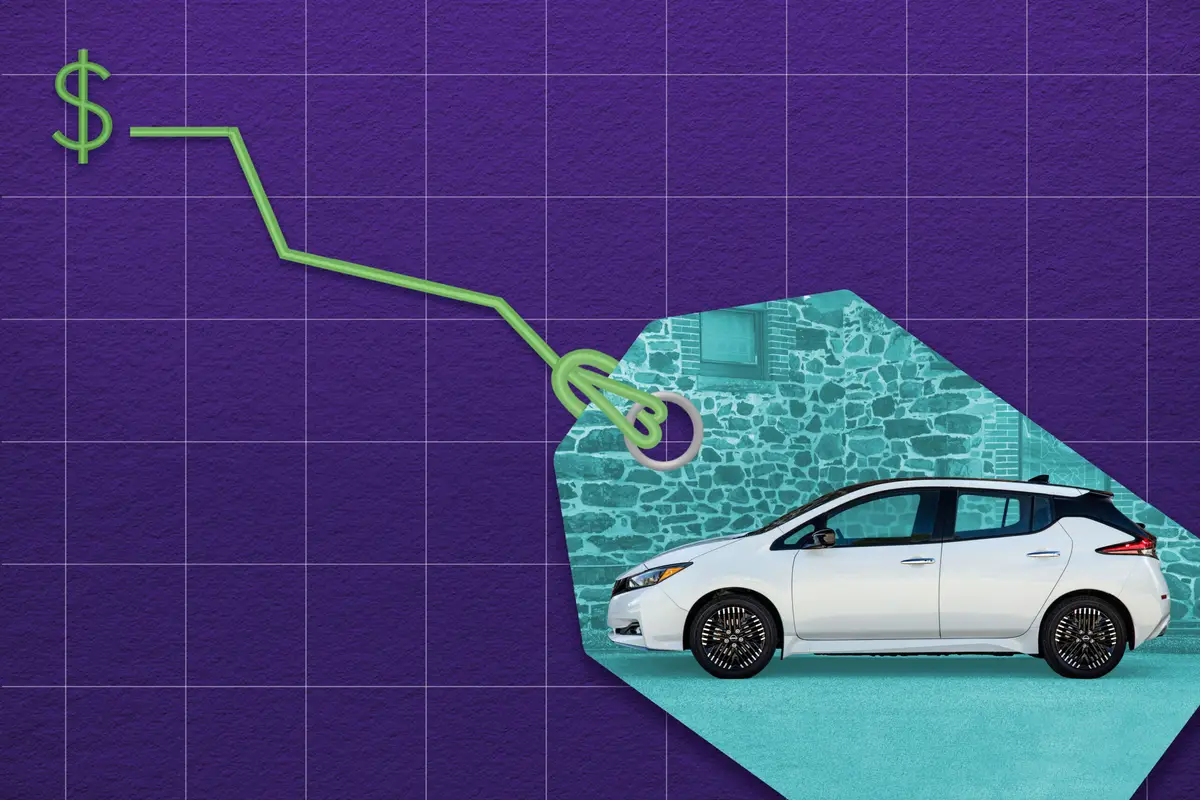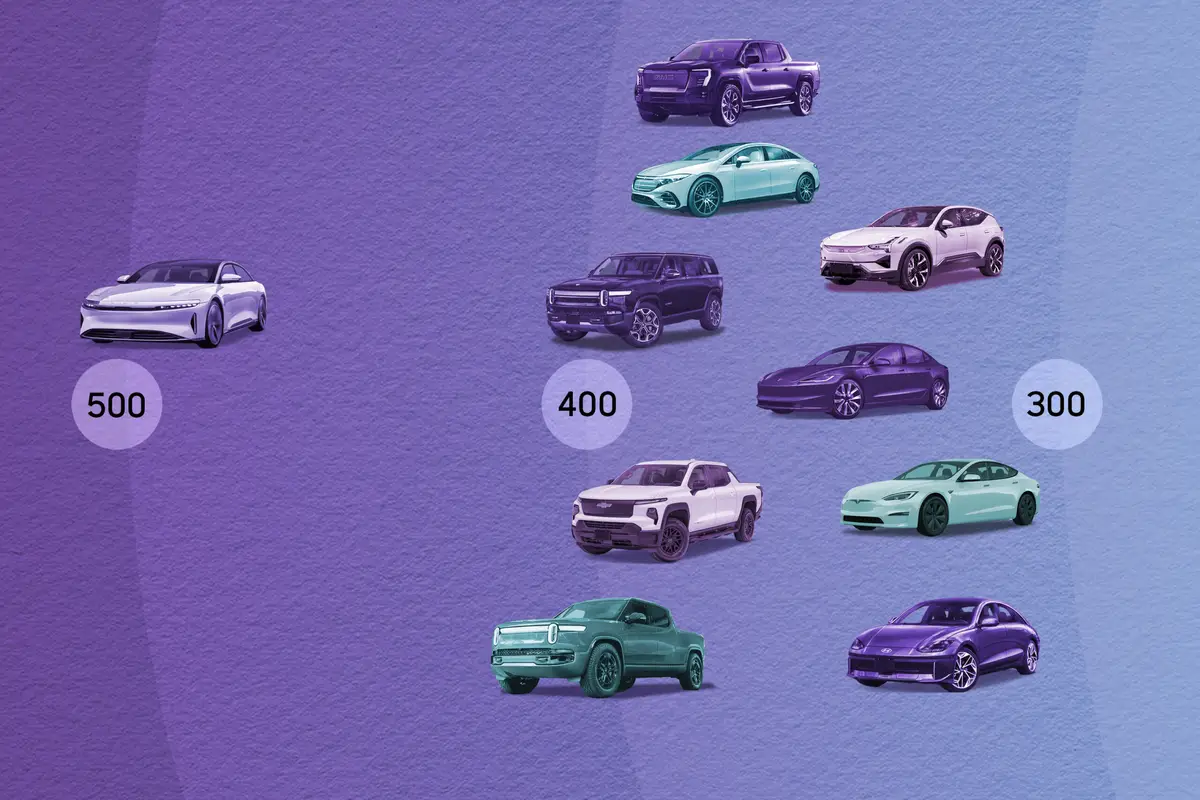2025 Audi Q5 and SQ5 Review: Bolder, Mostly Better


Are the Audi Q5 and SQ5 Good SUVs?
- Updates to both versions of Audi’s bestselling Q5 family keep them technologically up to date and allow them to maintain a level of comfort, style and performance that luxury compact SUV buyers are looking for.
How Do the Audi Q5 and SQ5 Compare With Other Compact Luxury SUVs?
- The Q5 and SQ5 have class-leading screen technology, and the SQ5 is the most fun to drive of the mid-level sporty luxury compact SUVs currently on sale, but the Q5 and SQ5 are still relatively anonymous-looking compared to the polarizing BMW X3 and stylish Genesis GV70.
For 2025, Audi is selling two versions of its bestselling Q5 compact SUV: the previous generation and an all-new version with updated styling, new interior technology and enhanced powertrains. The all-new Q5 family gets more horsepower and torque than its predecessors, as well as revised steering to go along with more expressive exterior styling and vastly improved interior technology.
Related: New 2025 Audi Q5 and Q5 Sportback: Daring New Look for the Brand’s Bestseller
To find out if this new generation is an improvement, I headed to Colorado to drive both the 2025 Q5 and SQ5 (per Cars.com’s ethics policy, we pay for our travel and lodging costs when attending such manufacturer-sponsored events). The versions I drove were fully loaded Prestige variants; the Q5 carried an as-tested price tag of $63,290, while the SQ5 was $74,740 (all prices include a $1,295 destination fee).
Related Video:
What’s New With the 2025 Audi Q5 and SQ5?
The updates begin outside with more expressive and dynamic exterior styling. It makes both the Q5 and SQ5 look somewhat less anonymous than previous generations, but I don’t think they have nearly as much pizazz as the also recently refreshed 2026 Genesis GV70. Audi has also updated the exterior lighting for the Q5 family, and with the top-of-the-line LED headlights and organic light-emitting diode taillights, owners can choose from eight different patterns for the daytime running lights and rear taillamps — adjustable from either the central touchscreen or Audi’s smartphone app — for increased personalization. Is that cool or interesting? Possibly to you, but not to me.
Inside, the most noteworthy updates are the new Audi Stage infotainment suite and some updated driver controls. Audi Stage is made up of the familiar Virtual Cockpit, featuring an 11.9-inch digital instrument panel and a new 14.5-inch center touchscreen. The SUV’s touch-sensitive climate controls are in a fixed position in the lower portion of the touchscreen rather than physical controls like the previous Q5 or in an annoying secondary touchscreen like the larger Q7. The steering-wheel and driver’s door-panel controls, however, take a step backward, as they’re now touch-sensitive panels sectioned off into different functions.
What Is the New Interior of the Q5 and SQ5 Like?
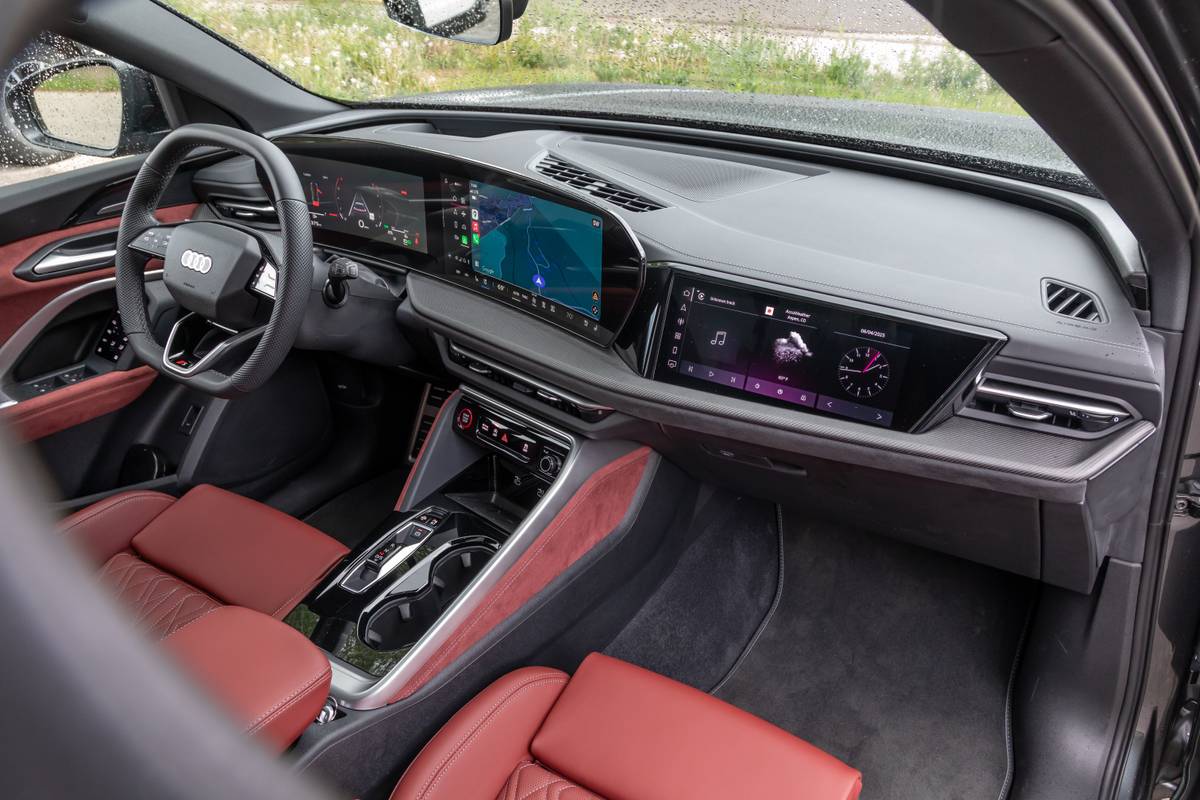
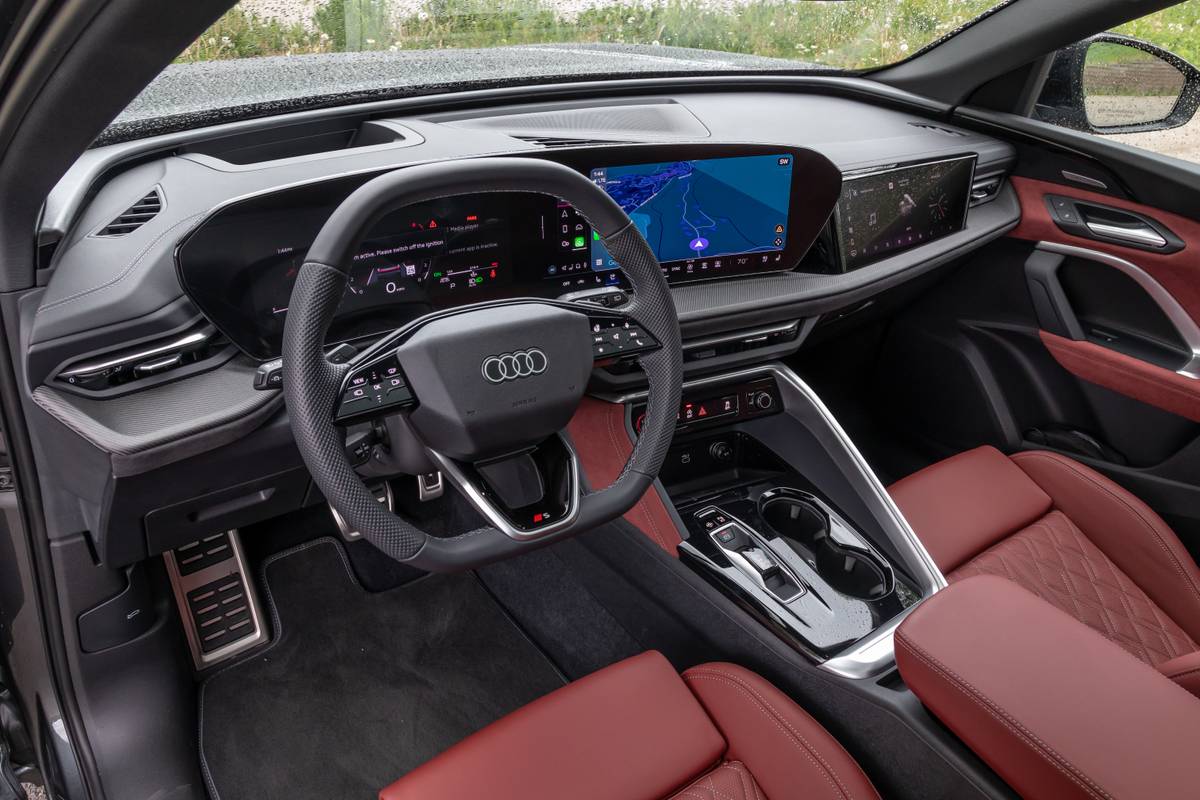
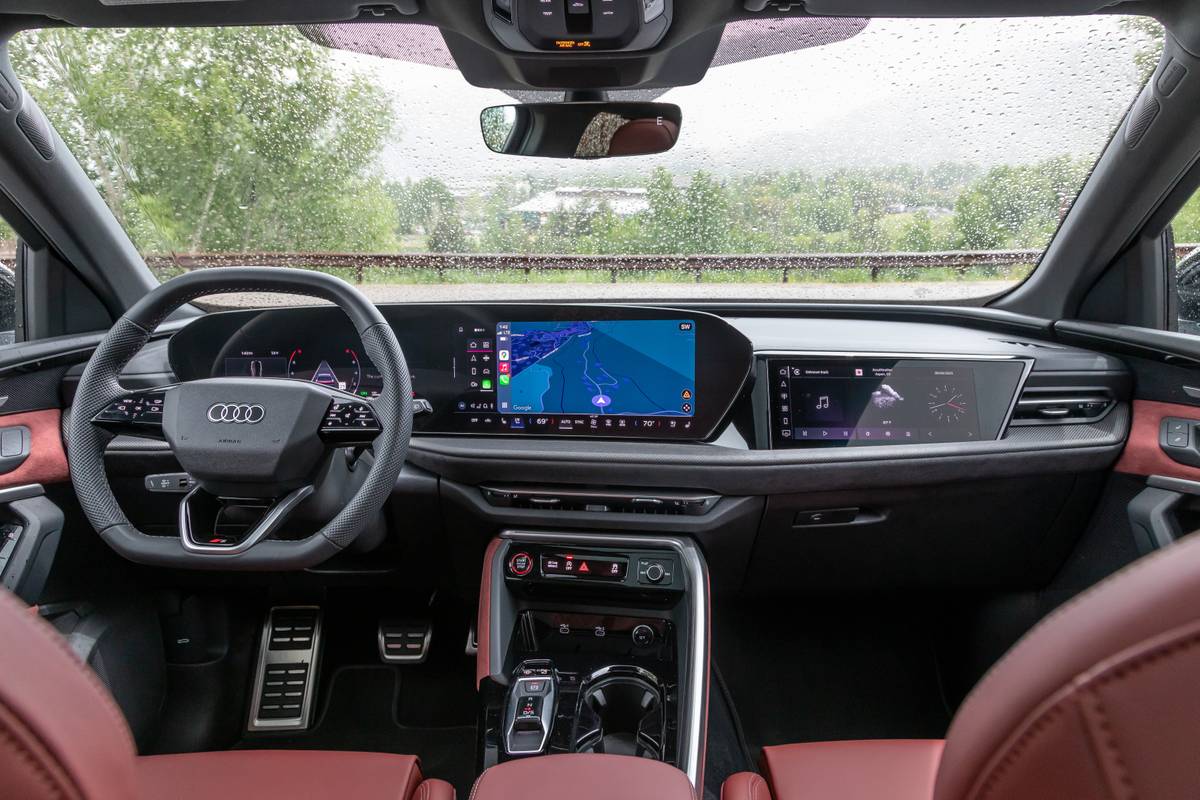
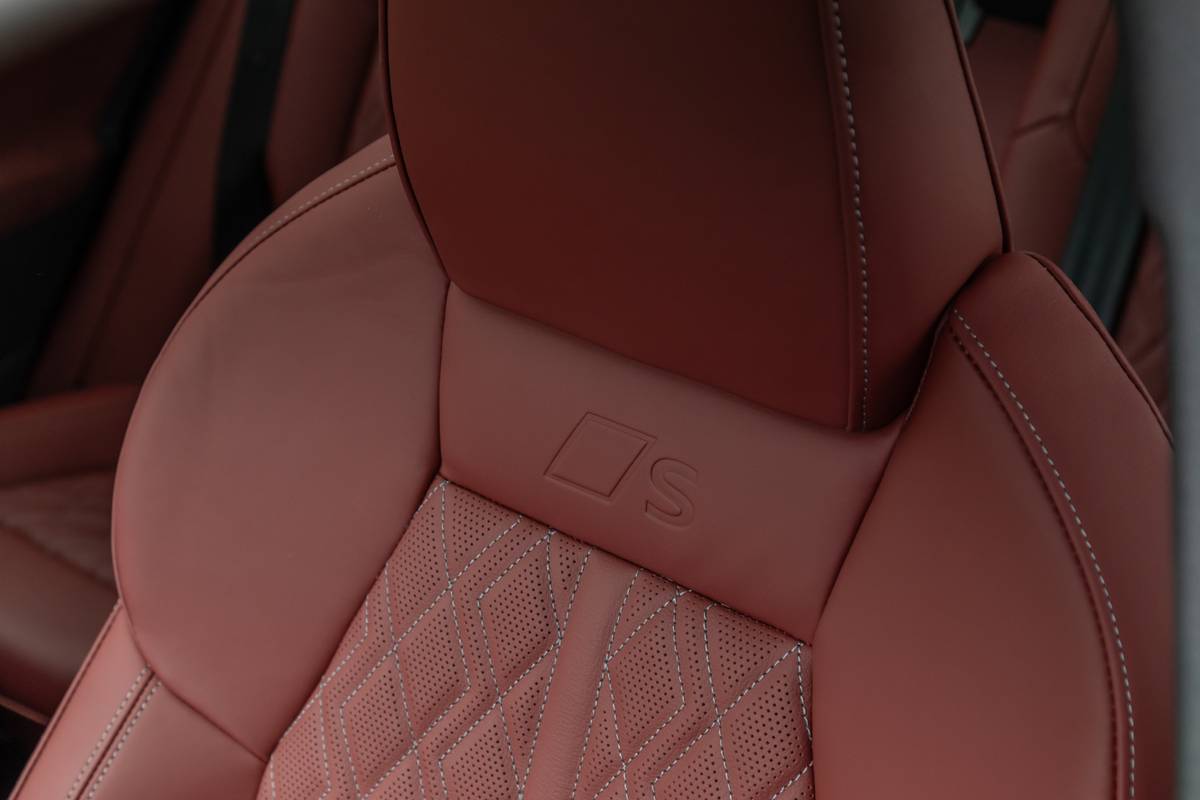
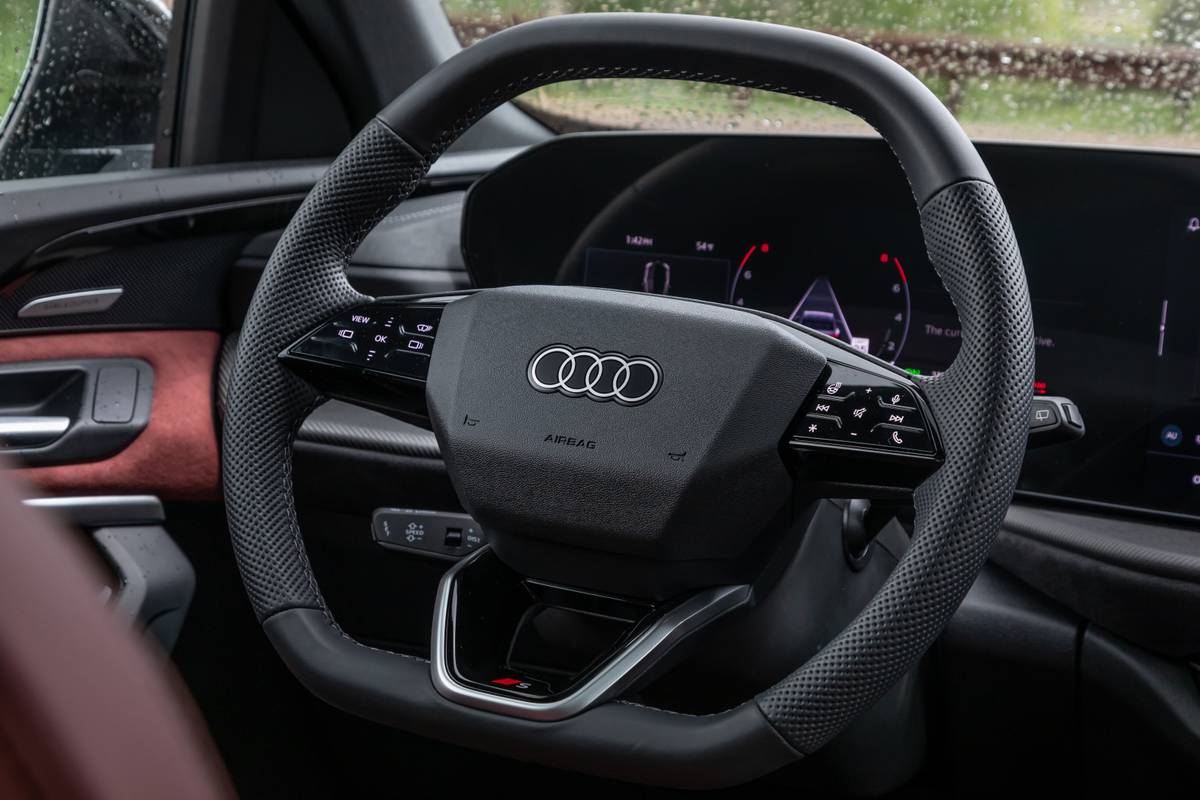

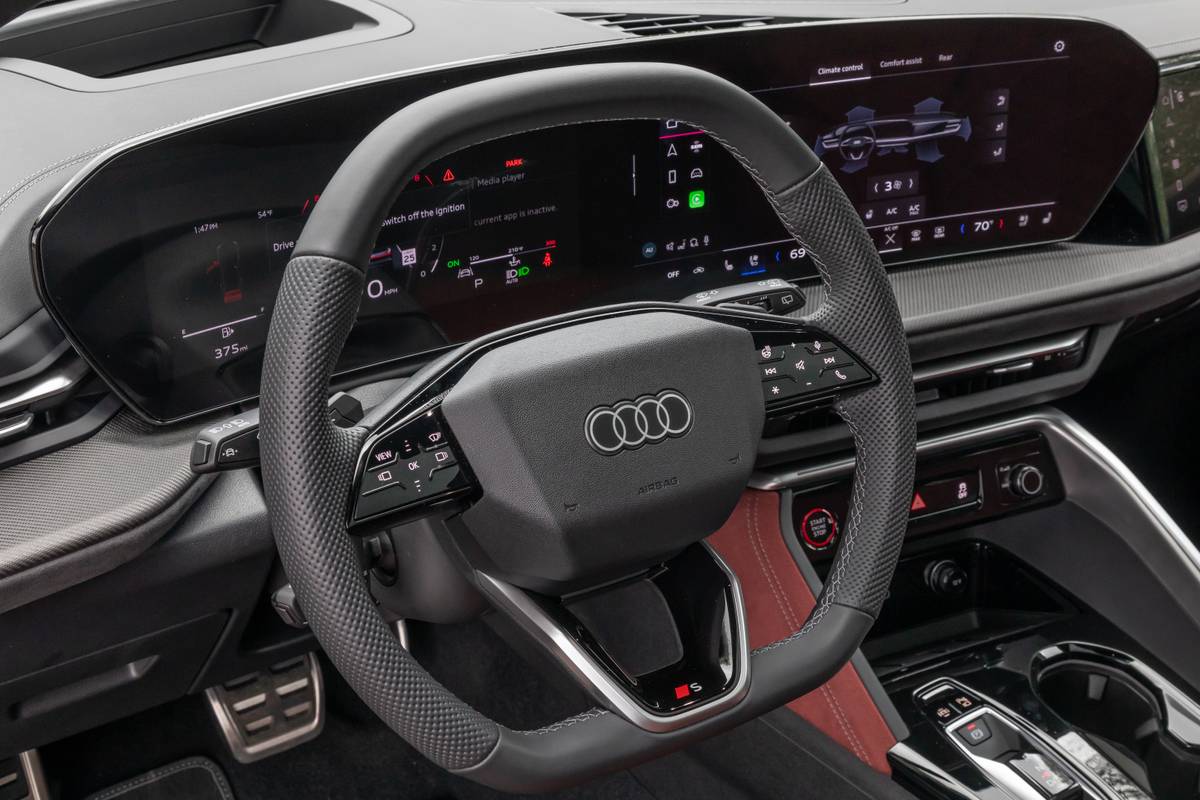
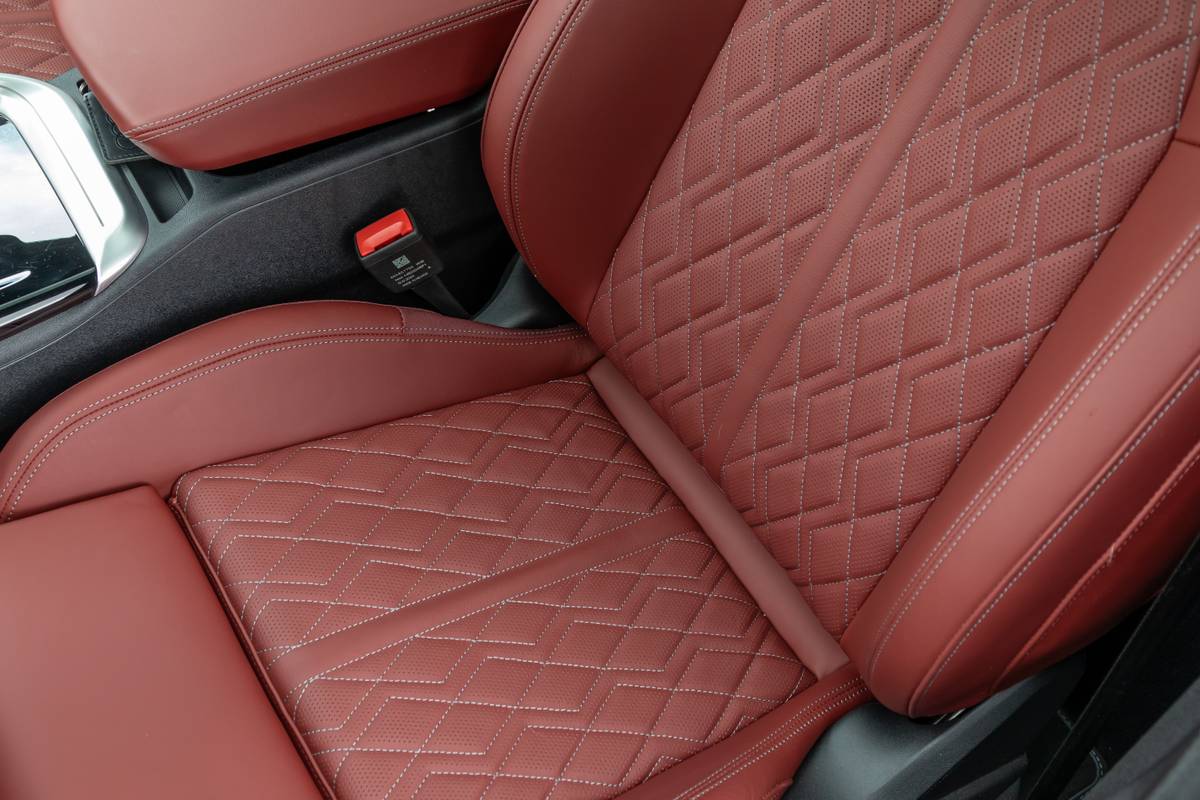
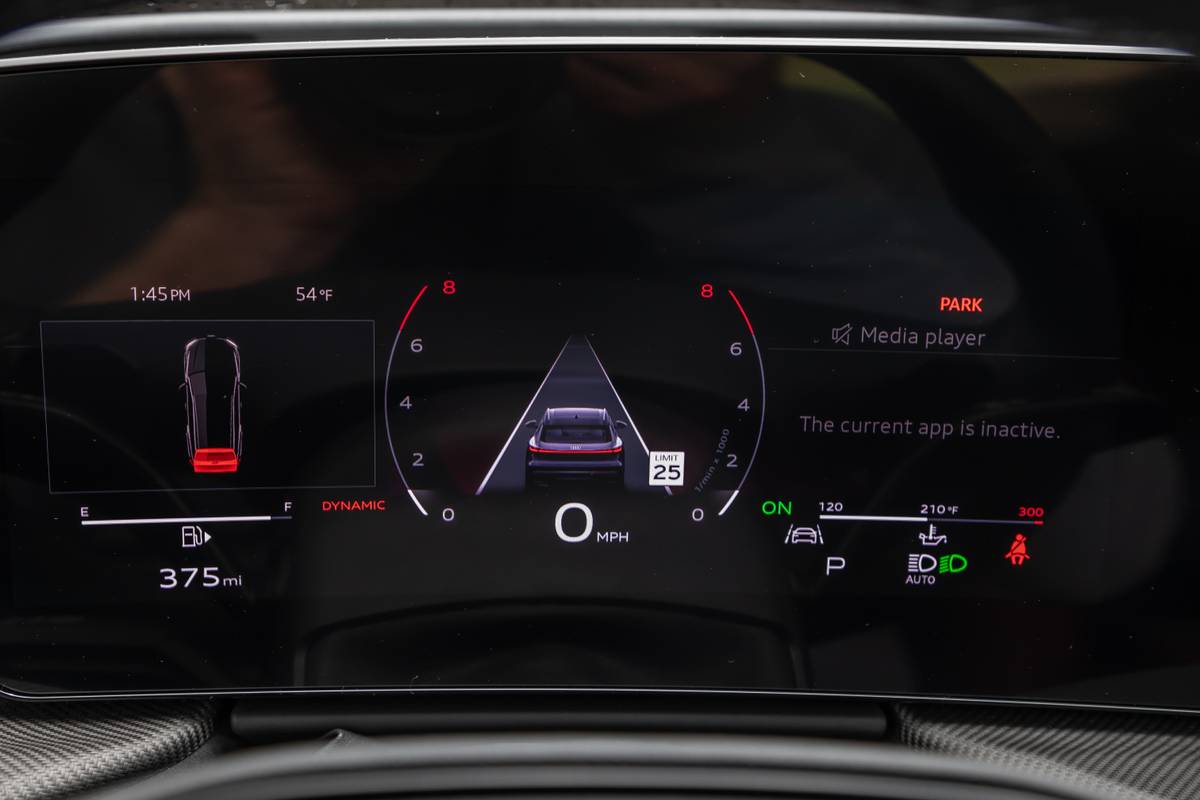
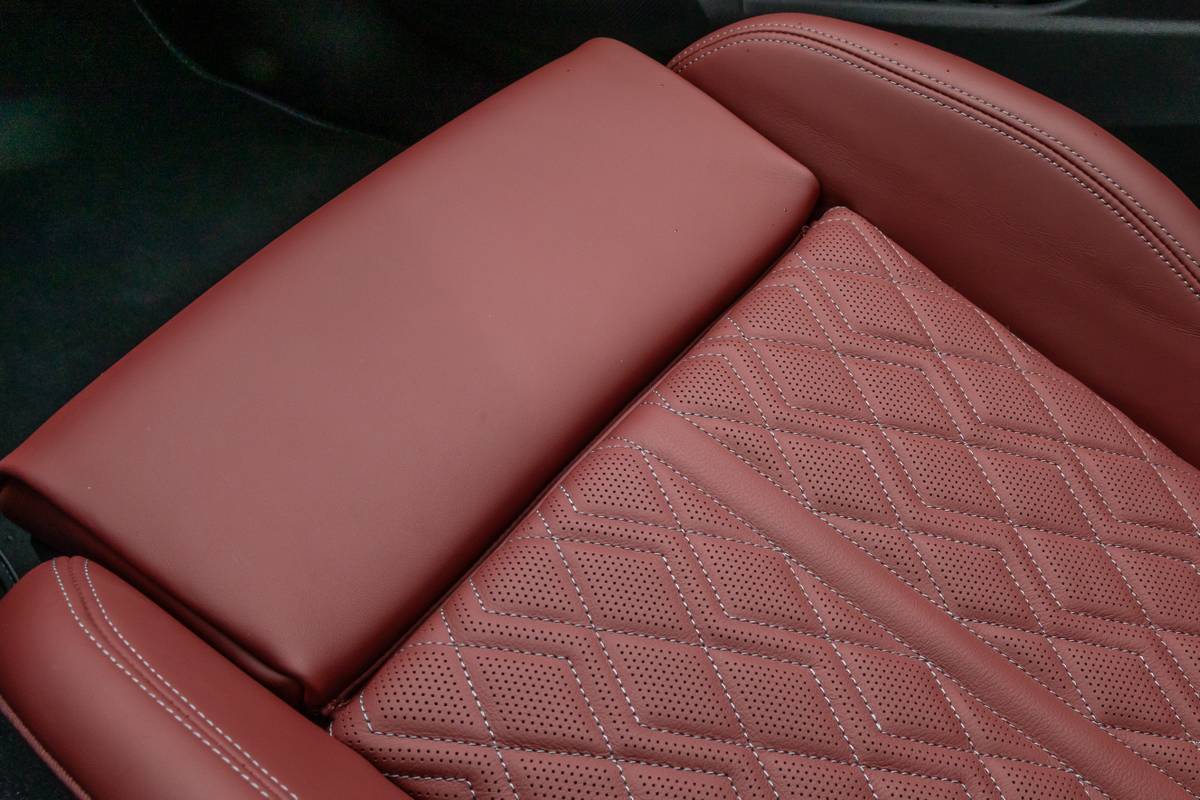
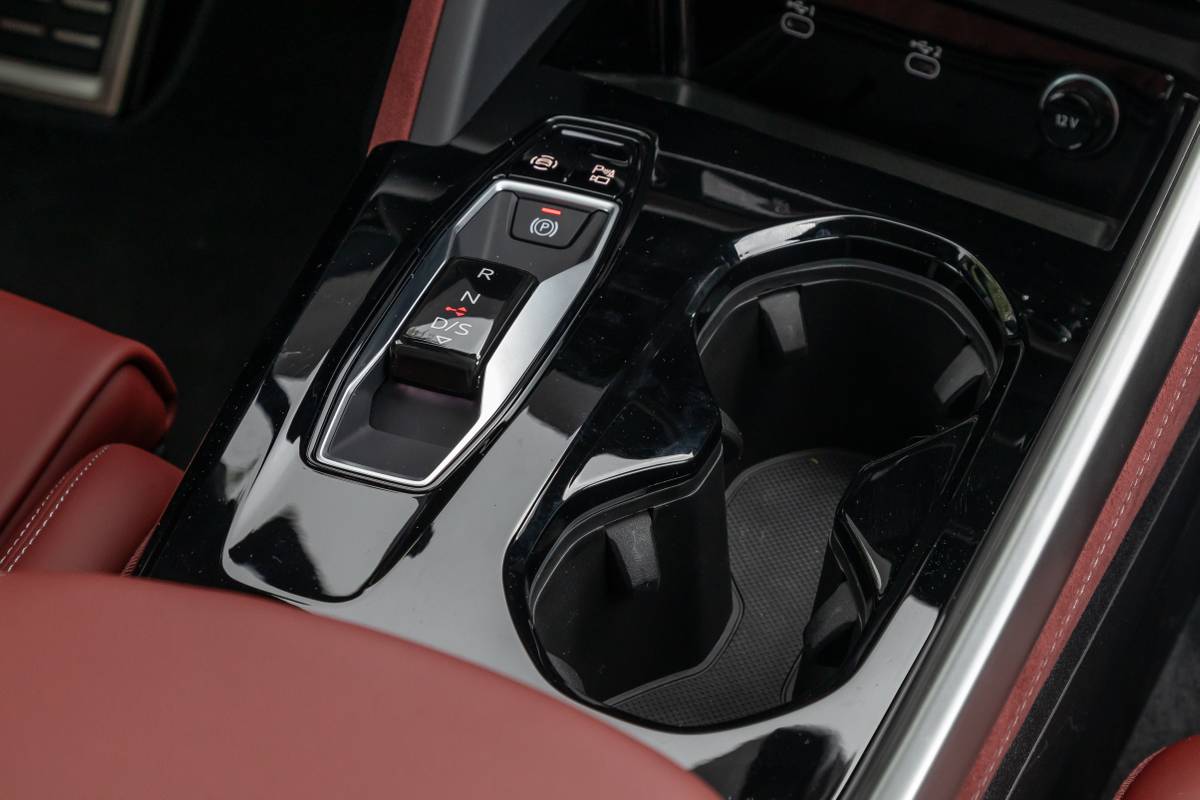
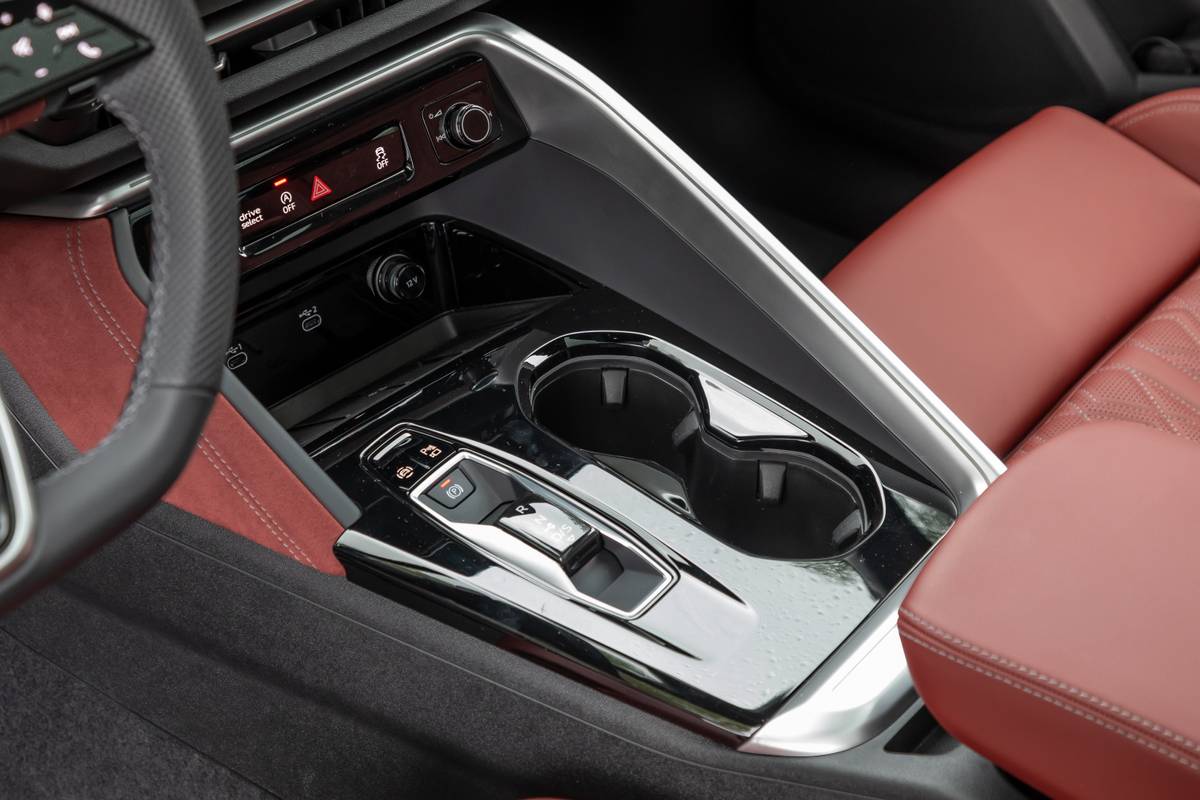
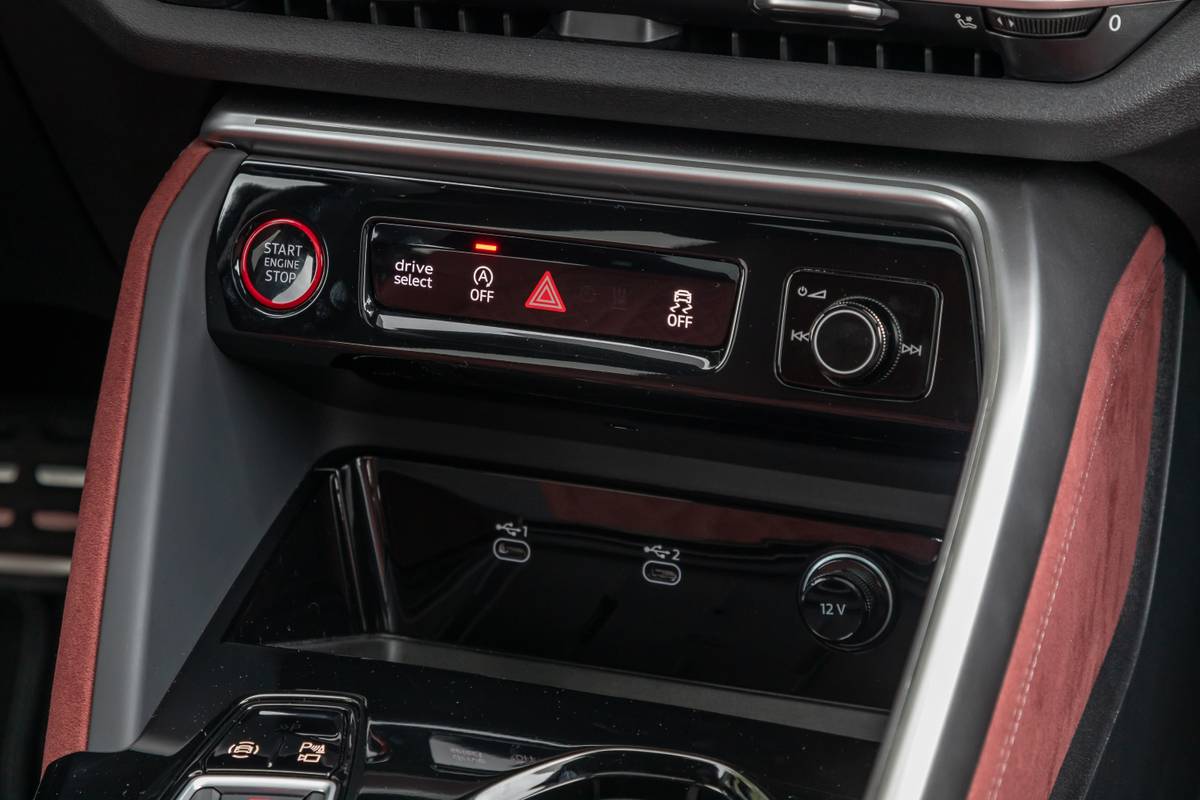
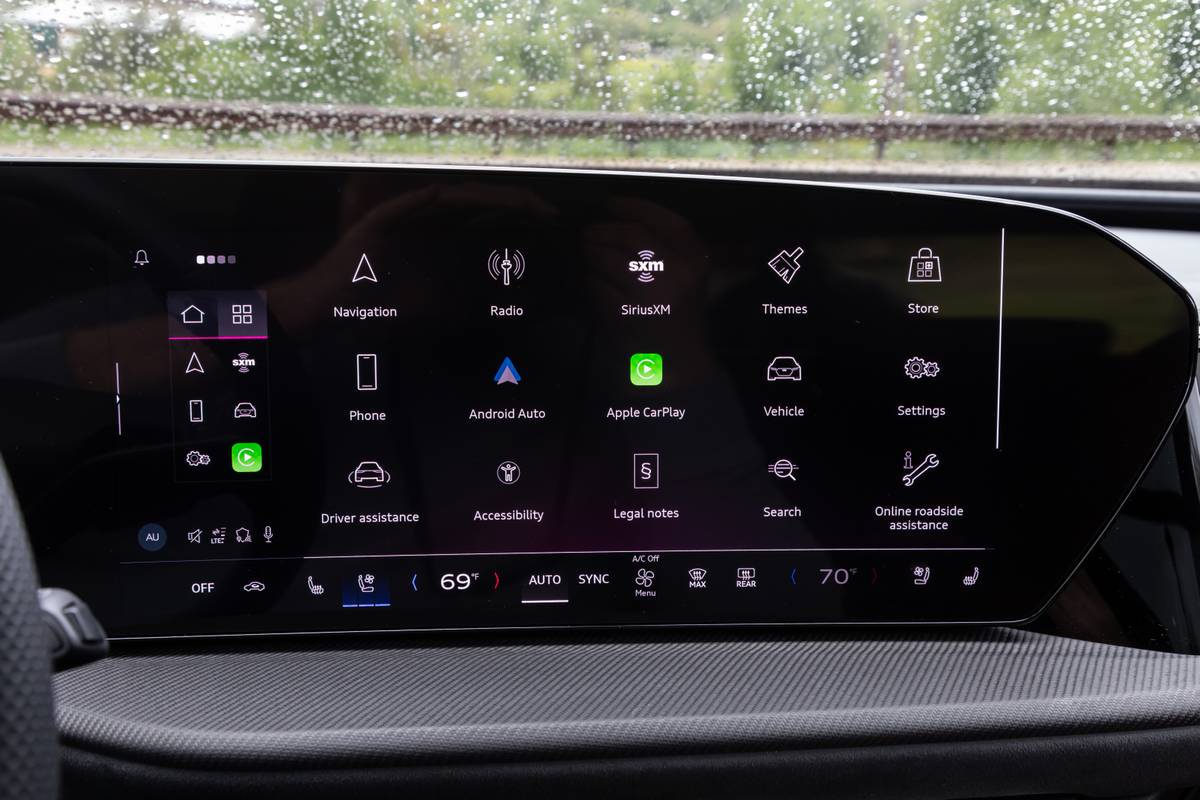
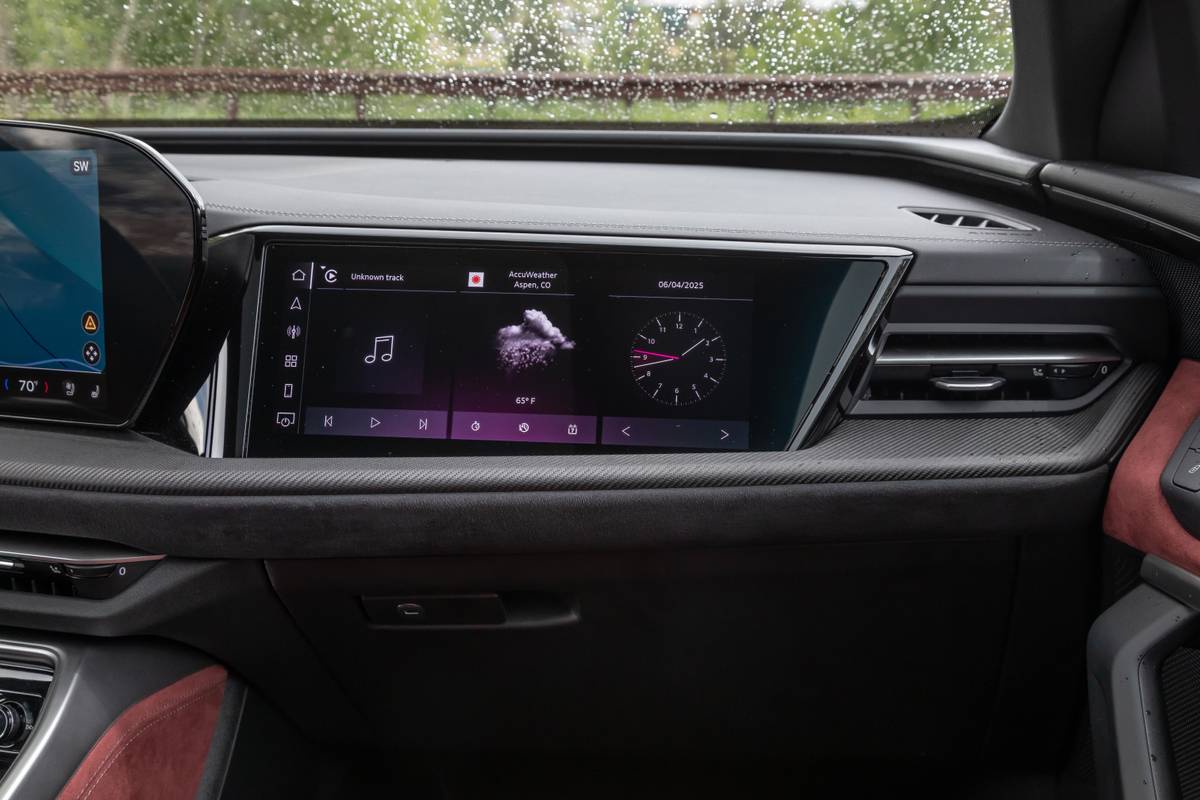
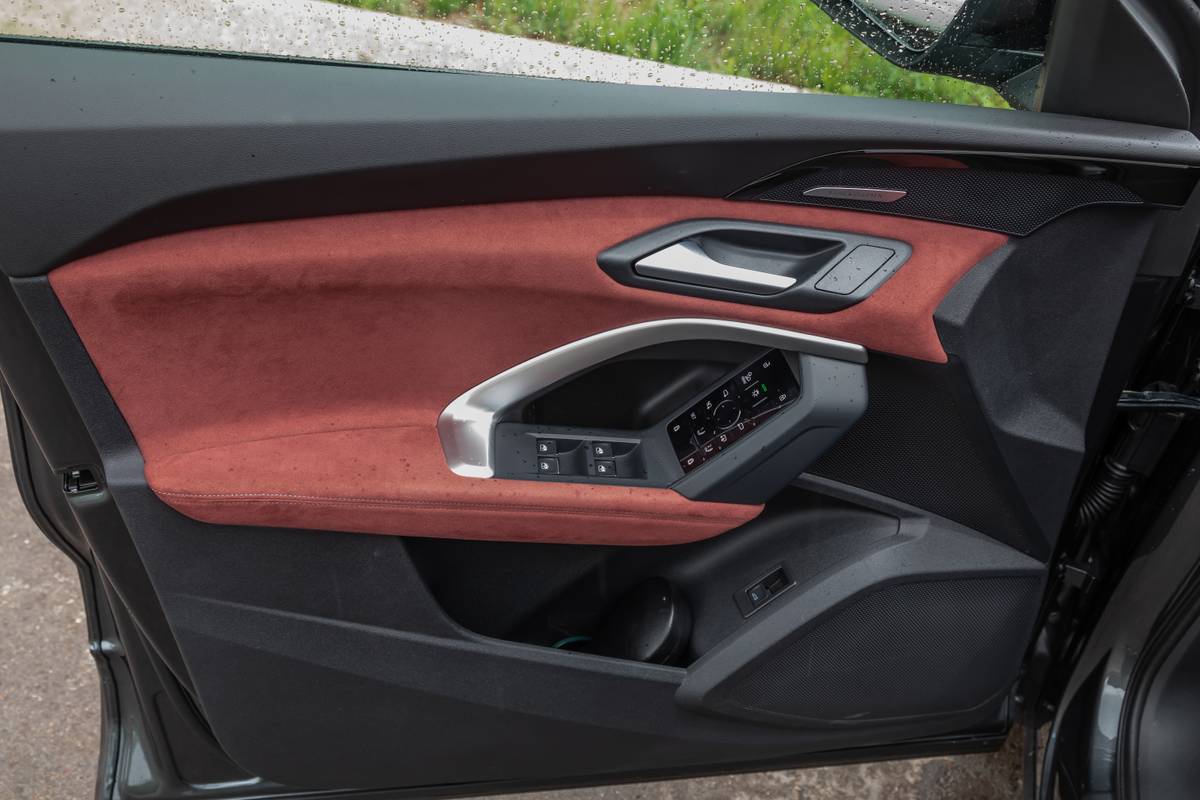
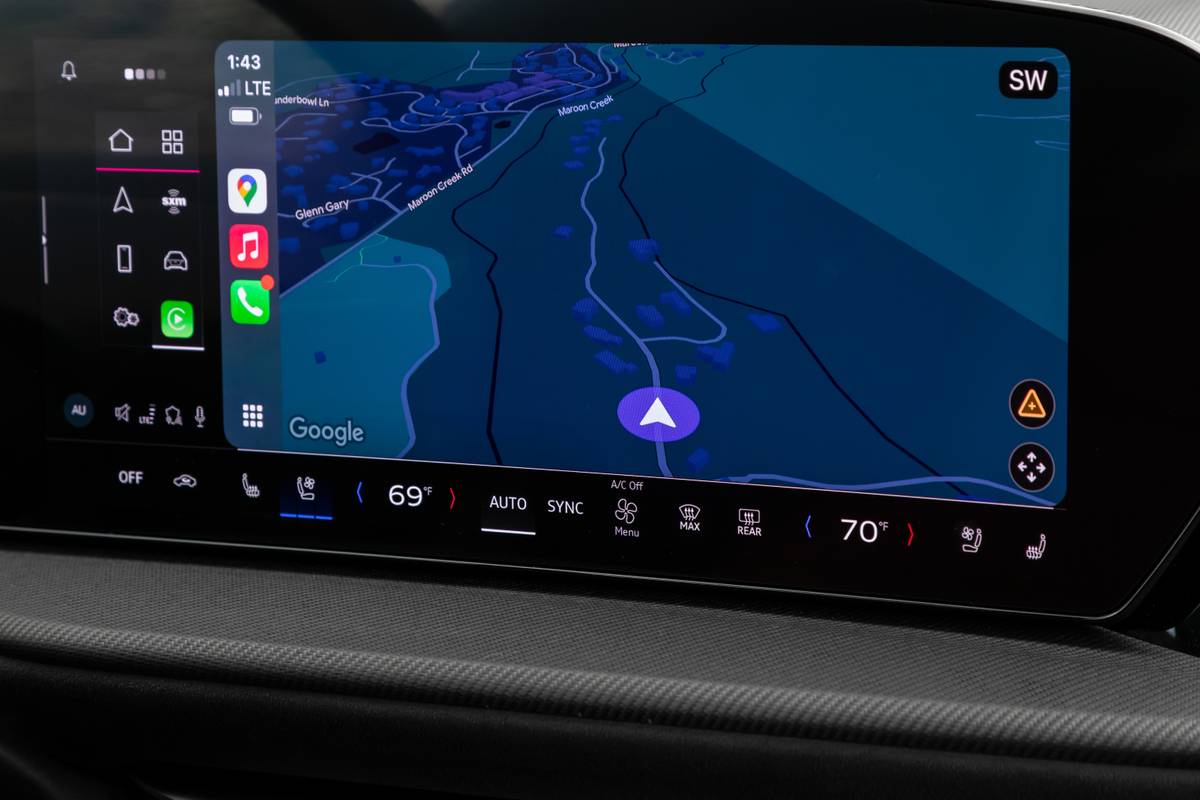
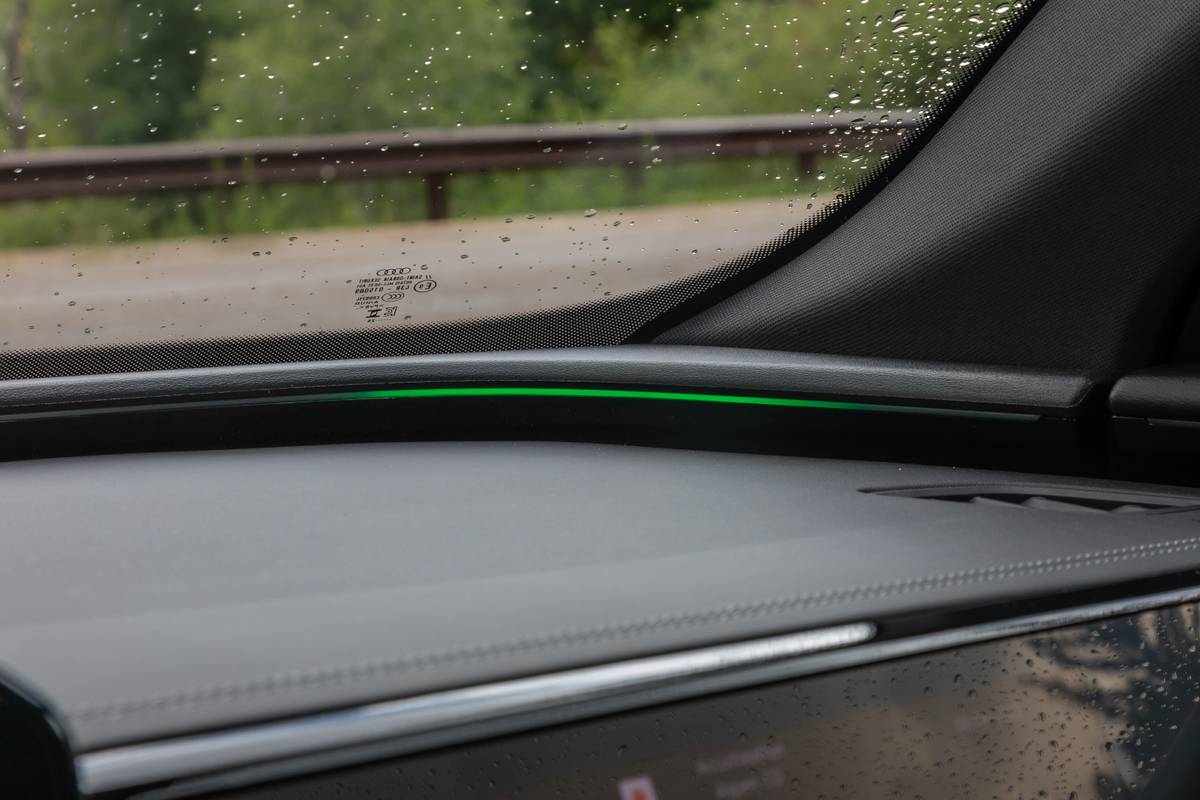
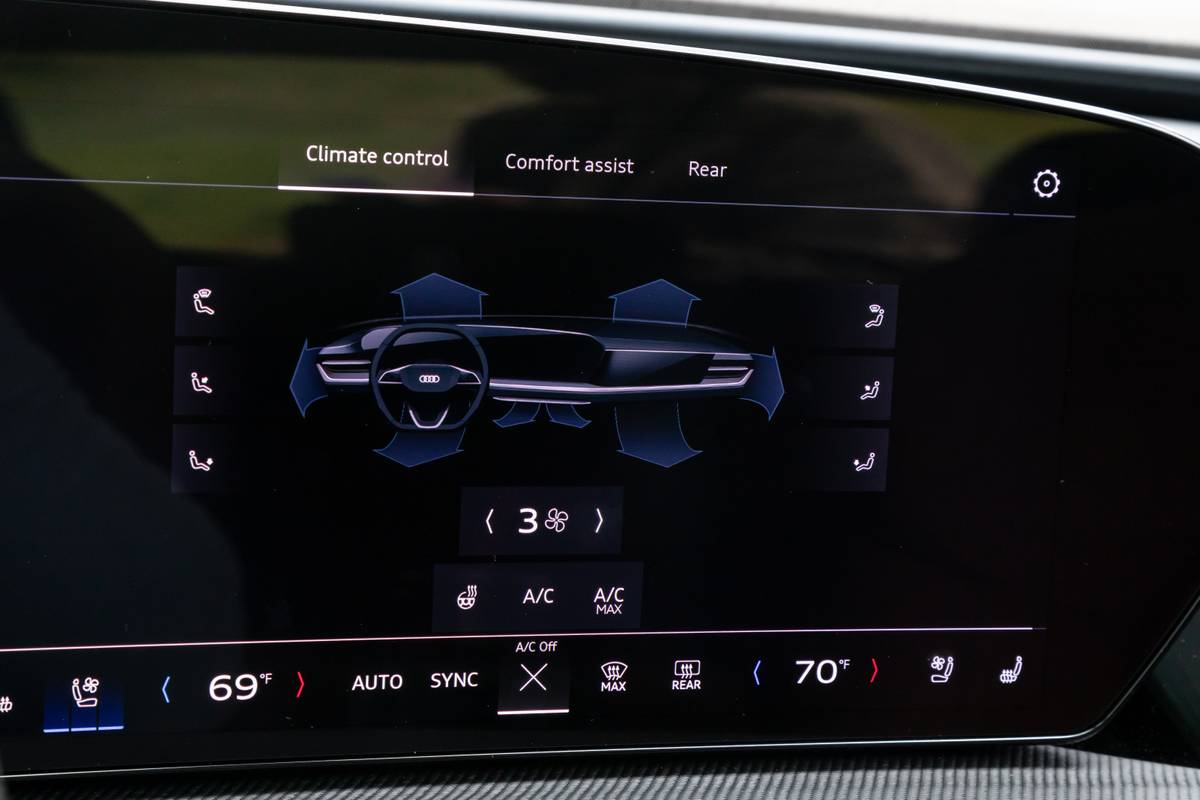
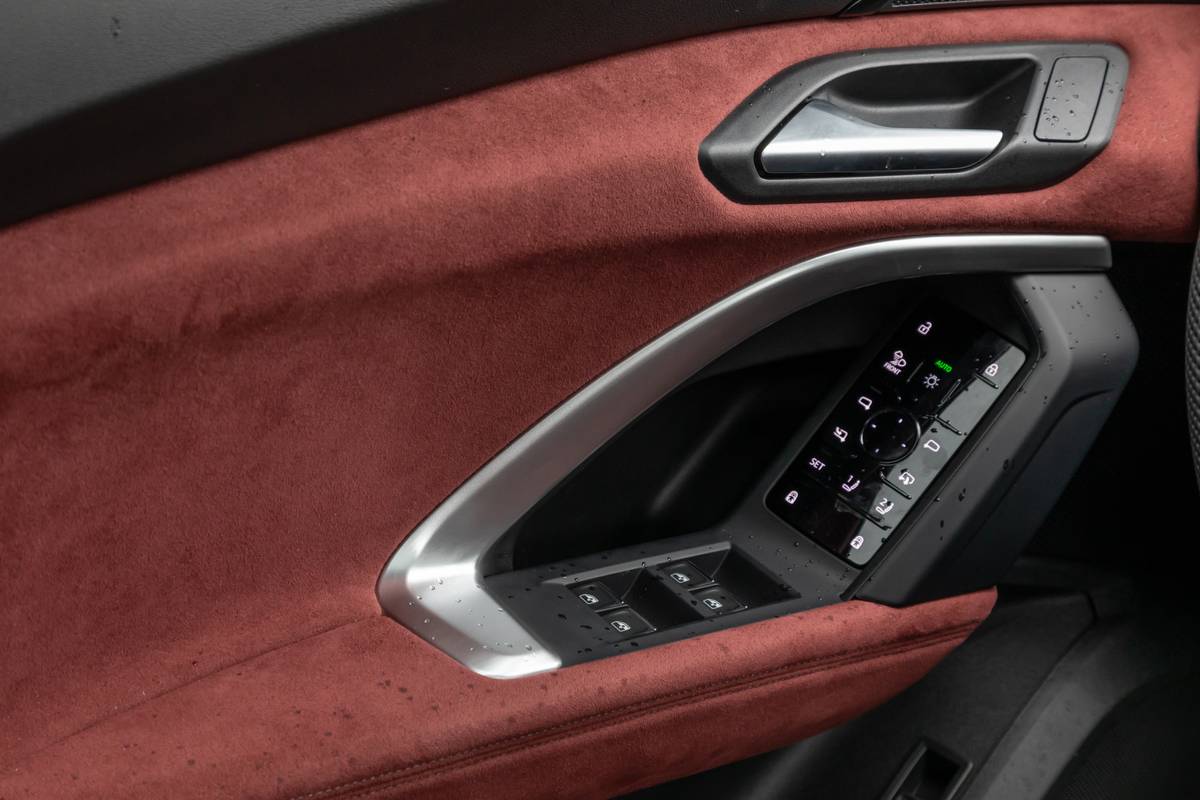
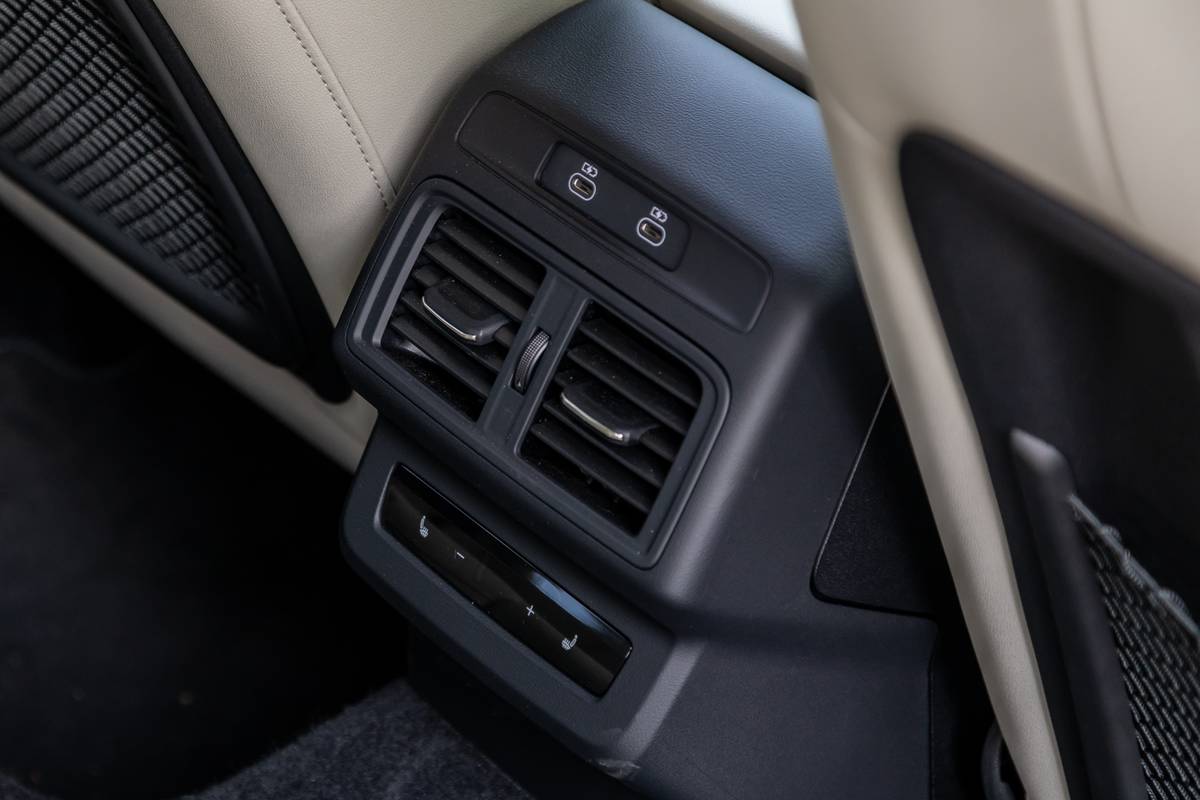
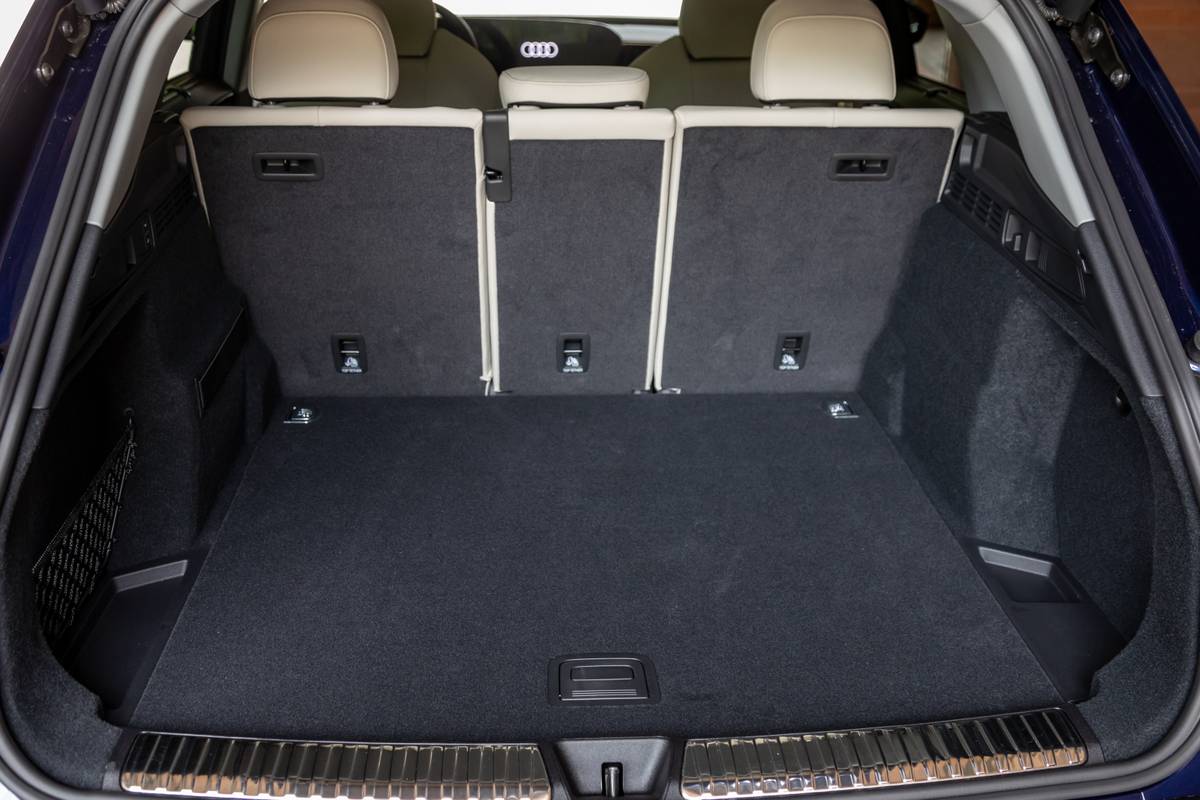
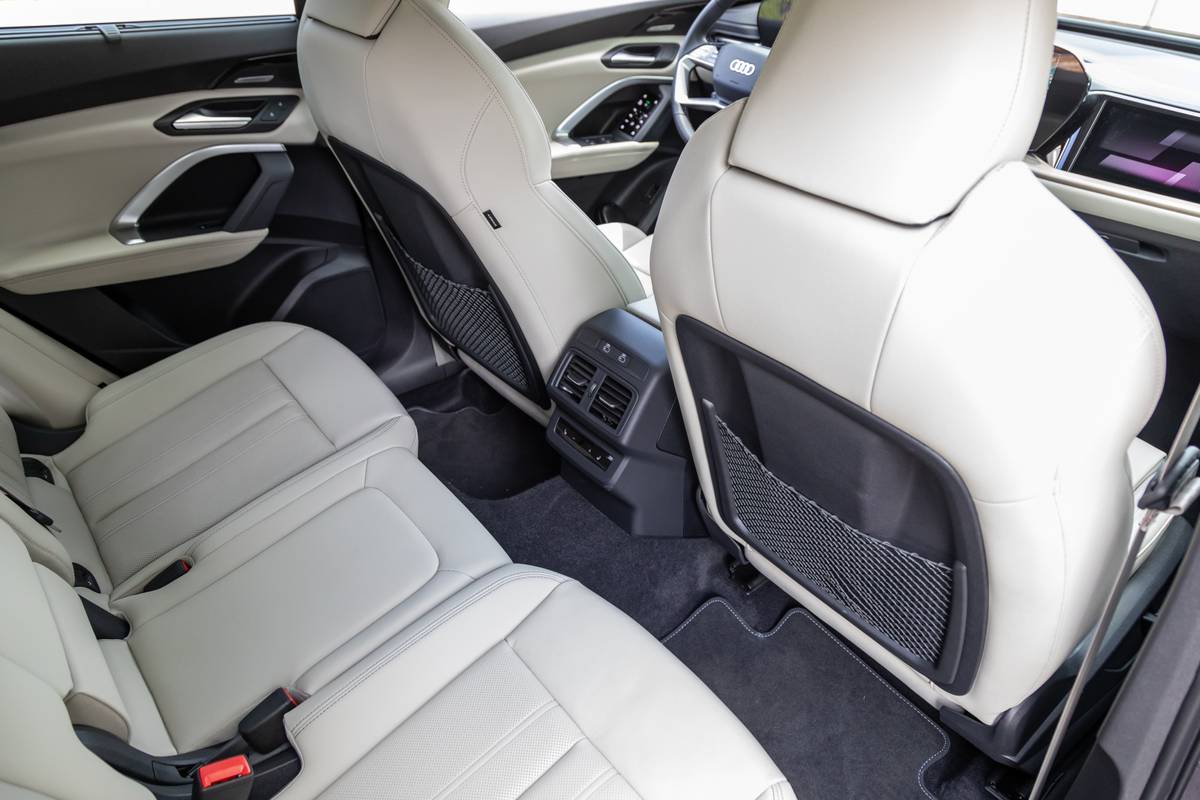
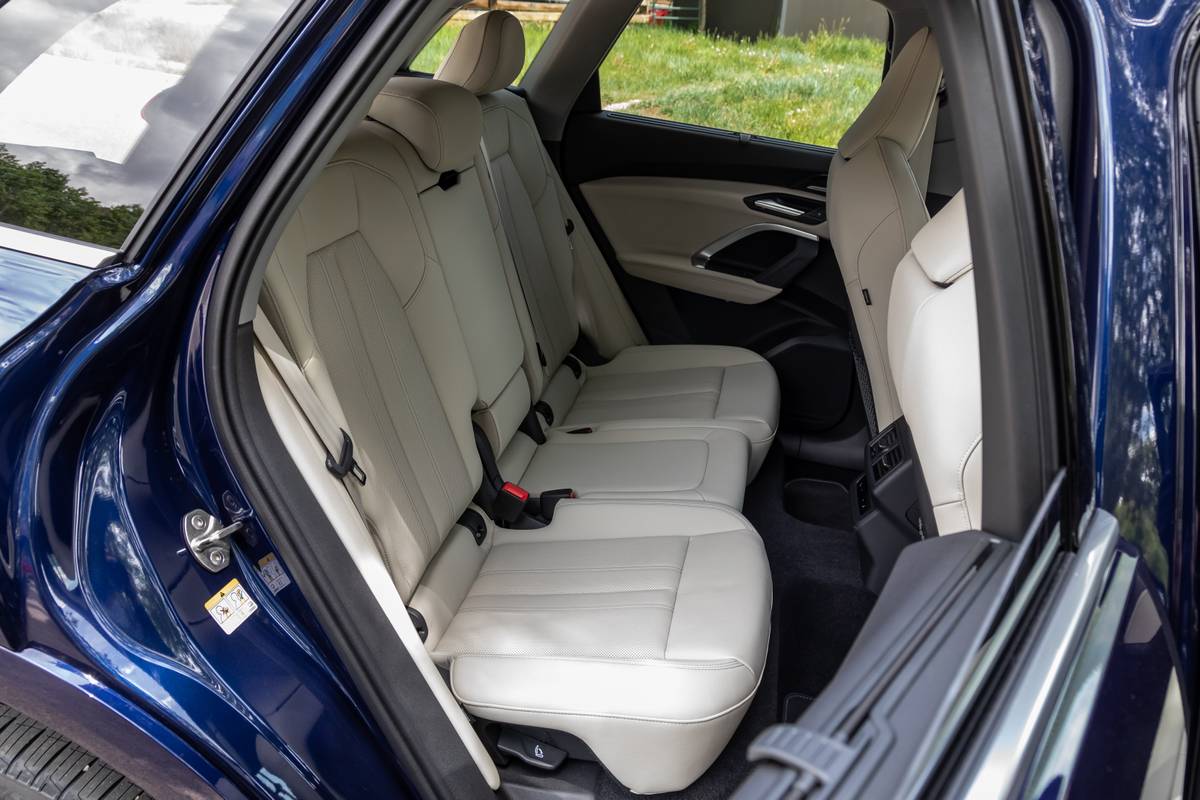
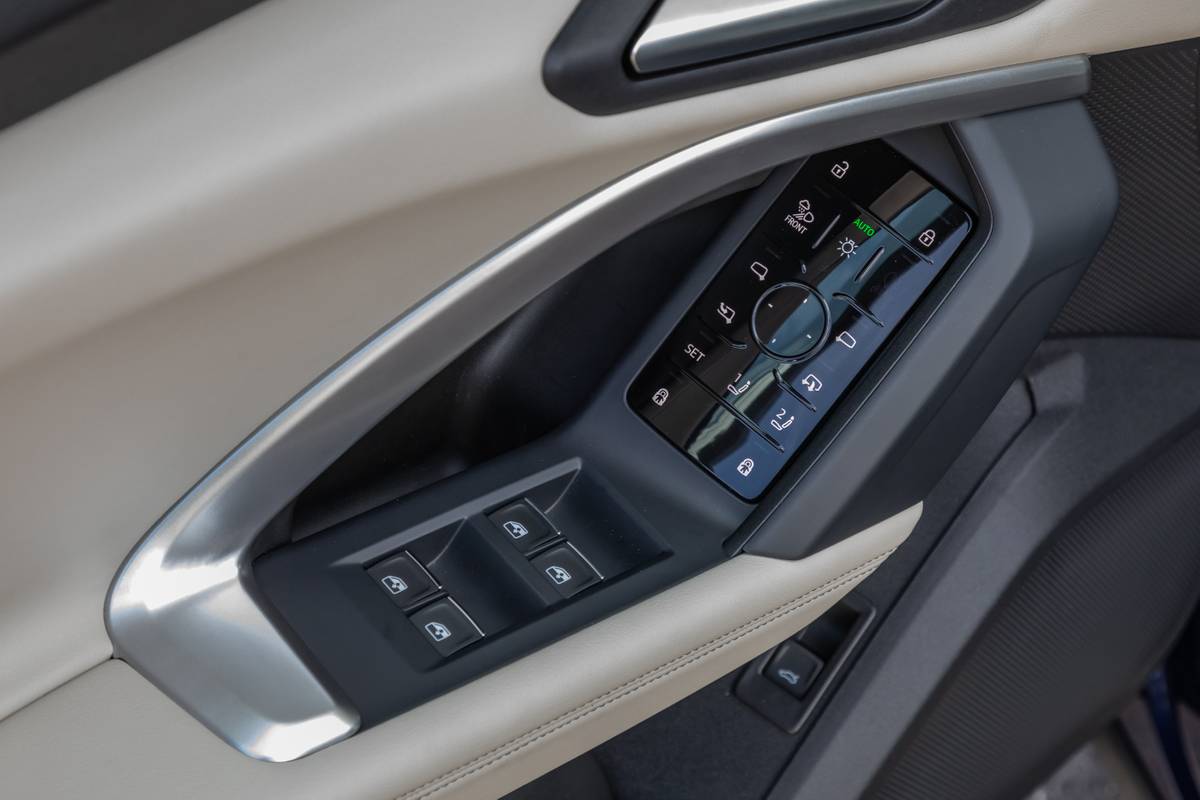
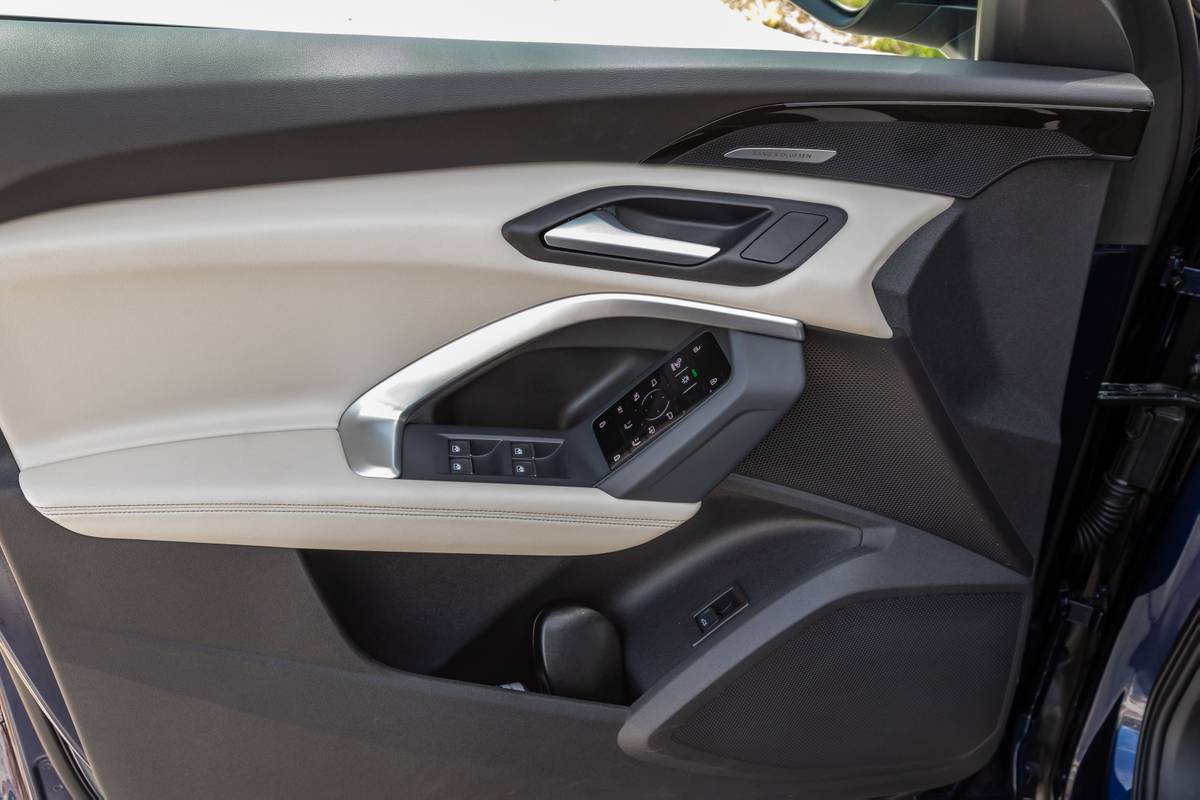
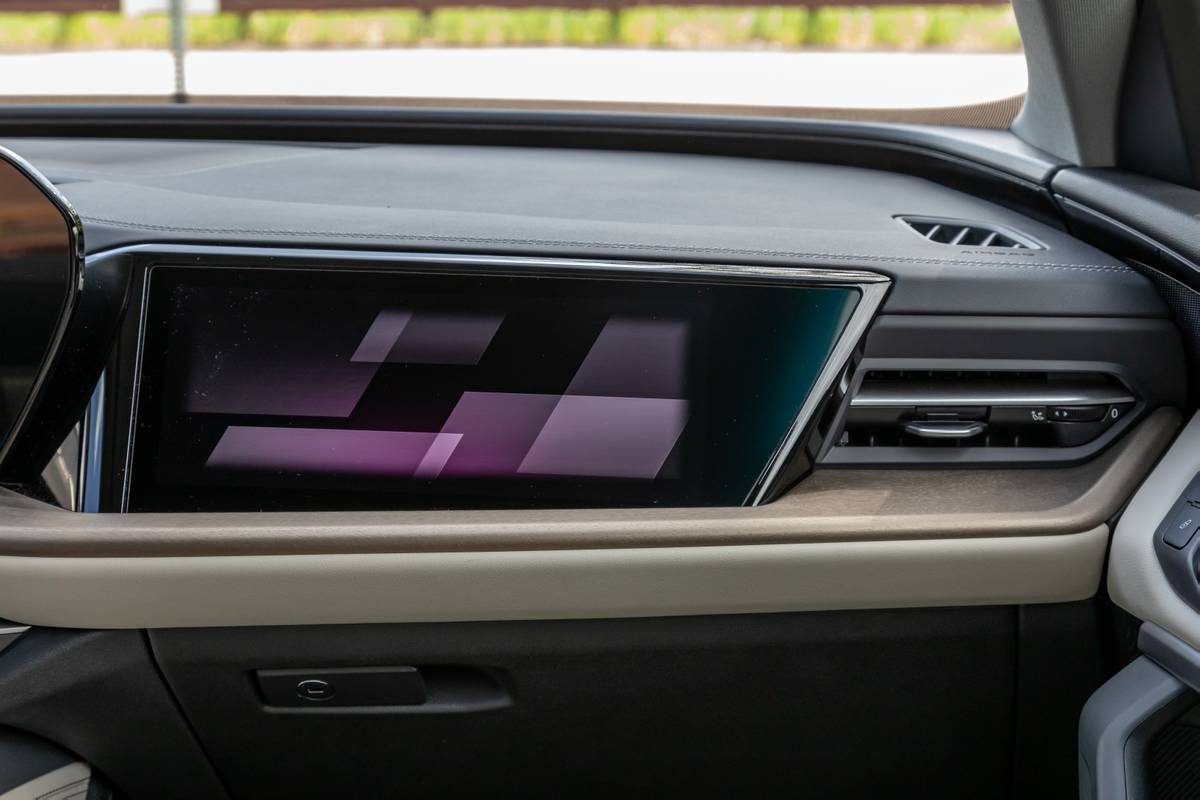
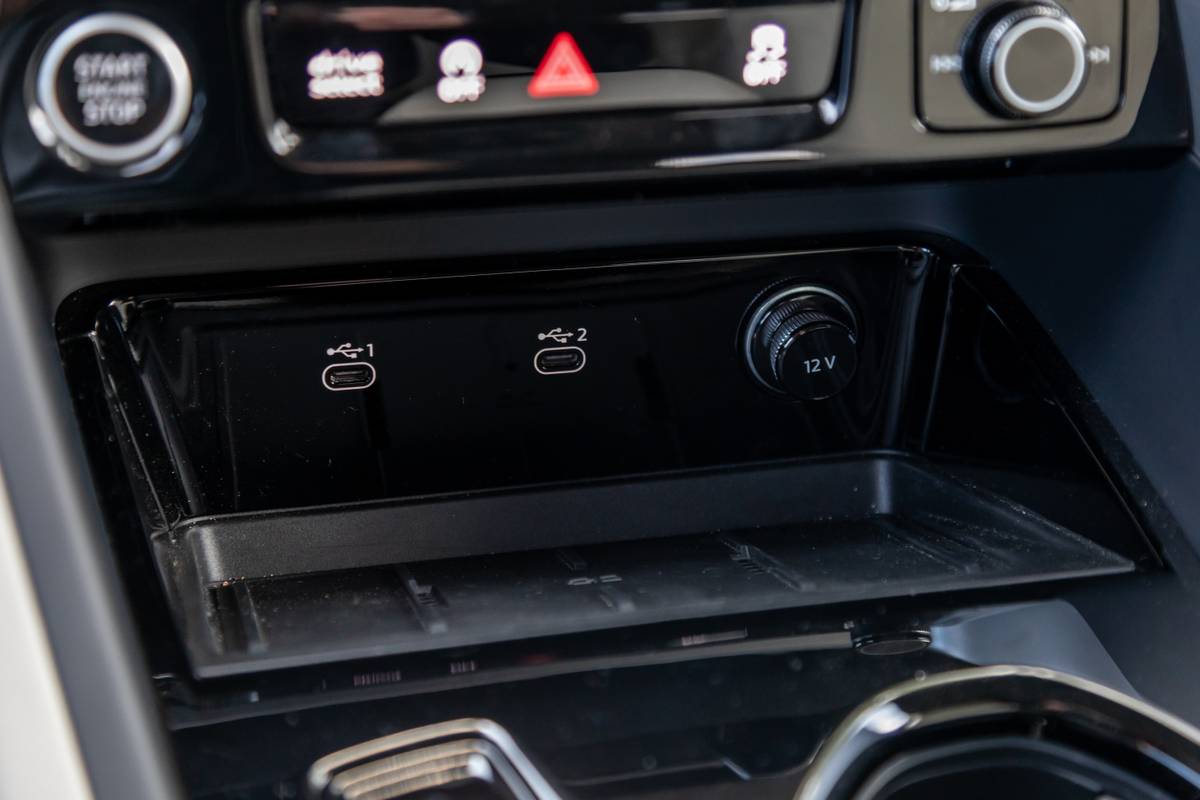
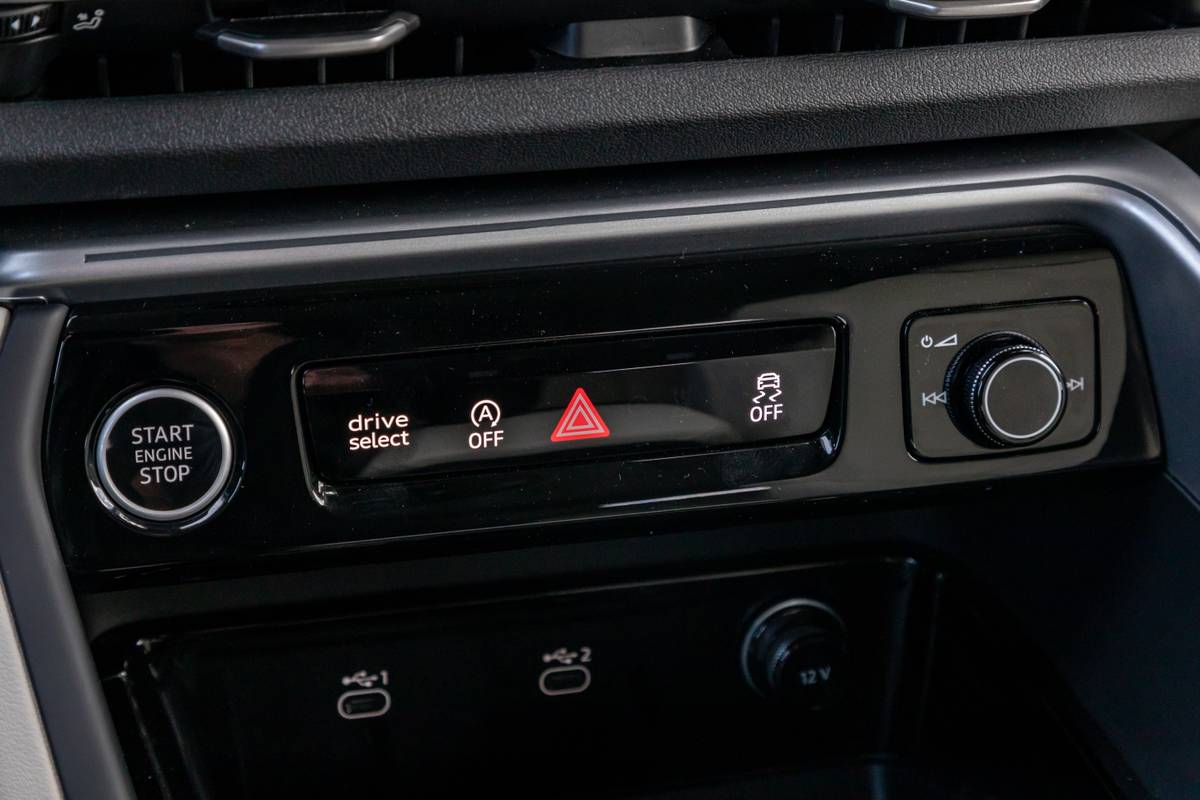
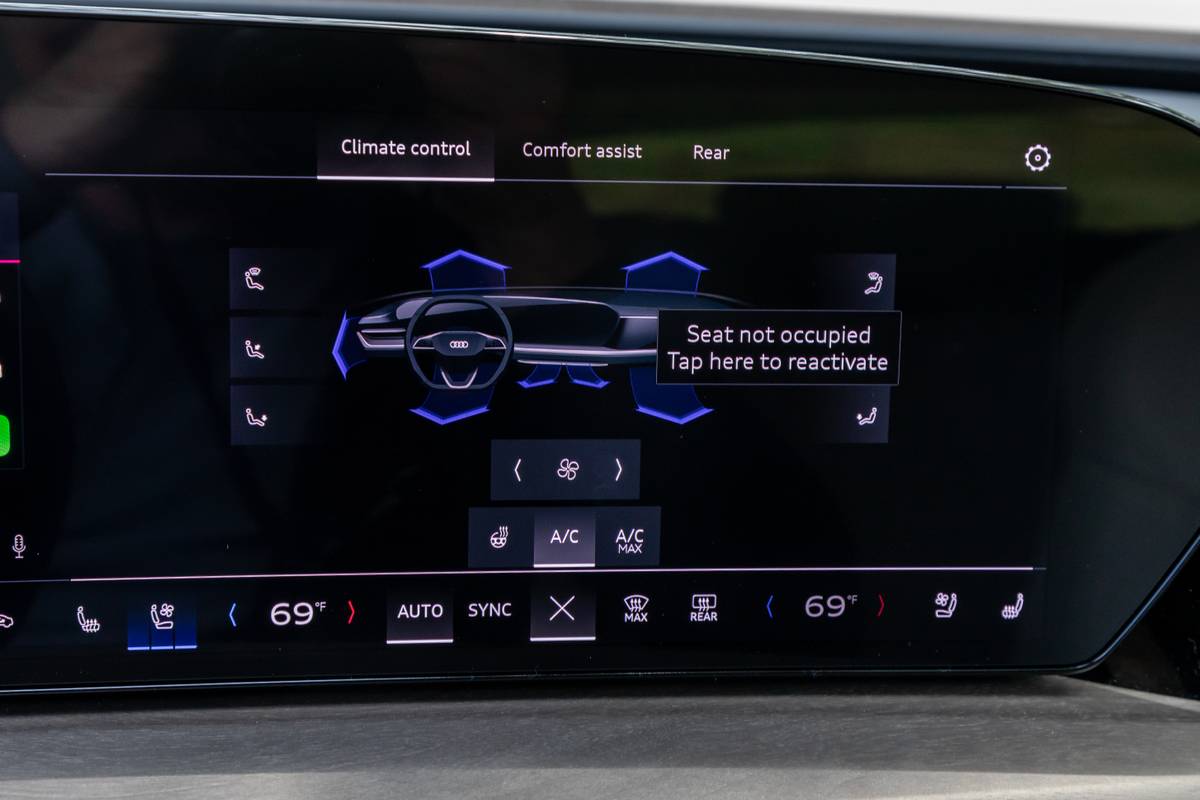
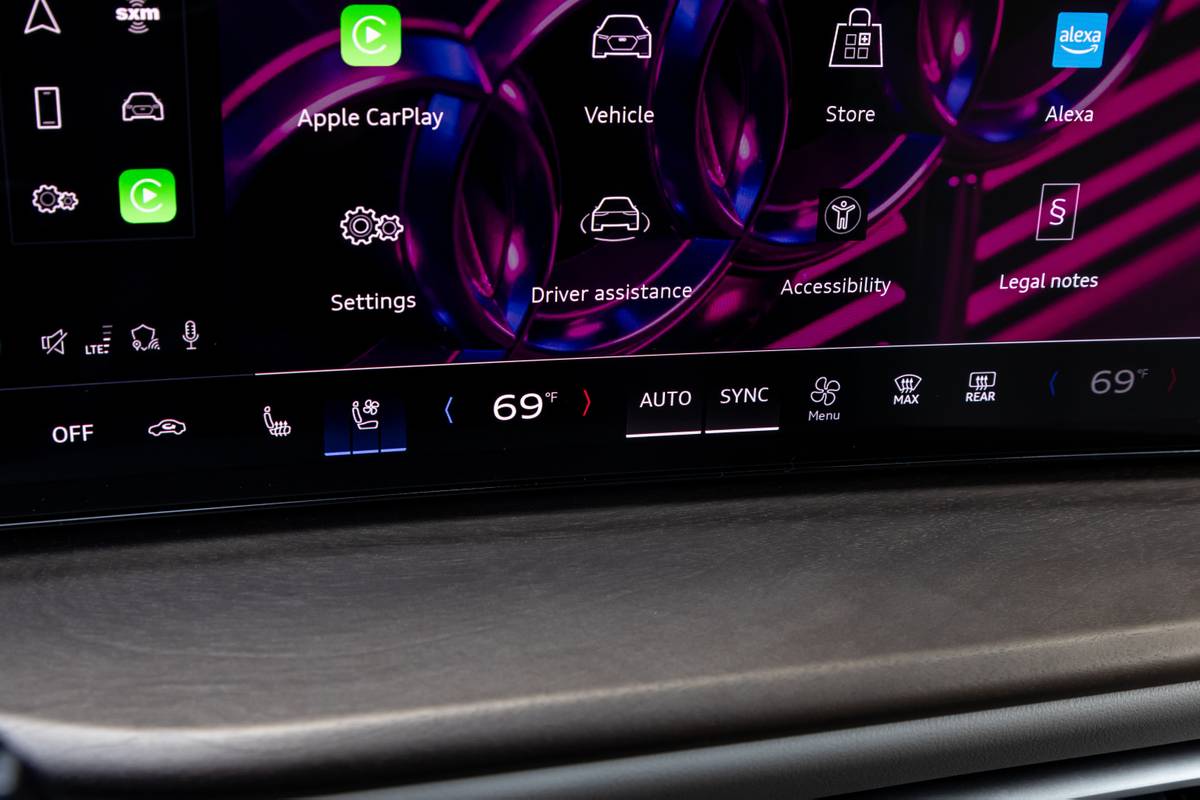
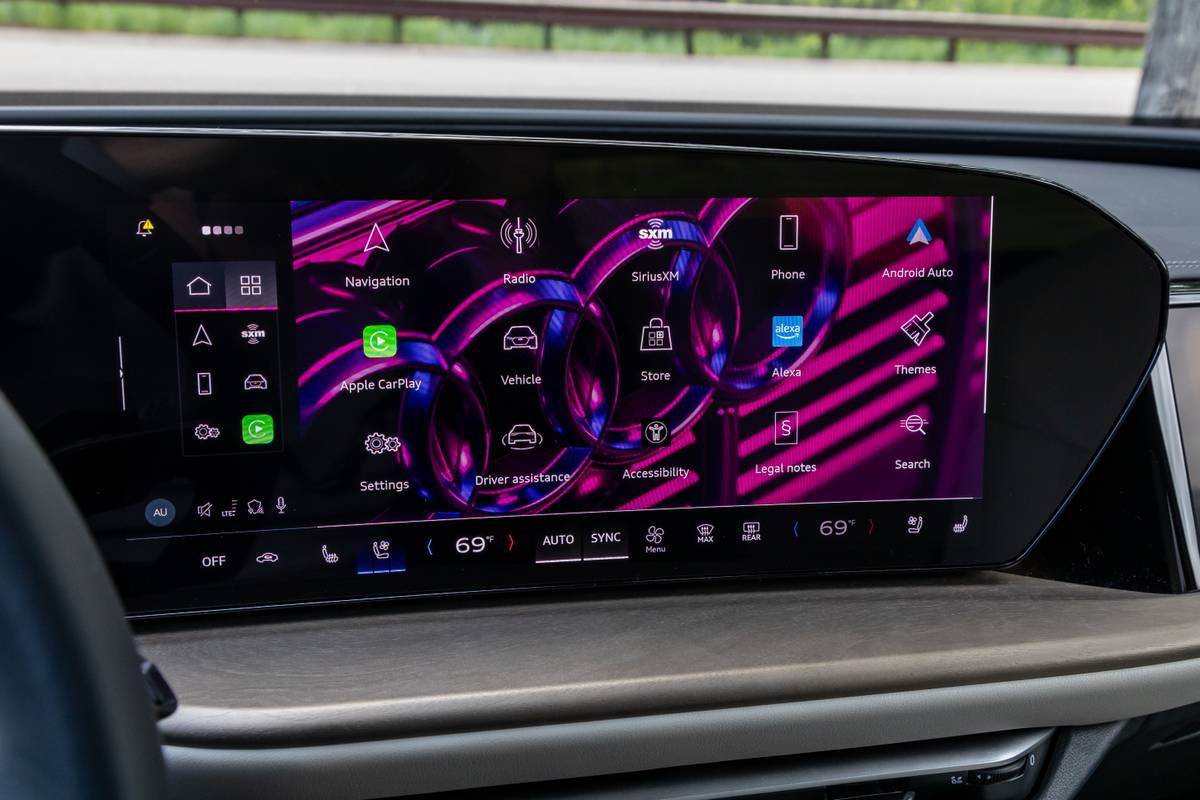
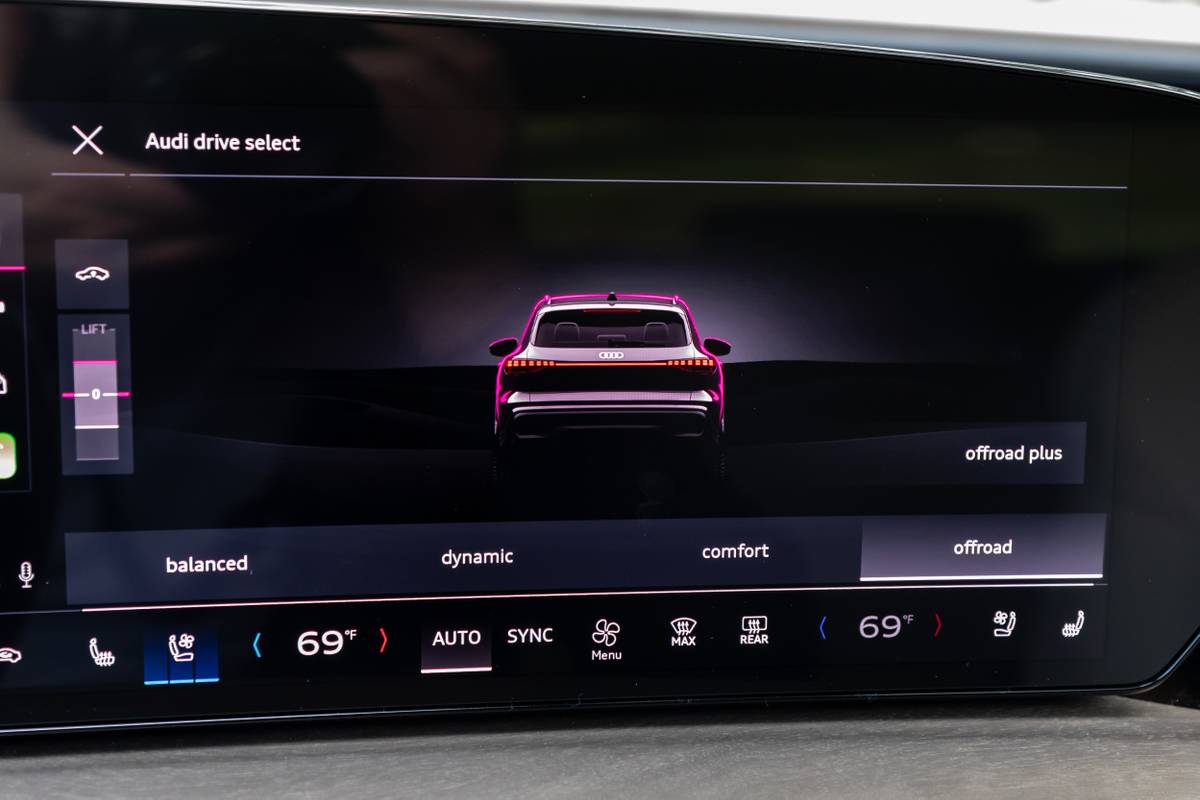
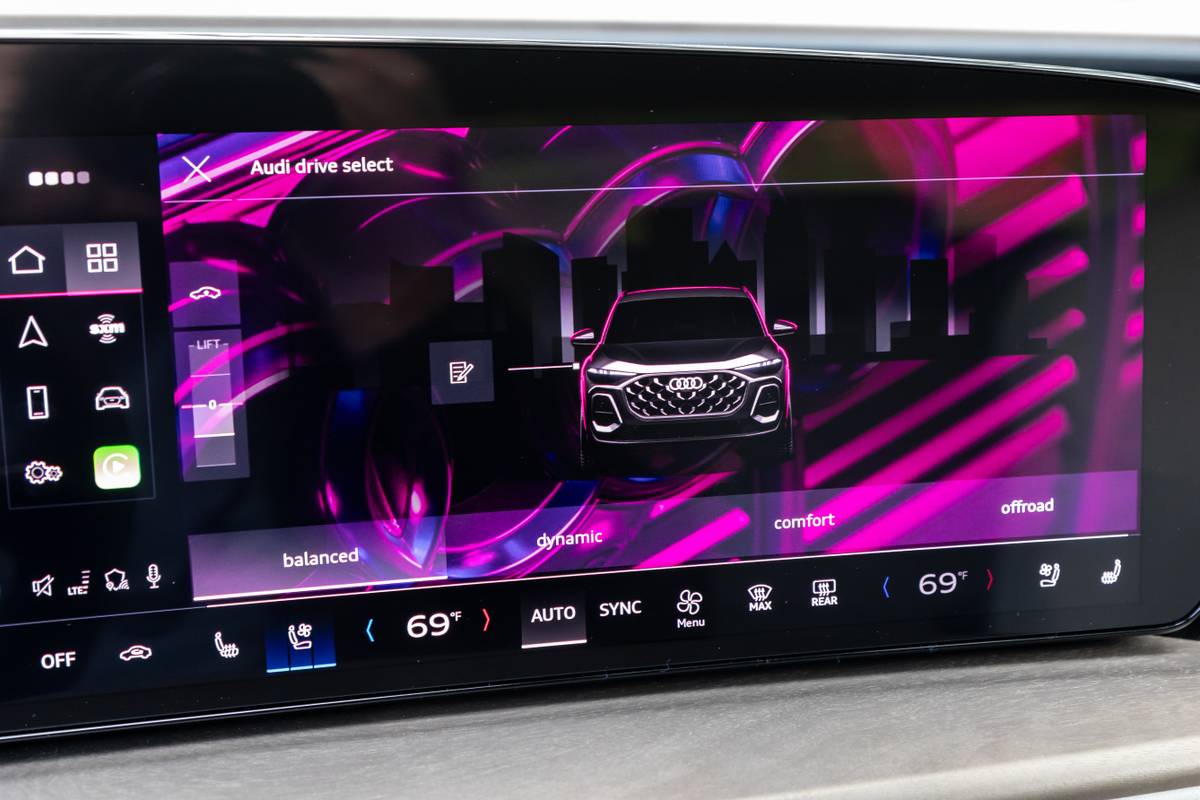
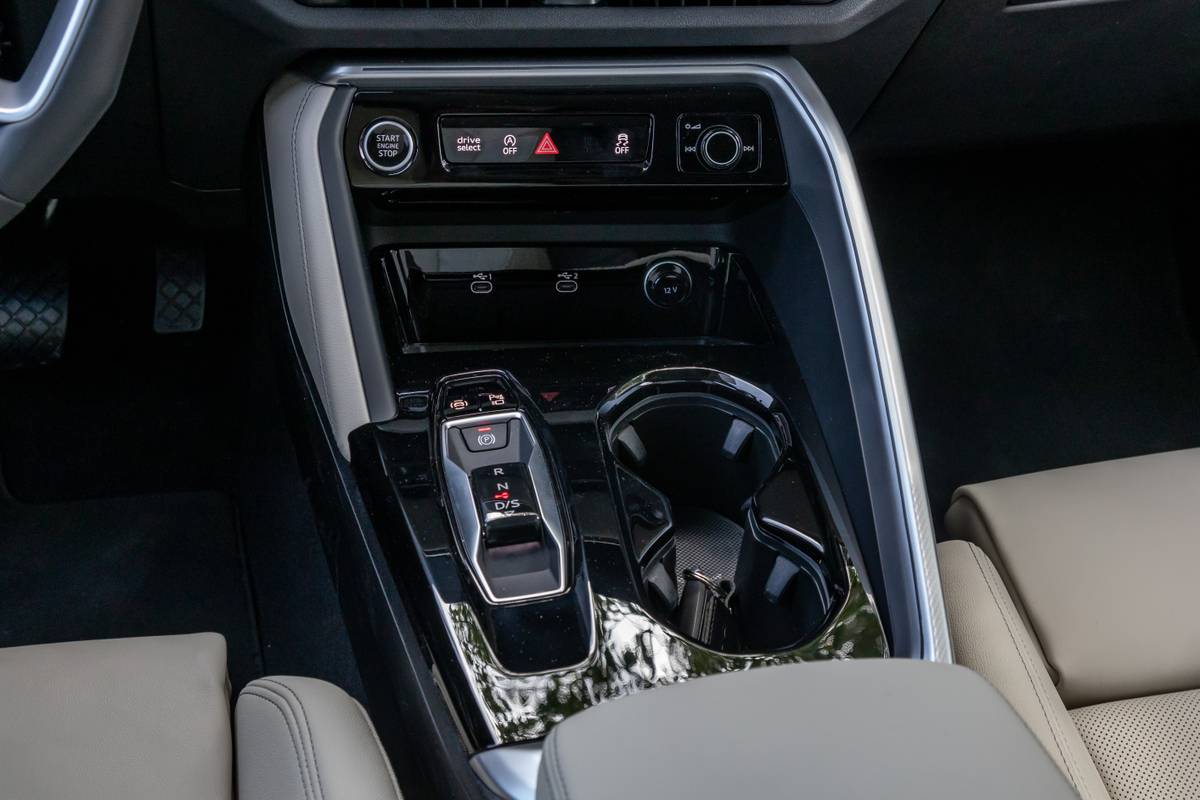
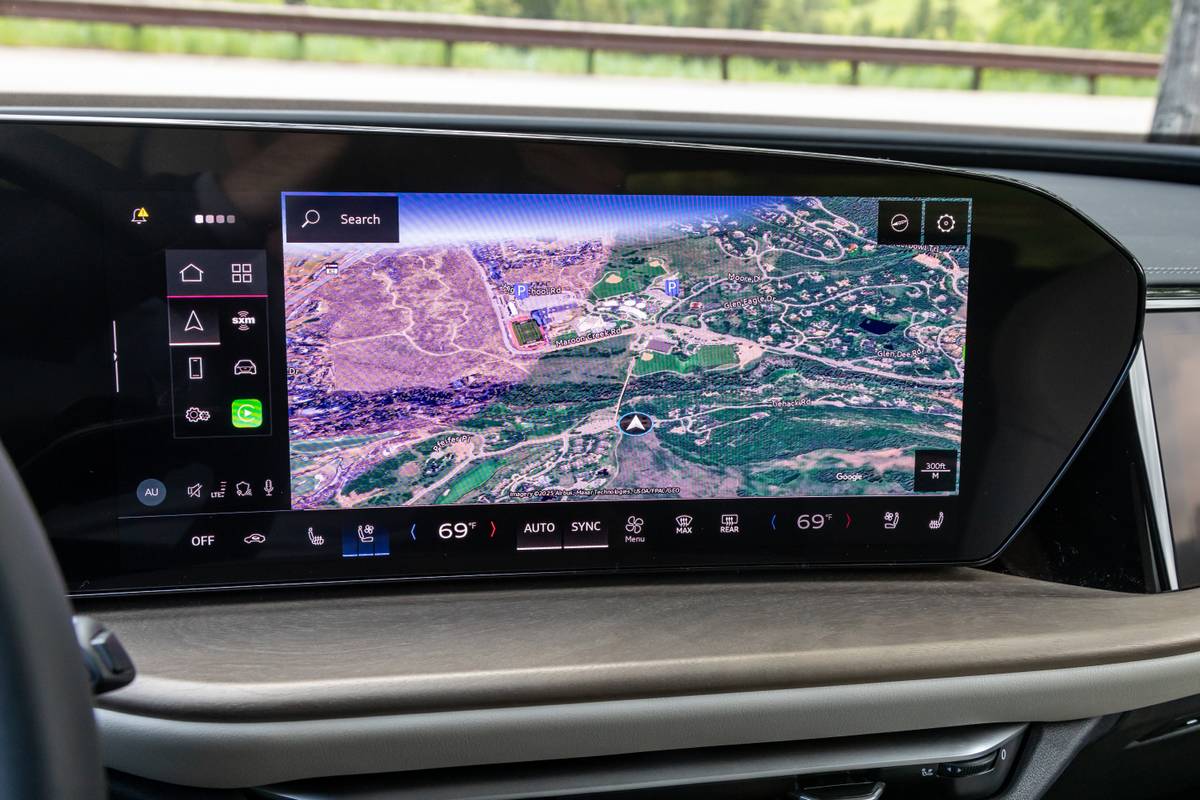
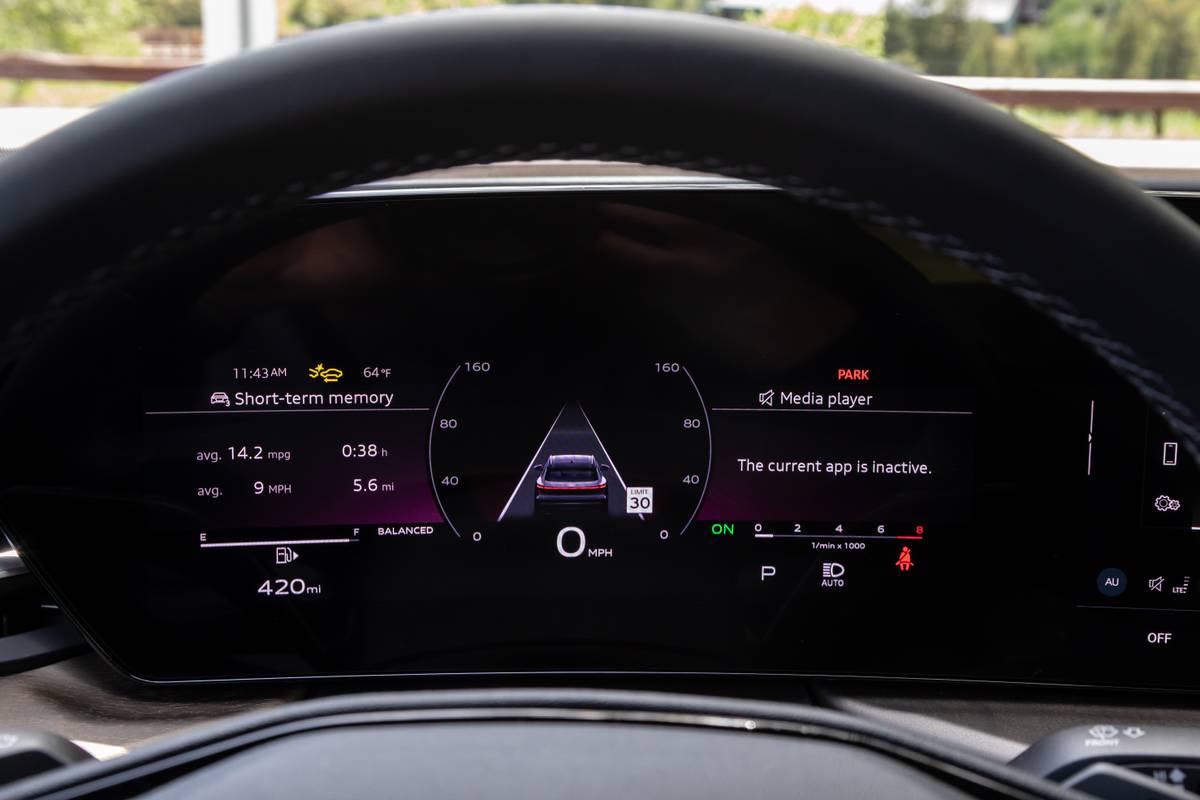
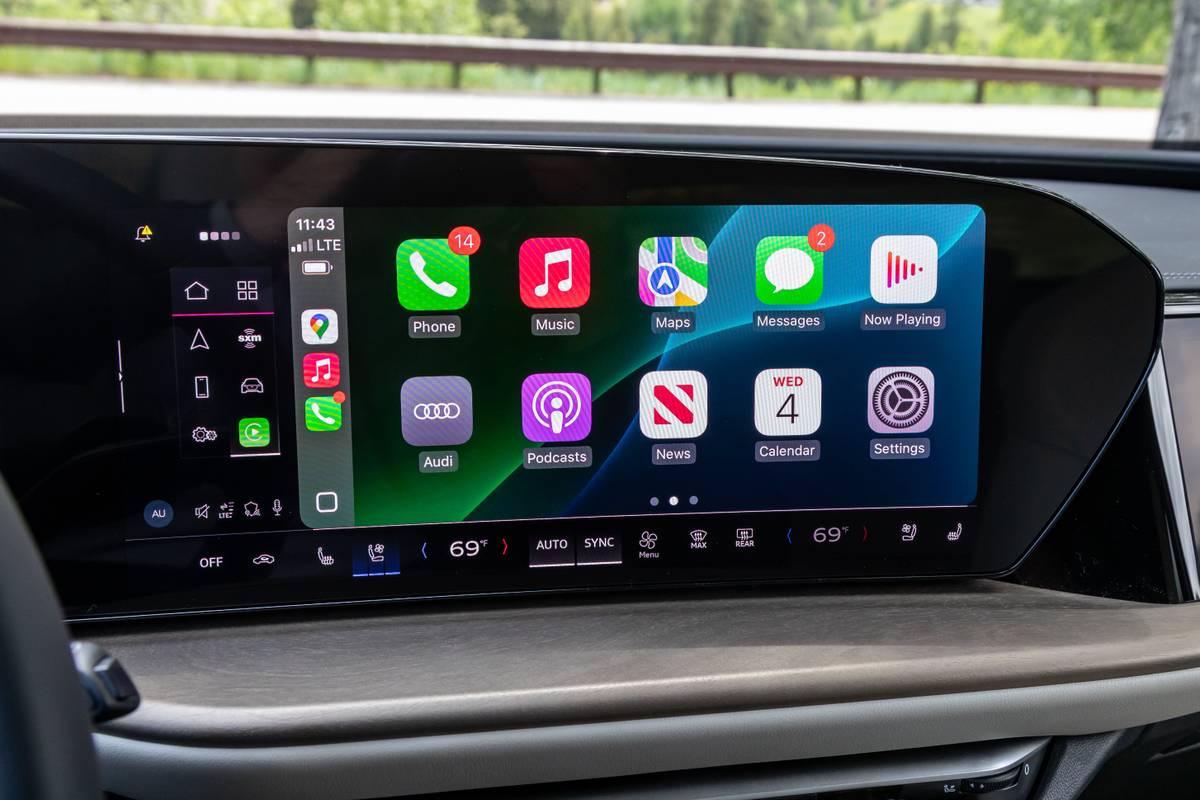
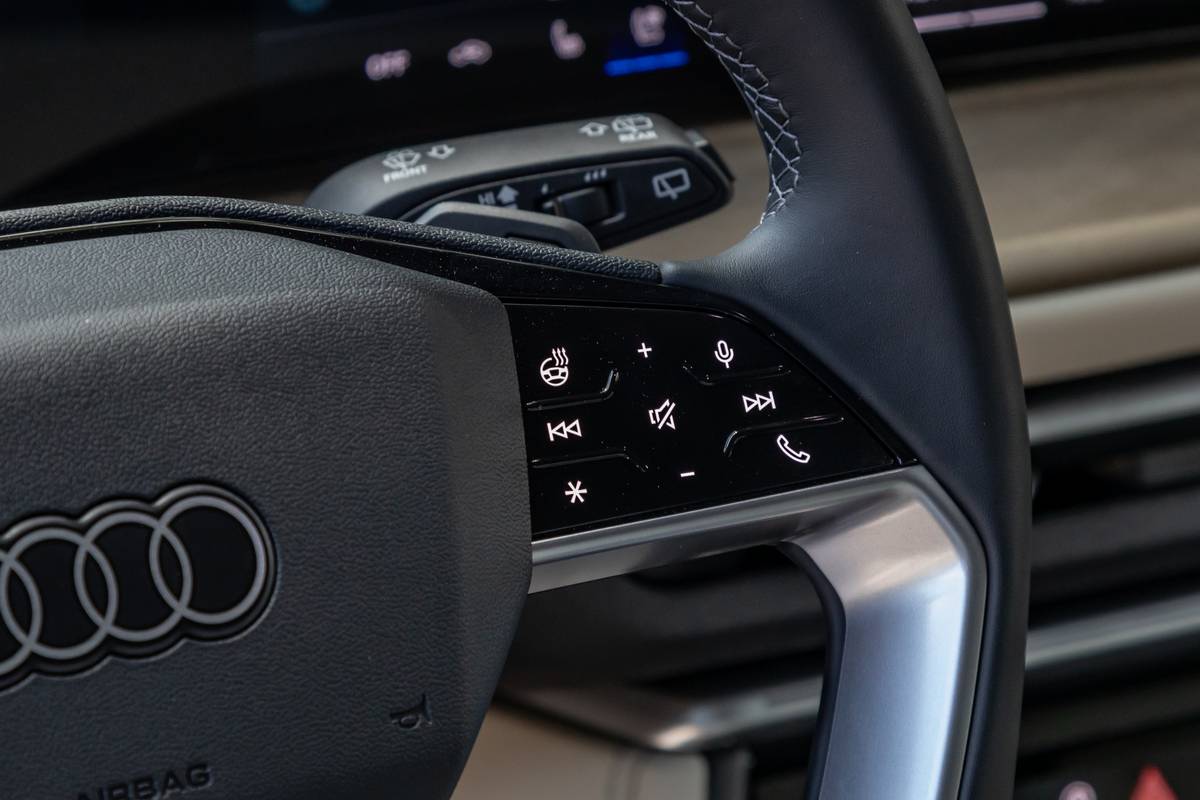
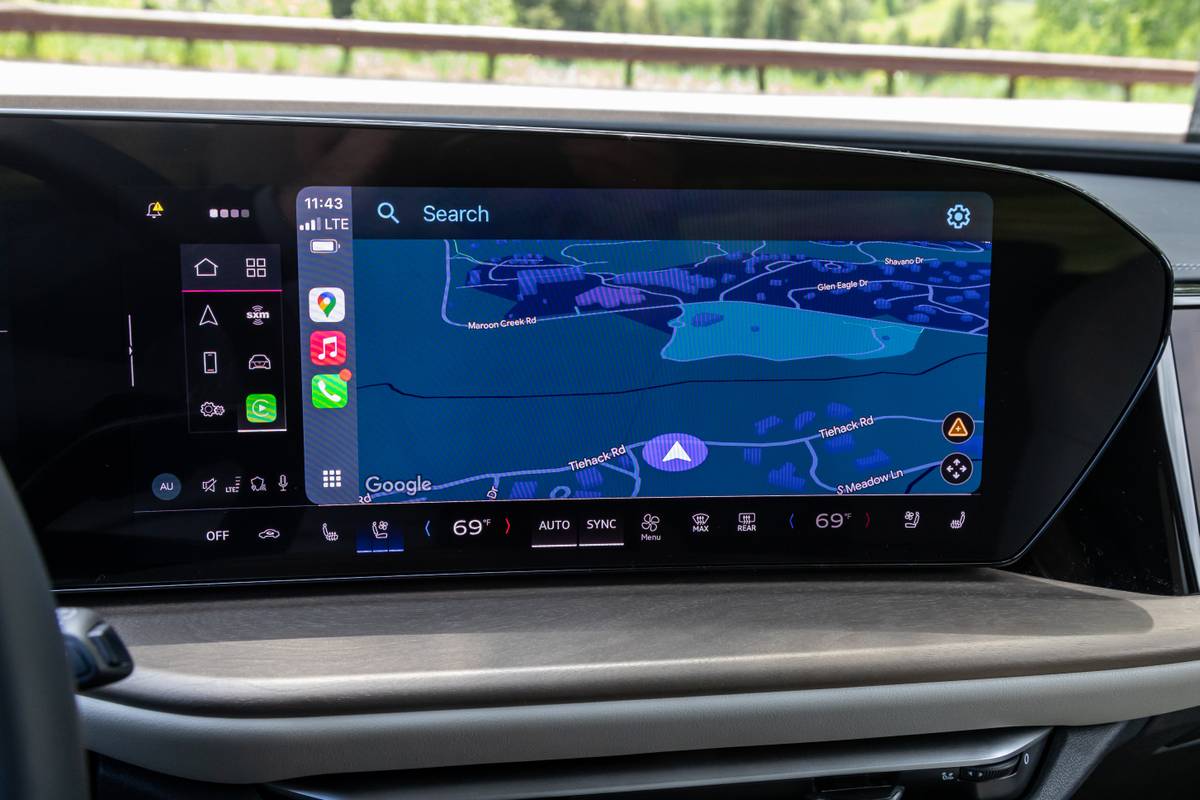
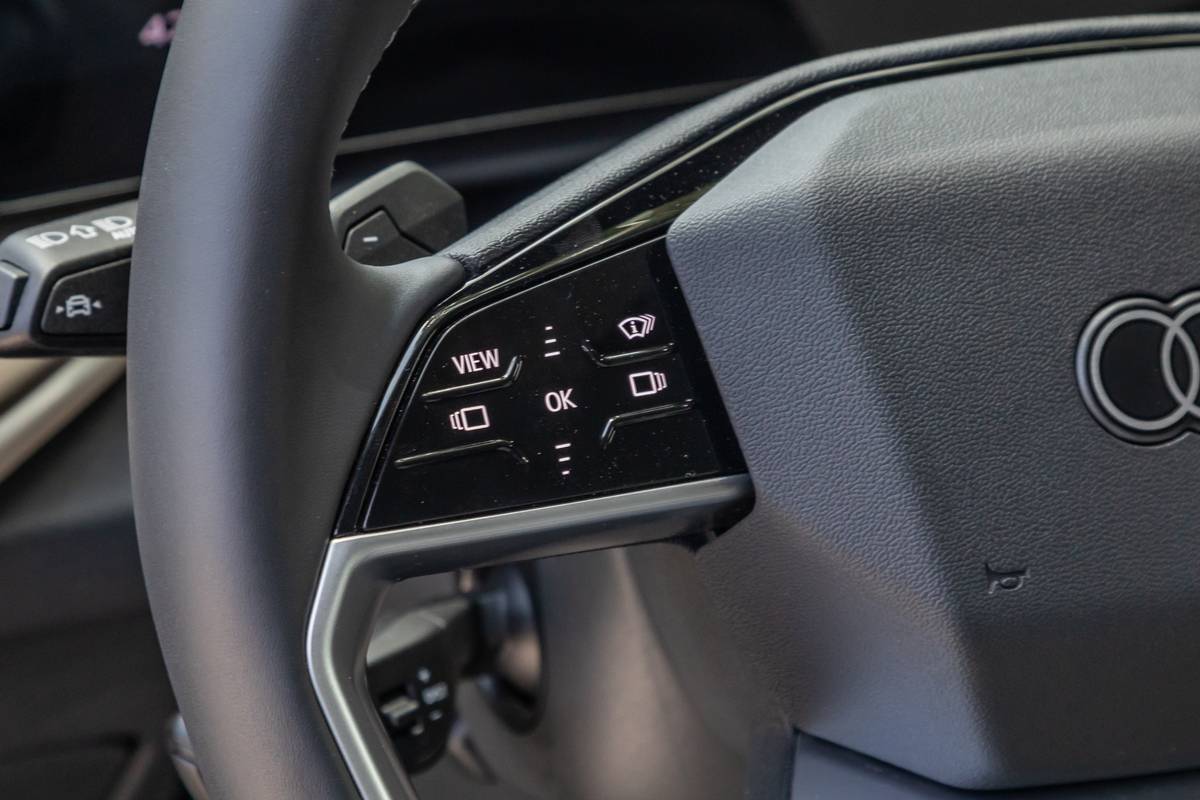
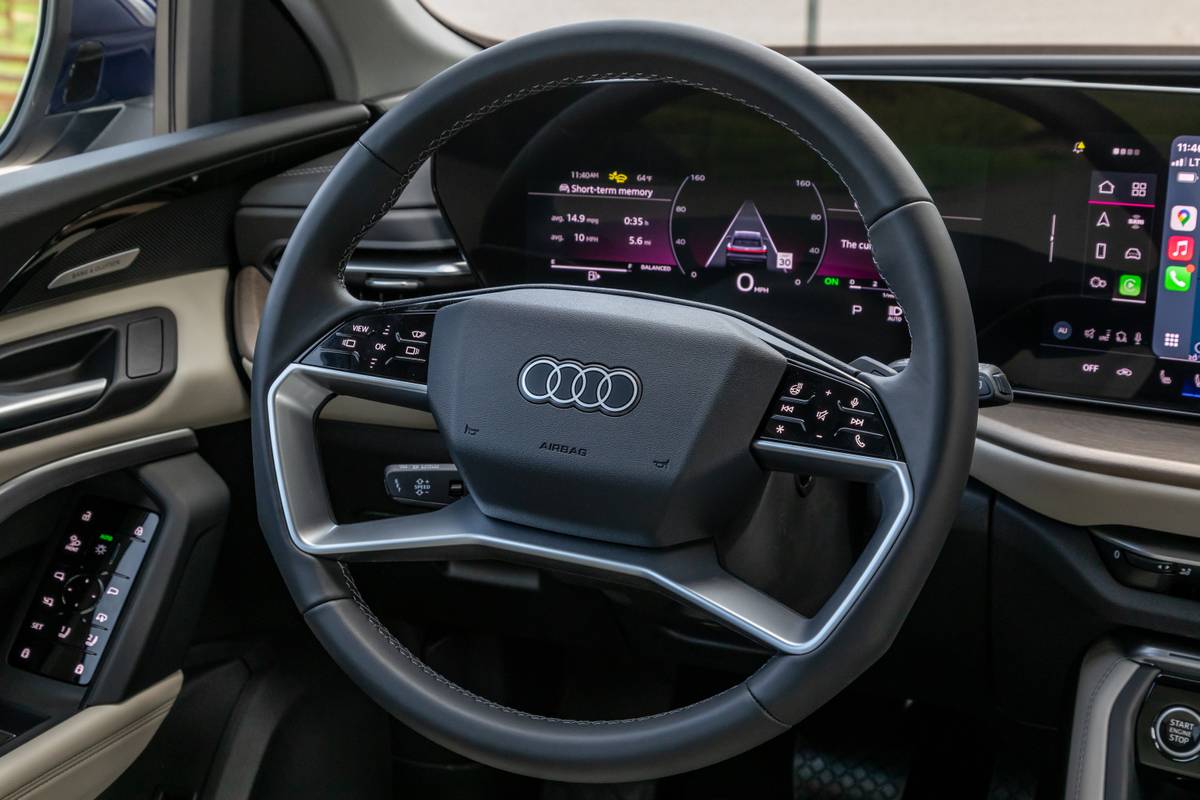
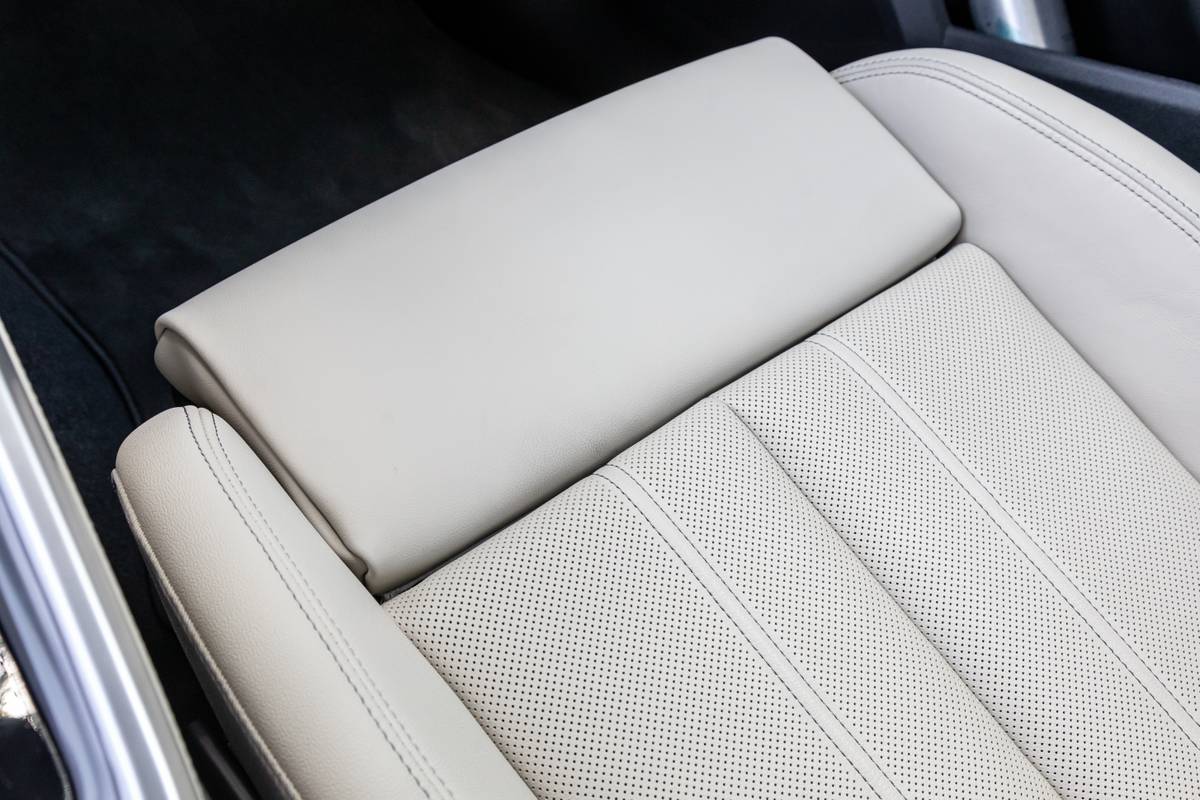
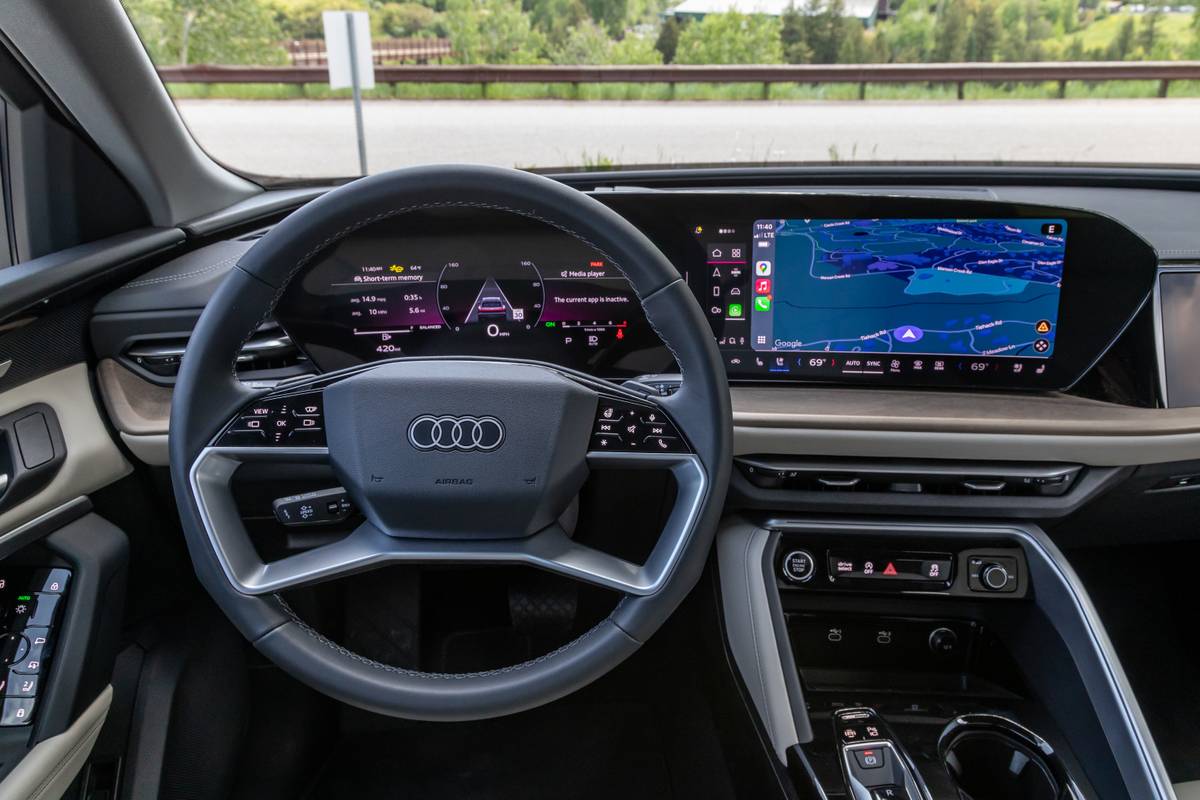
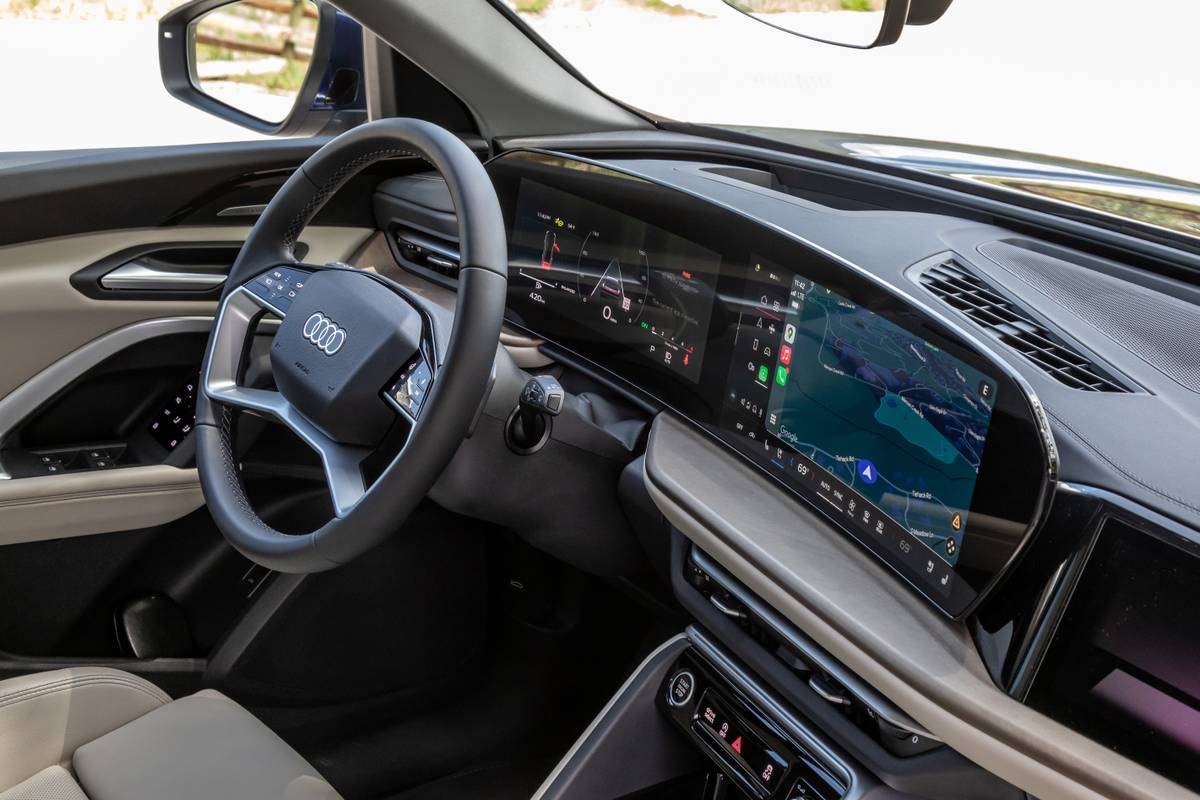
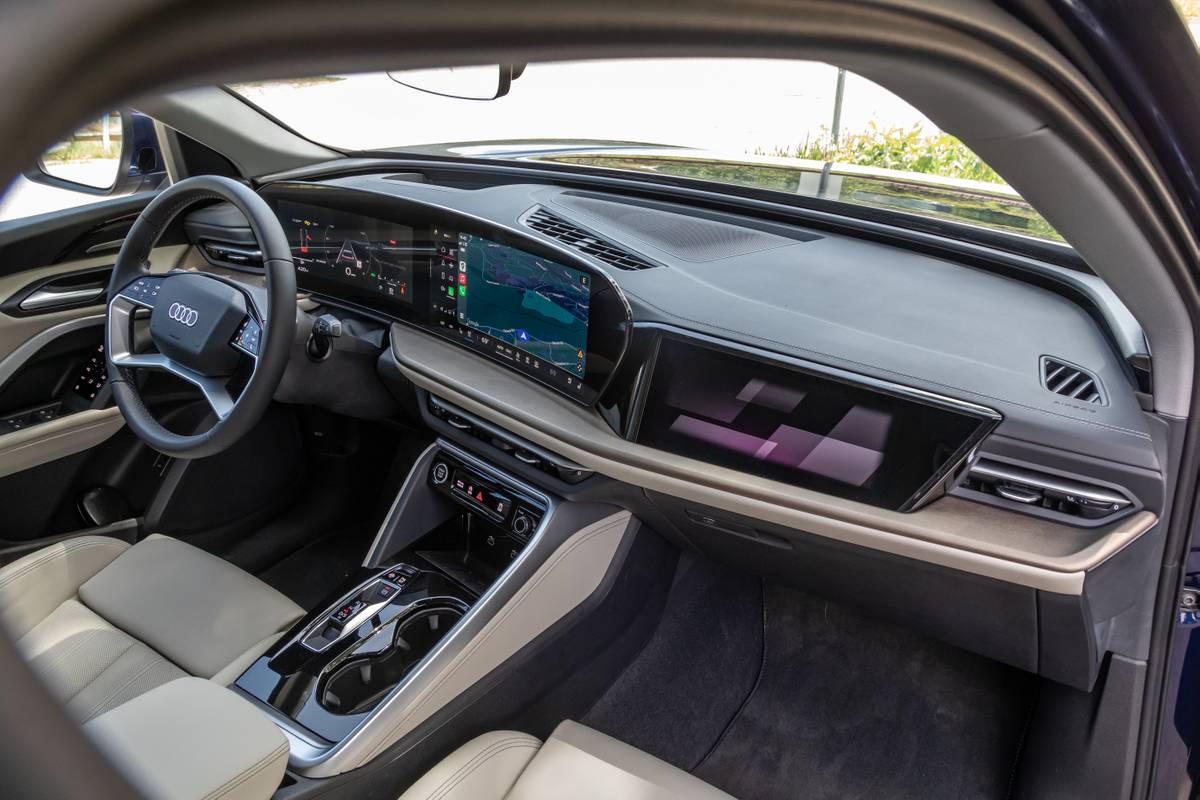
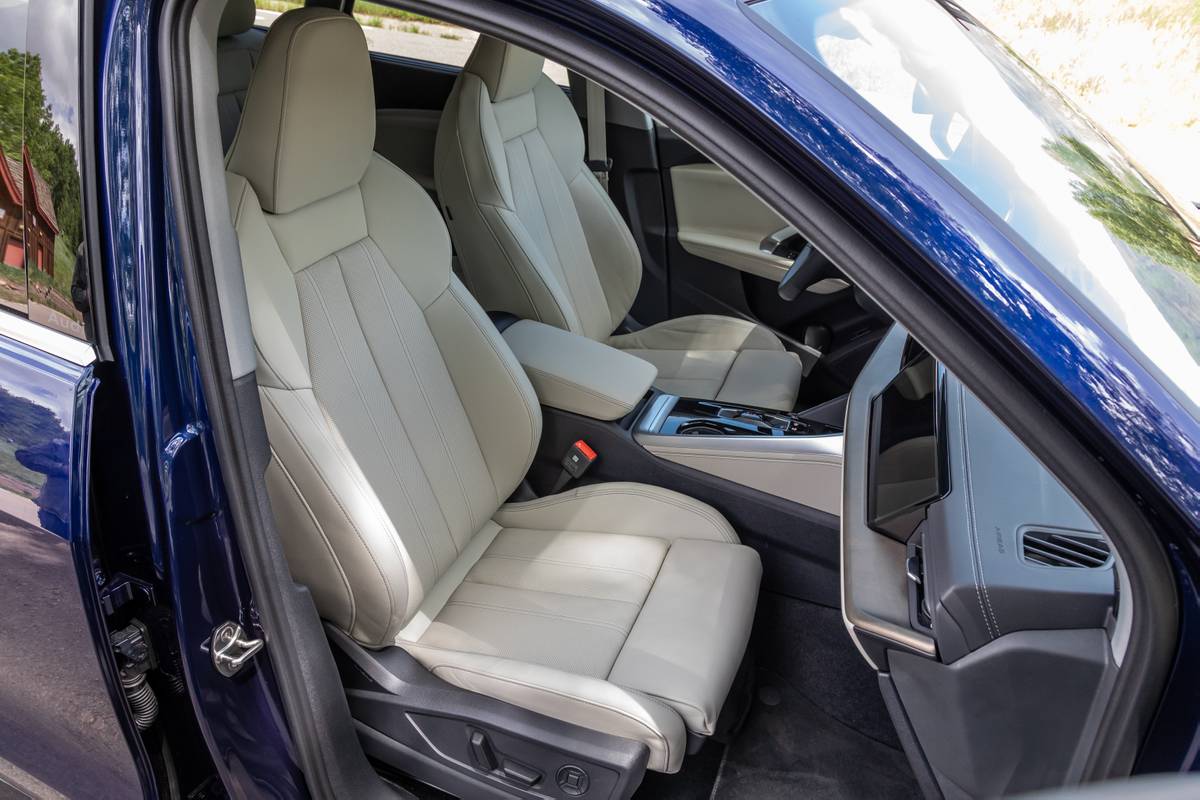
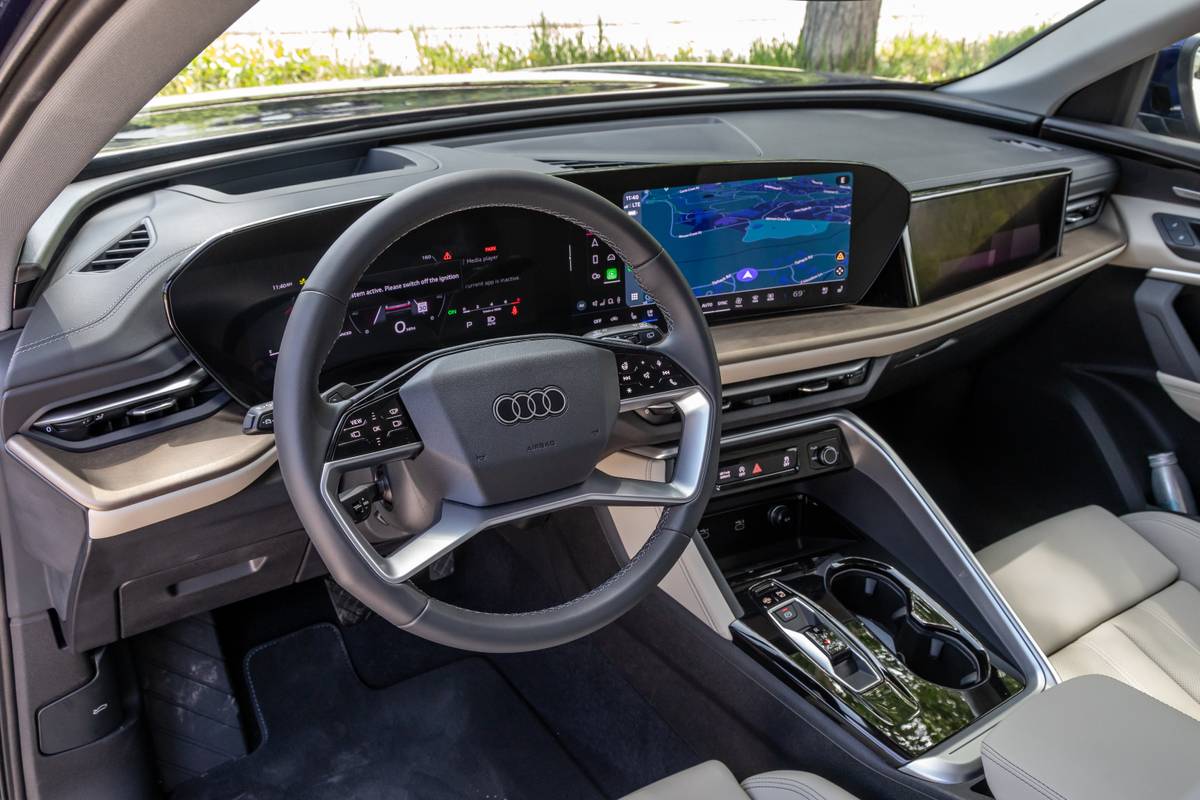
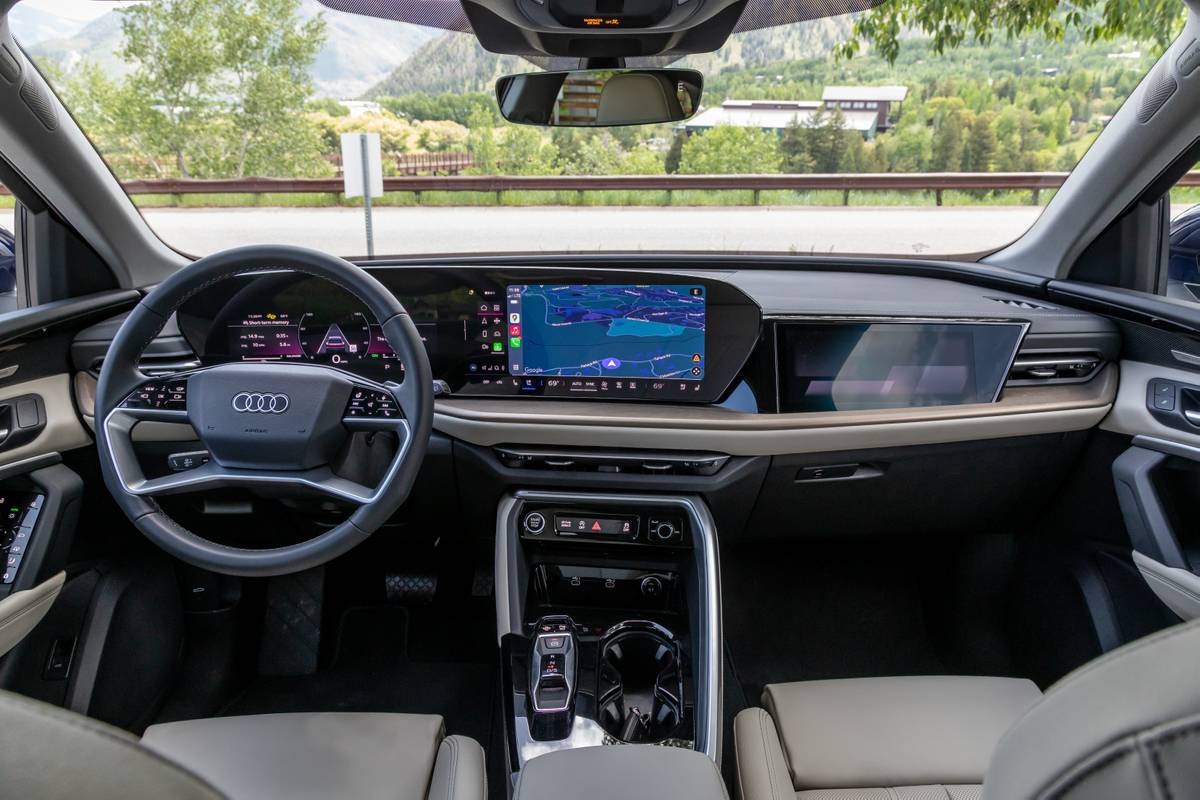
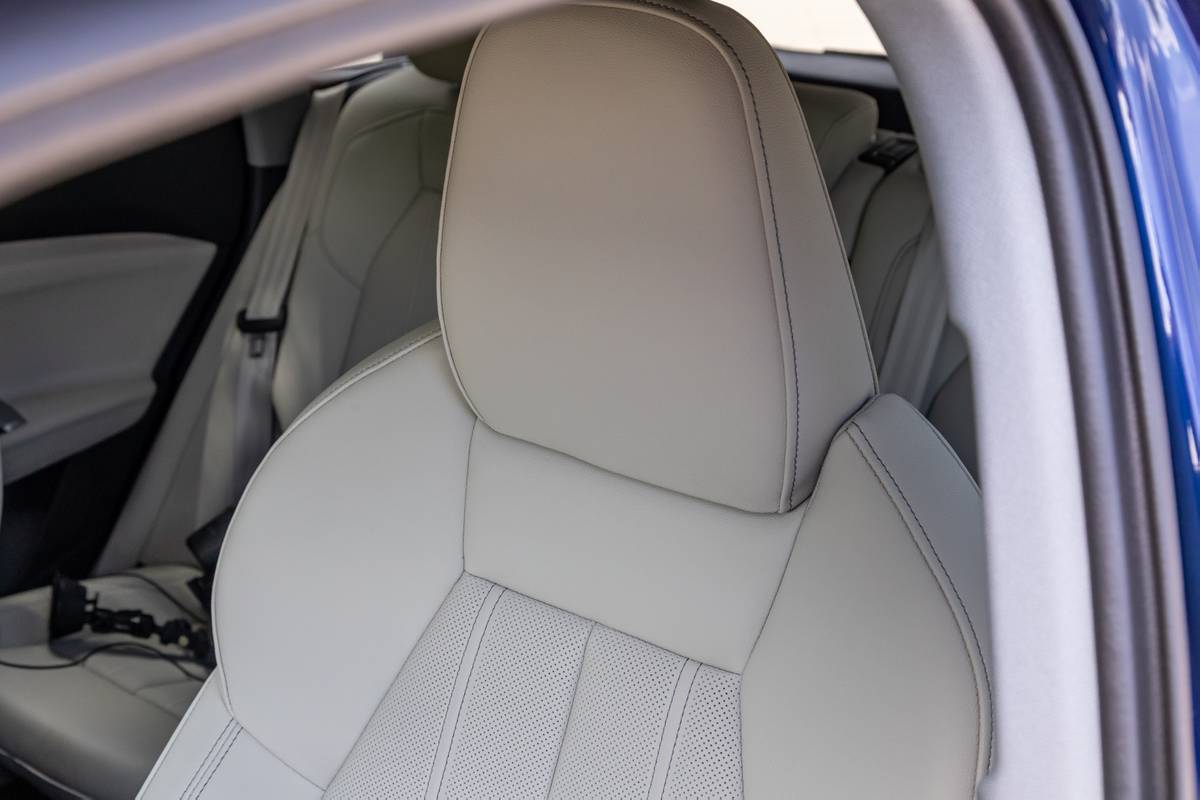


















































Inside is where the real show happens because the new Audi Stage technology suite lives up to its name and takes center stage. It’s a marked improvement over Audi’s previous infotainment technology; more responsive, more intuitive and with thoroughly modern graphics. The native navigation system works well, and wireless Apple CarPlay and Android Auto are standard if you prefer to use a smartphone navigation app. While physical climate controls are typically preferable to touchscreen-based ones, the Q5’s at least don’t obscure other portions of the screen during interactions.
Not part of the Audi Stage (and a bit confusing to me) is the available 10.9-inch passenger screen that’s included on the Prestige trim. It can control navigation and audio and even show YouTube videos, but it feels redundant in an era of smartphones. Surely, if you can use this display and not get motion sickness, you can probably do the same with a smartphone or tablet and have access to all of your preferred apps and content. Additionally, the passenger screen uses something Audi calls “active shuttering,” which only obscures it from the driver’s view in certain situations. I’d prefer it to remain invisible to the driver 100% of the time, as I found it distracting when it was visible while I was driving.
Materials quality is excellent; the Q5 has a more relaxed and luxurious vibe, highlighted by wood trim, while the SQ5 swaps the wood for carbon fiber and adds simulated-suede accents. Backseat space is adequate for the class; at 6-foot-1, I have enough space behind the driver’s seat set to my preferred position to sit somewhat comfortably, but with no extra room to stretch out. The backseat slides and reclines for potentially more comfort. Really, the only significant flaws in the interior are the touch-sensitive controls on the steering wheel and driver’s door — they’re clumsy to use, and the steering-wheel controls especially are prone to unintentional inputs during spirited driving. As Audi’s parent, Volkswagen, works to correct this mistake in its vehicles, it’s frustrating to see it appear in the Audi lineup — particularly the bestselling Q5.
How Does the 2025 Q5 Drive?
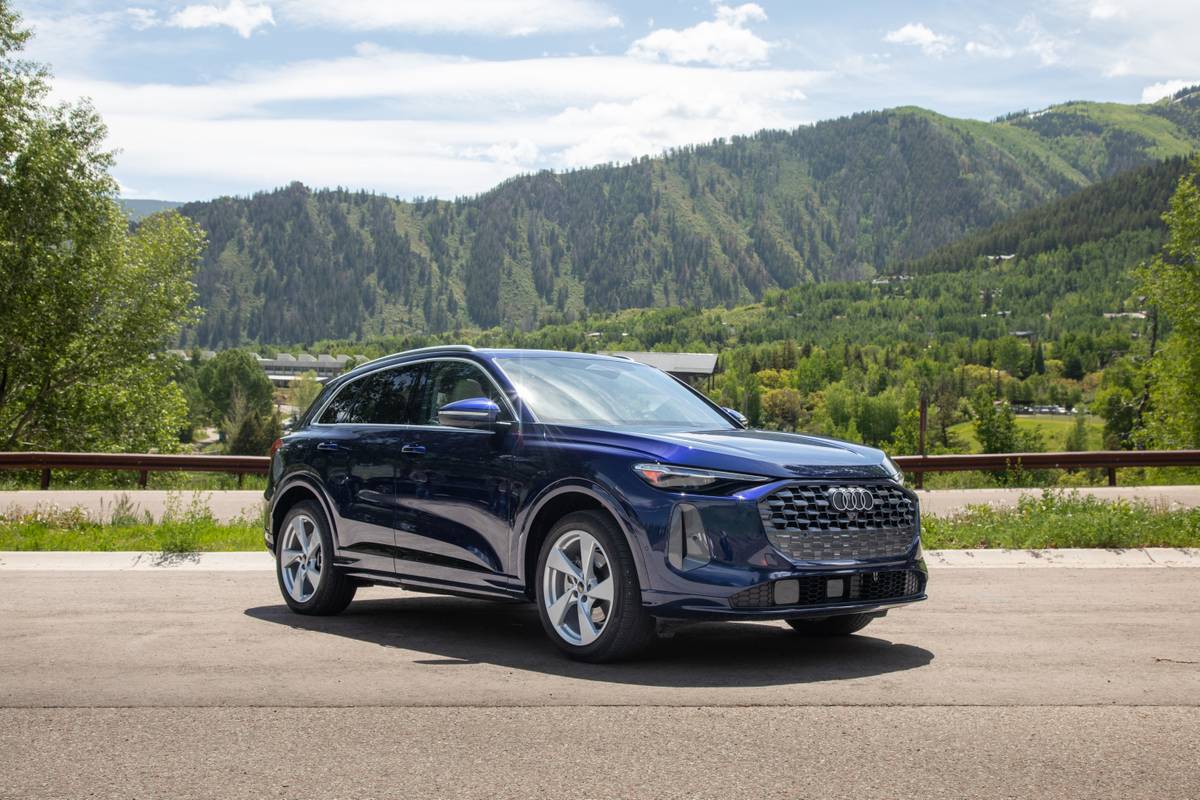
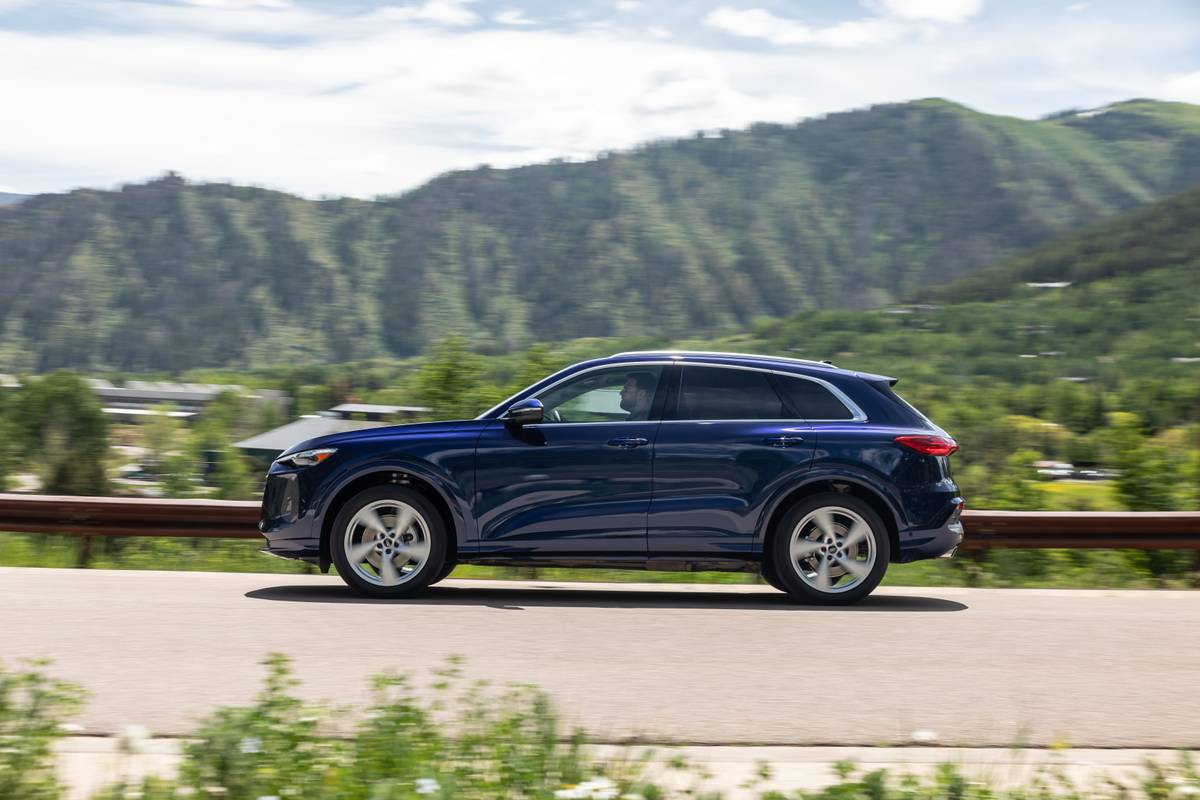
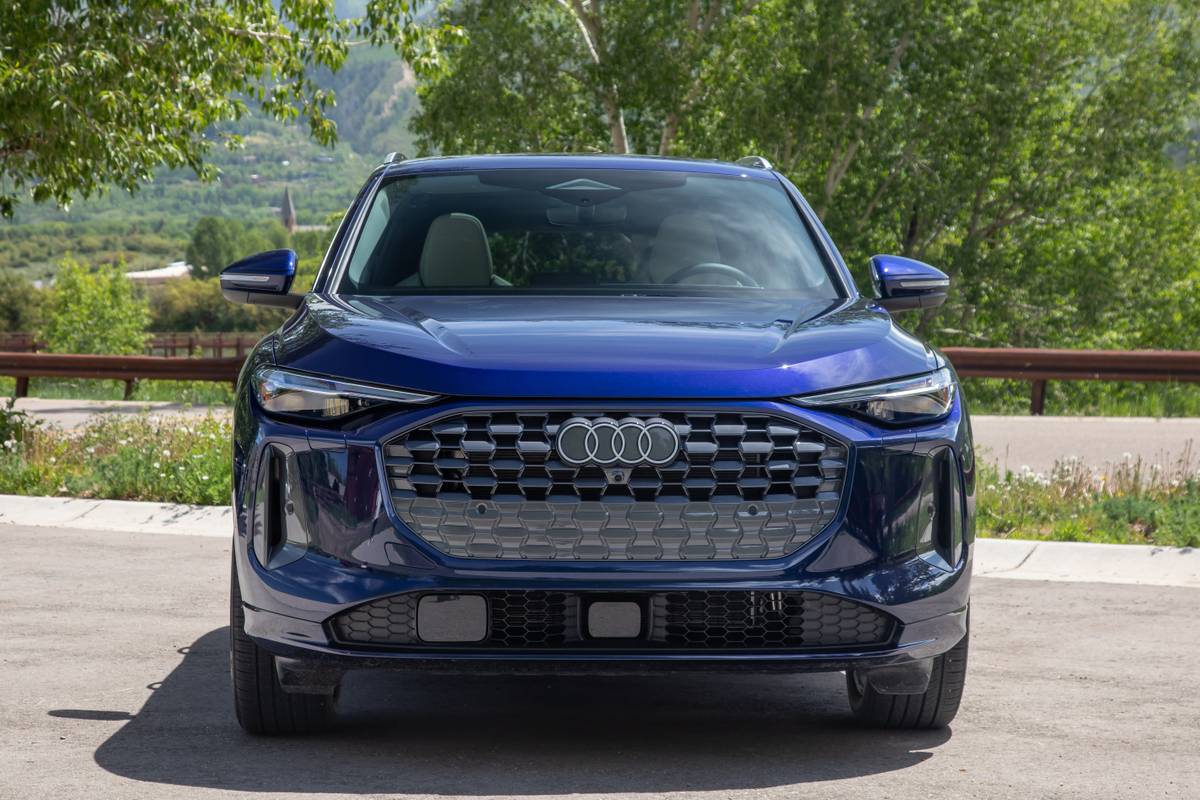
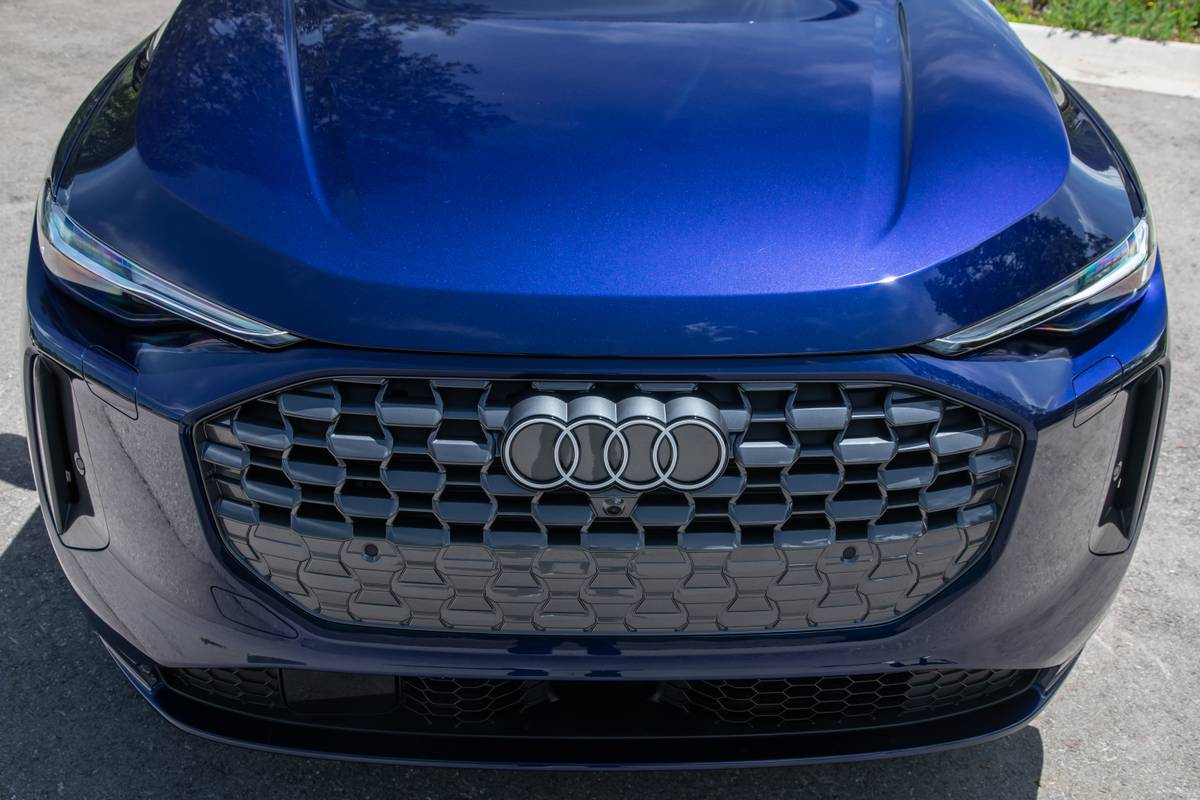
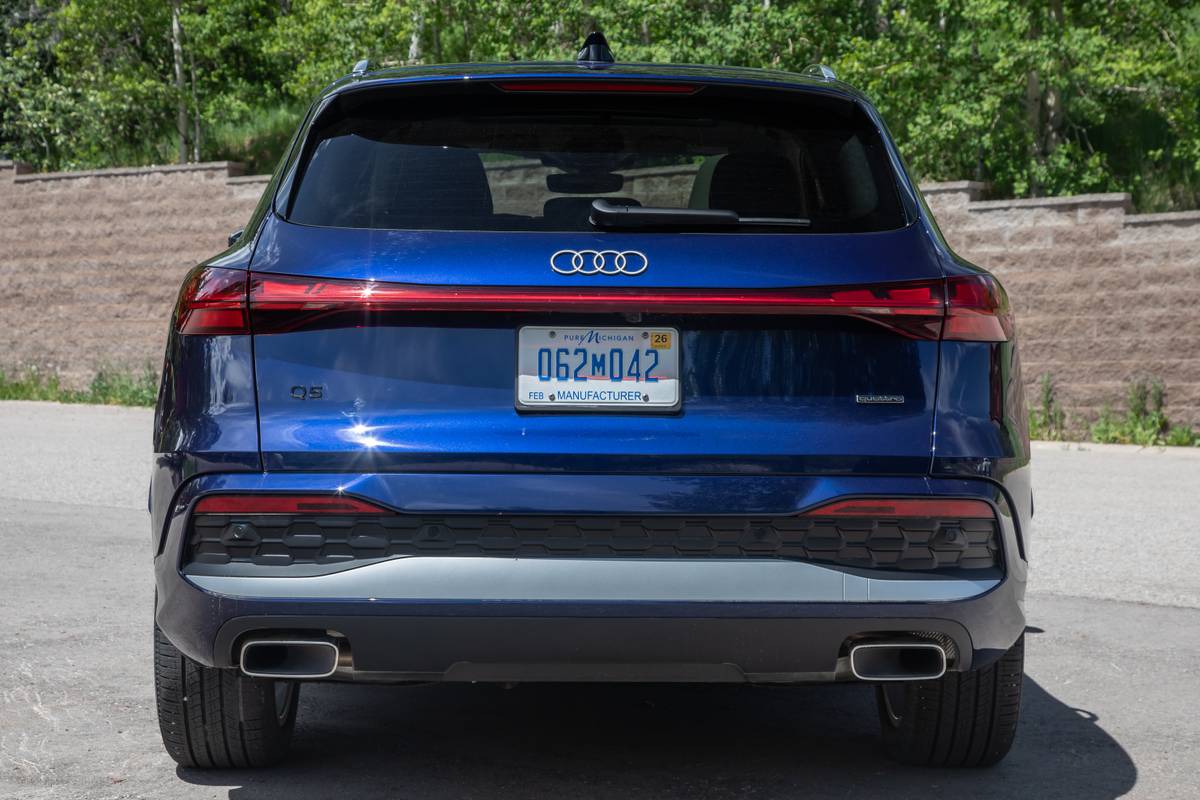
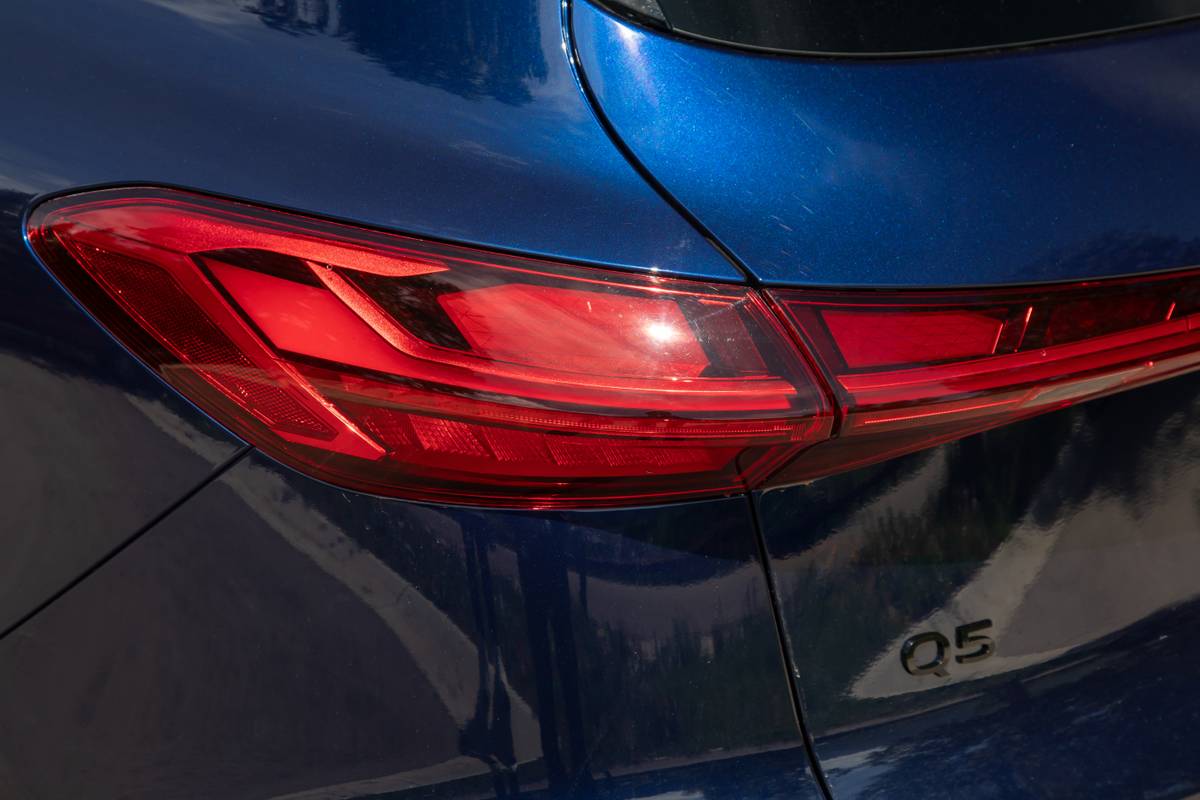
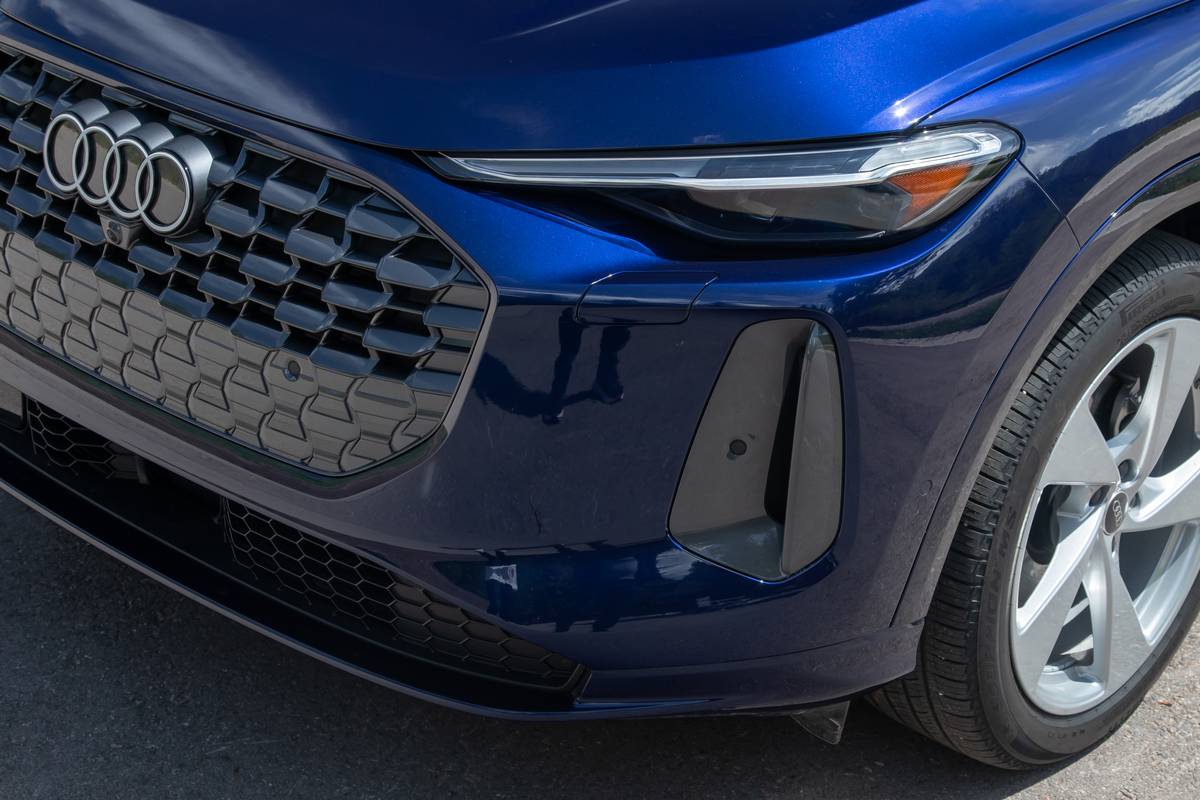
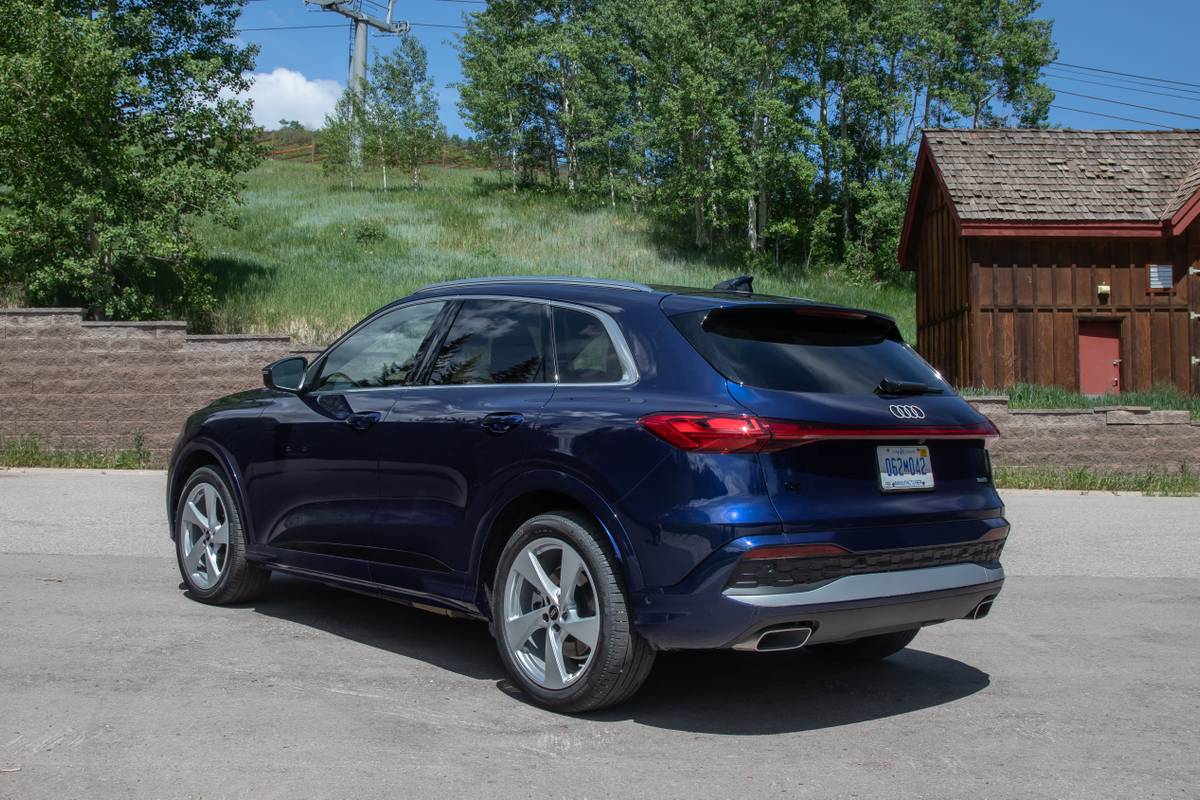
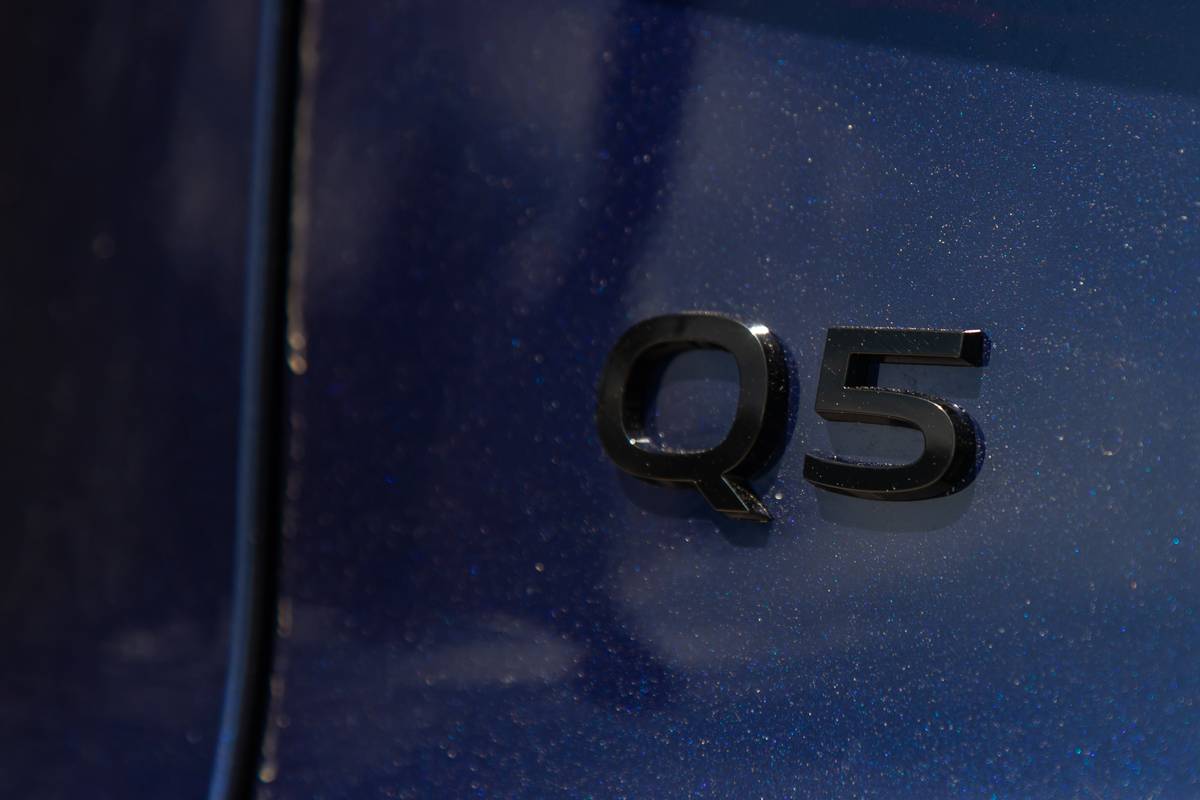
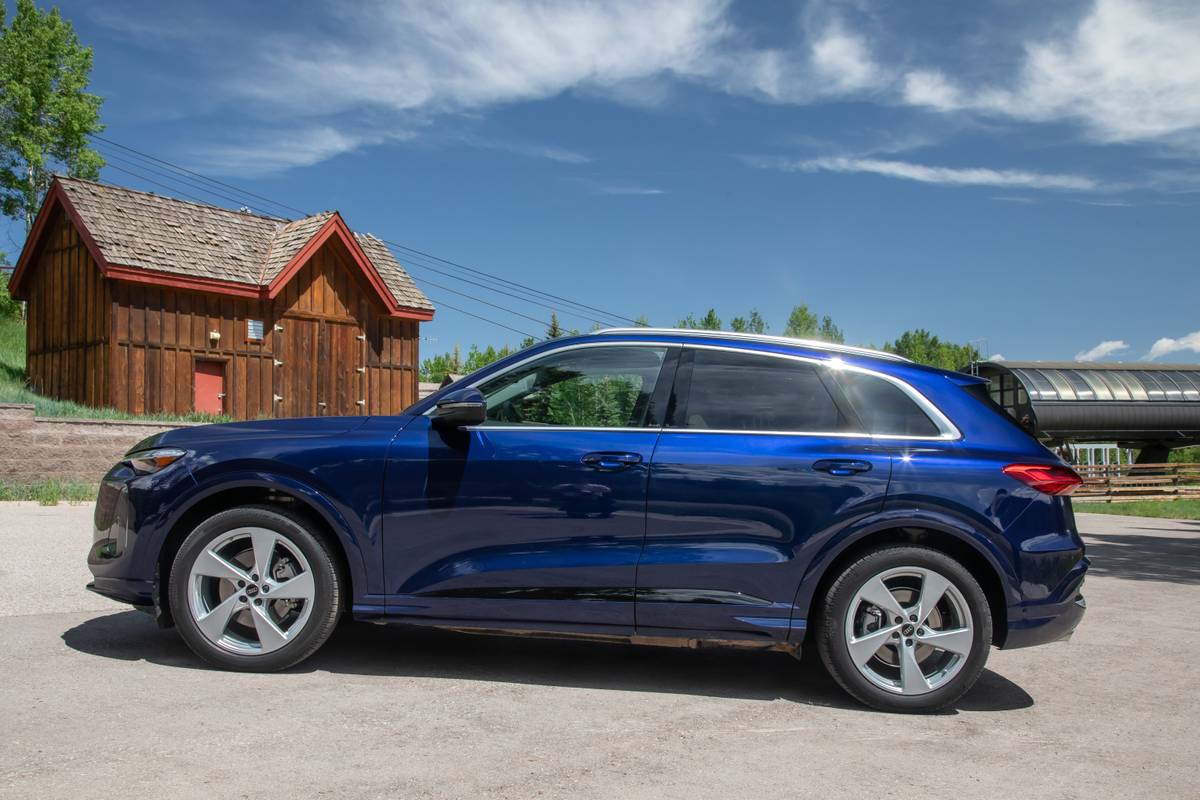
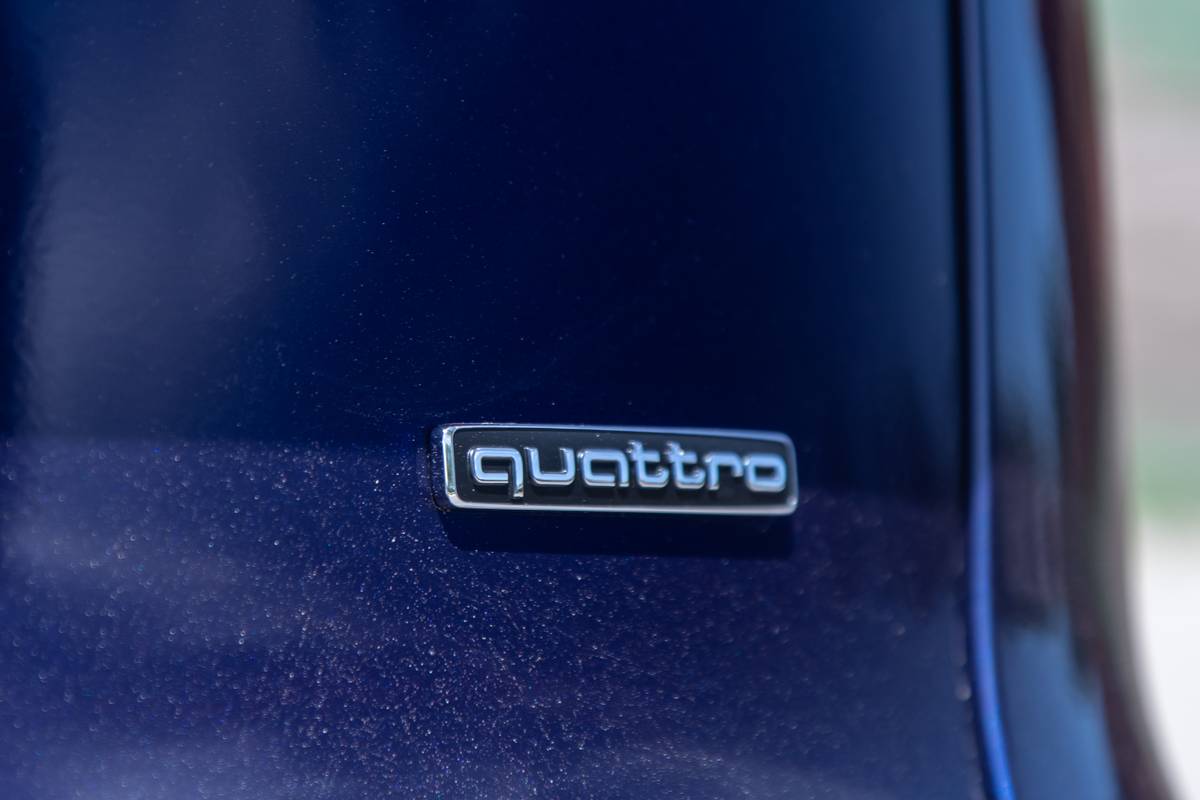
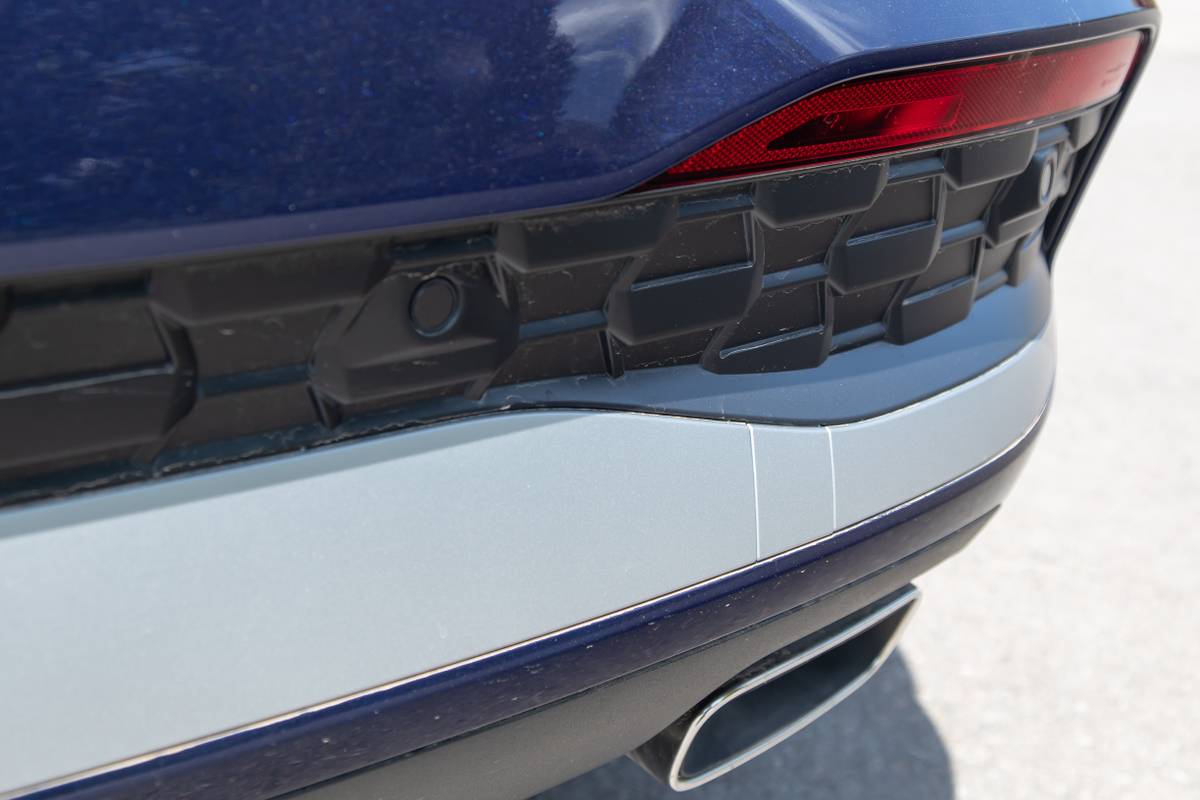
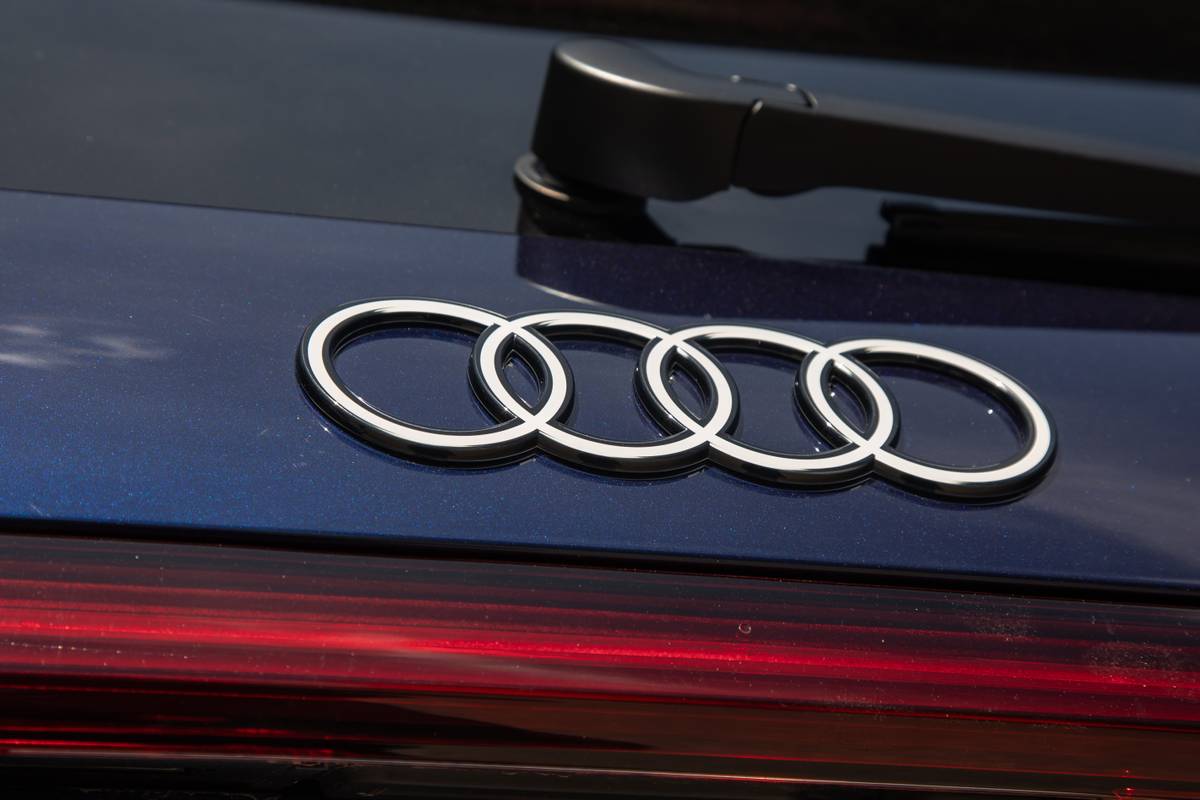
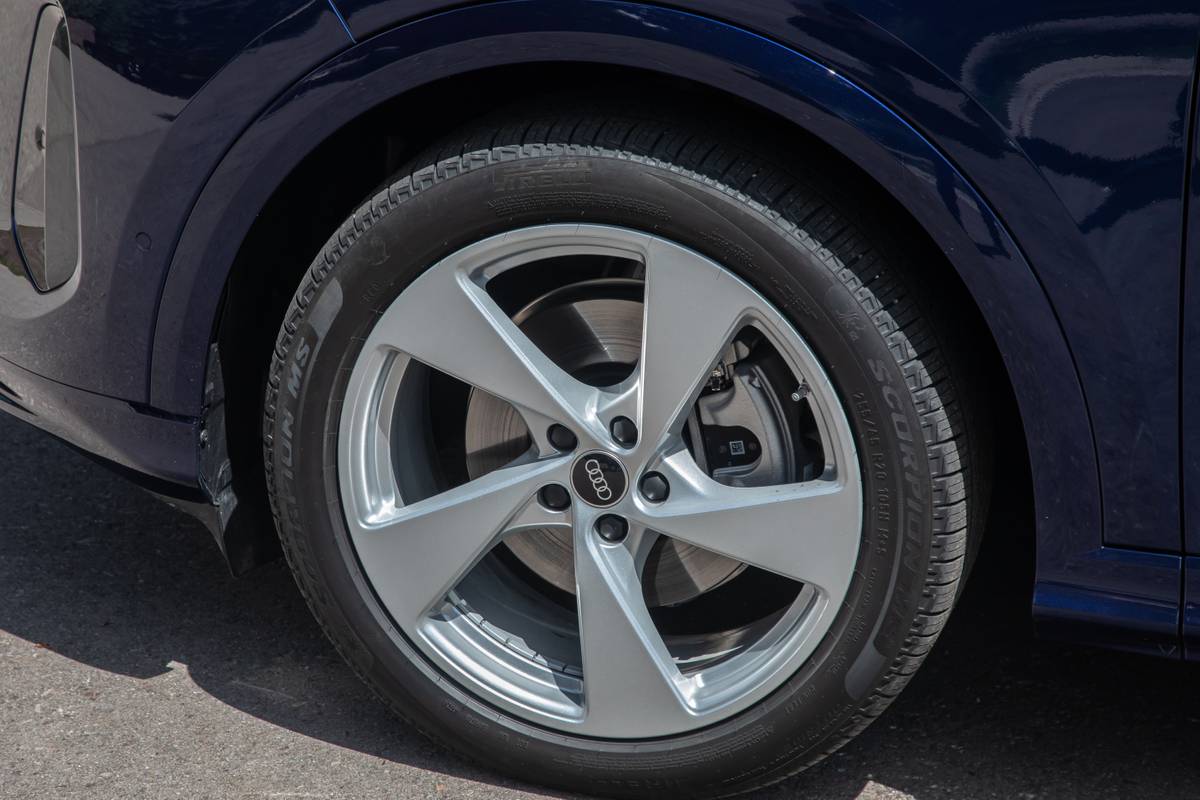
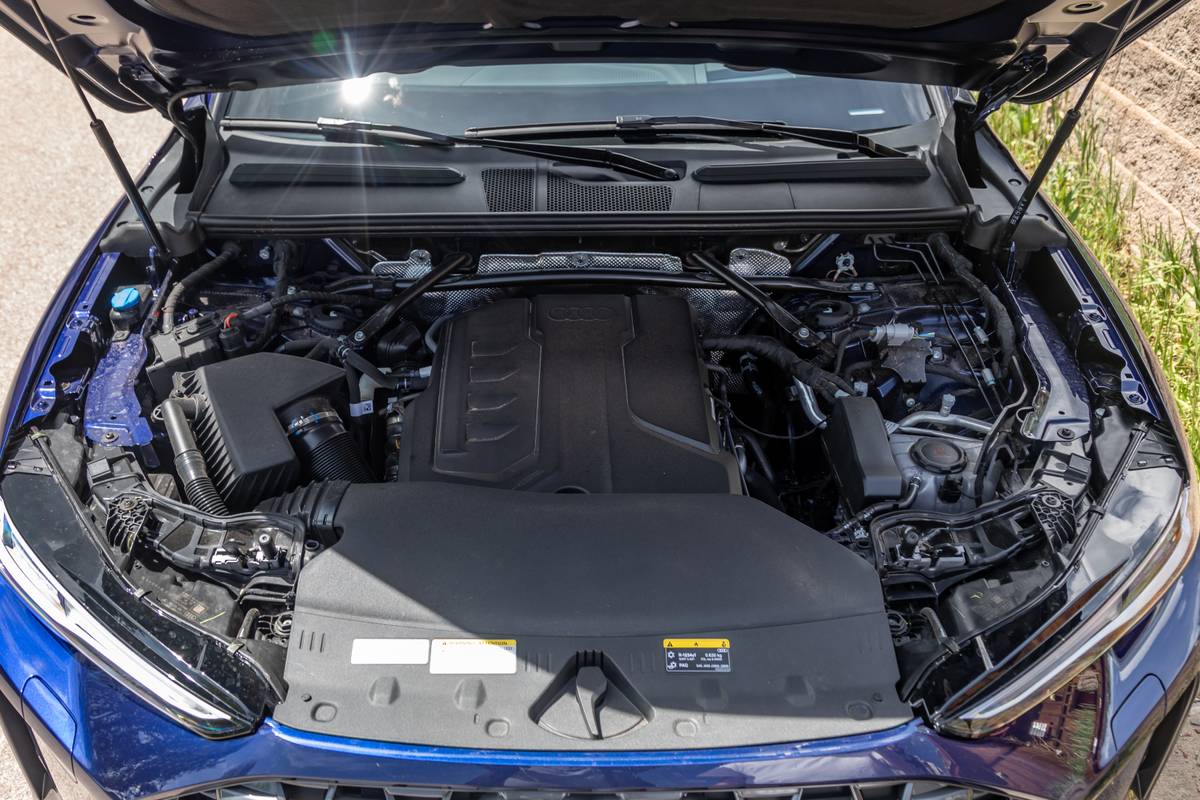















Power comes from a turbocharged 2.0-liter four-cylinder engine making 268 horsepower and 295 pounds-feet of torque. That’s 7 hp and 22 pounds-feet more than the previous four-cylinder-powered Q5 — not a lot more, for sure, but more nonetheless. A seven-speed dual-clutch automatic transmission is standard, as is all-wheel drive. The powertrain is smooth and adequately powerful, with the dual-clutch automatic shifting intelligently enough that it never got in its own way during my drive. The transmission also handled low-speed driving without causing any powertrain shuddering.
Comfort, not sportiness, is king in the Q5, and while the steering and suspension have been updated to provide better feedback, the Q5 doesn’t beat up occupants. Even over washboard dirt roads, bumps are impressively isolated from both the seats and the steering wheel. The Q5 I tested included Off-Road and Off-Road Plus modes along with Comfort, Balanced and Dynamic settings, but there’s little noticeable difference between them. Dynamic firms up the steering and the available air suspension a smidge, while Comfort dials up the softness and Balanced allows for an in-between setting. The result remains the same: The Q5 is pleasant to drive.
More From Cars.com:
- 2025 Audi Q5 Gains New Packages, Starts at $46,695
- Tariffs on Mexican, Canadian and Chinese Goods Could Affect These Cars the Most
- 7 Audi SUVs Earn IIHS Top Safety Pick Awards
- Research the 2025 Audi Q5
- Research the 2025 Audi SQ5
How Does the 2025 SQ5 Drive?
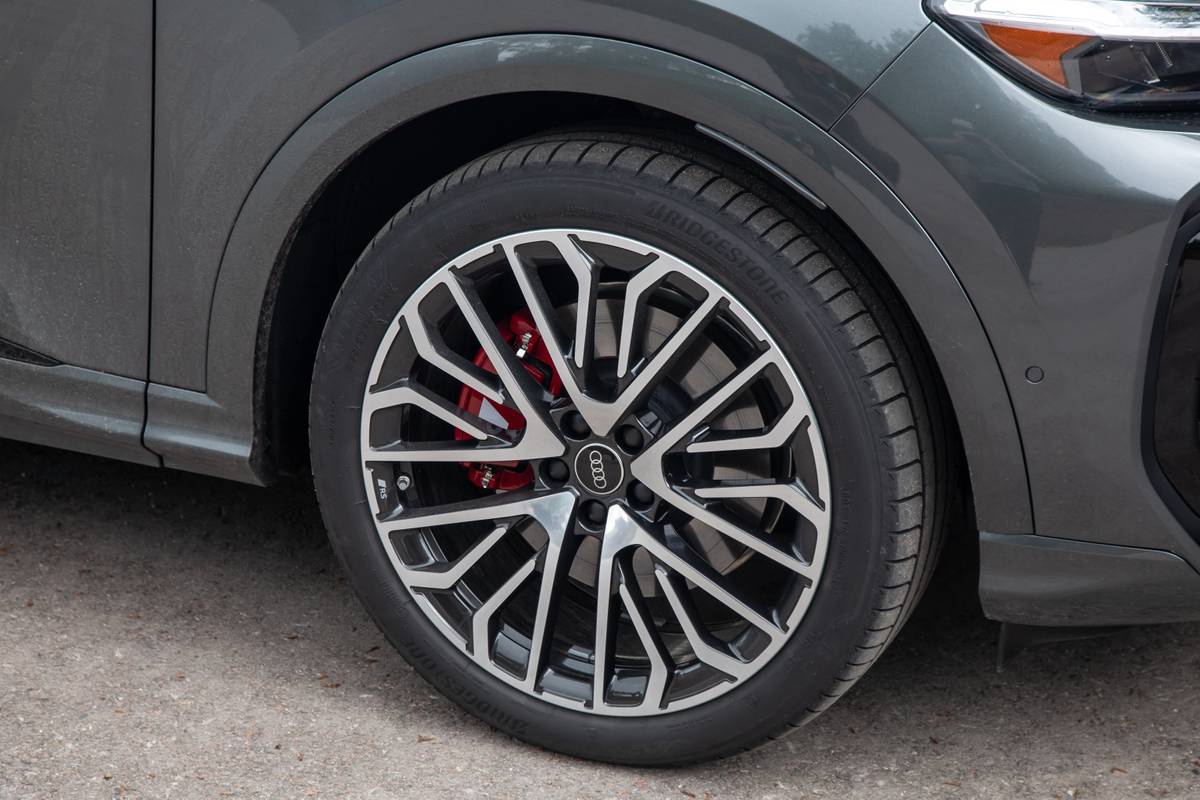
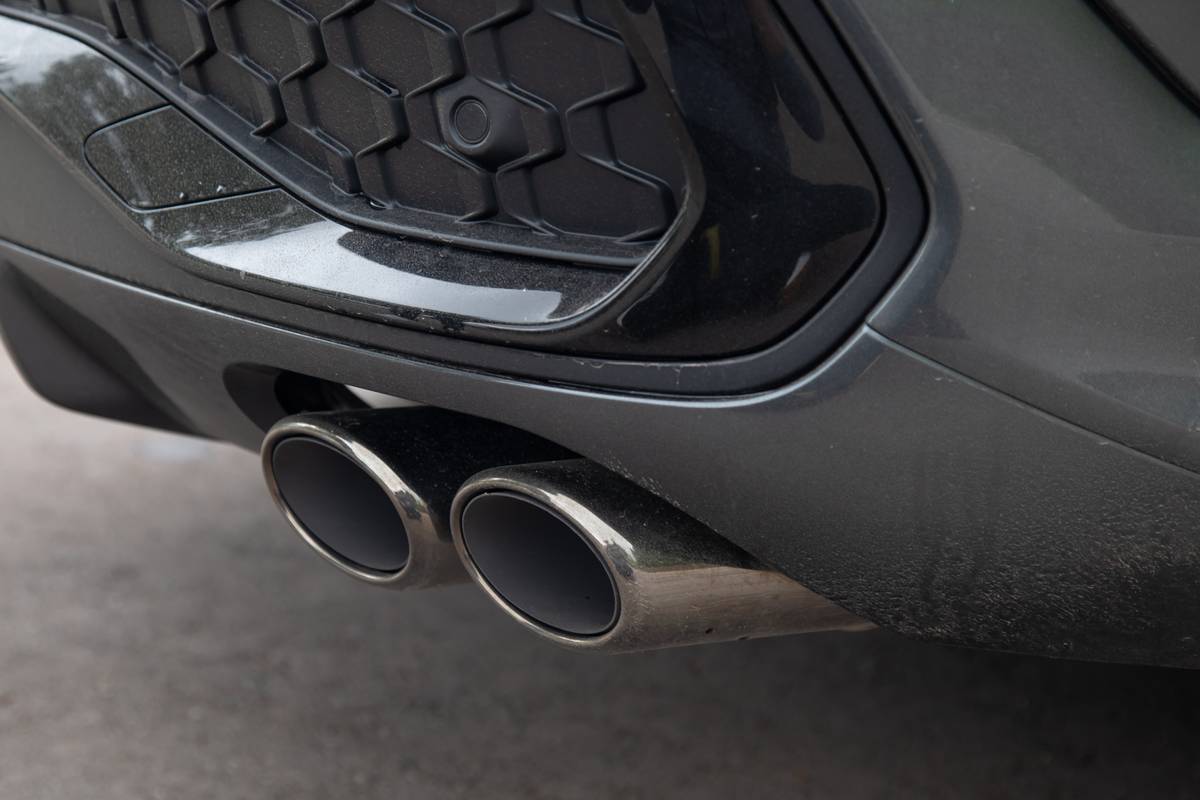
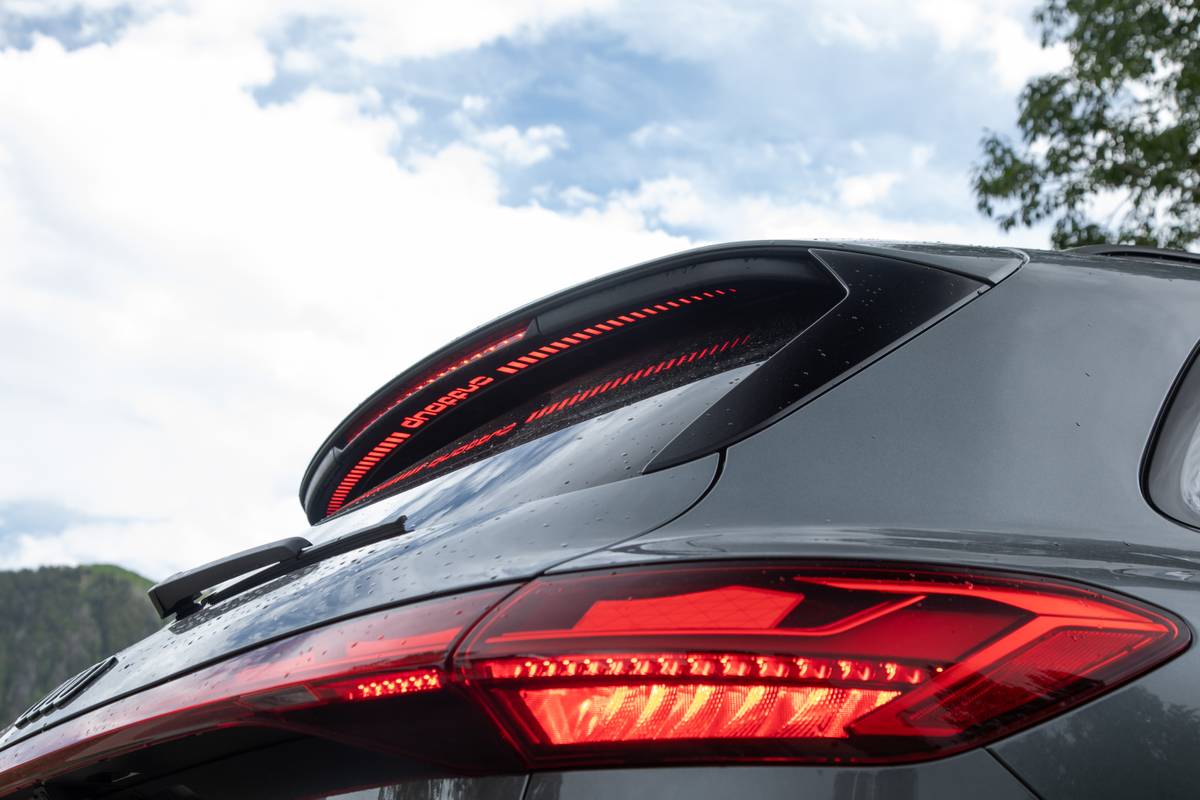
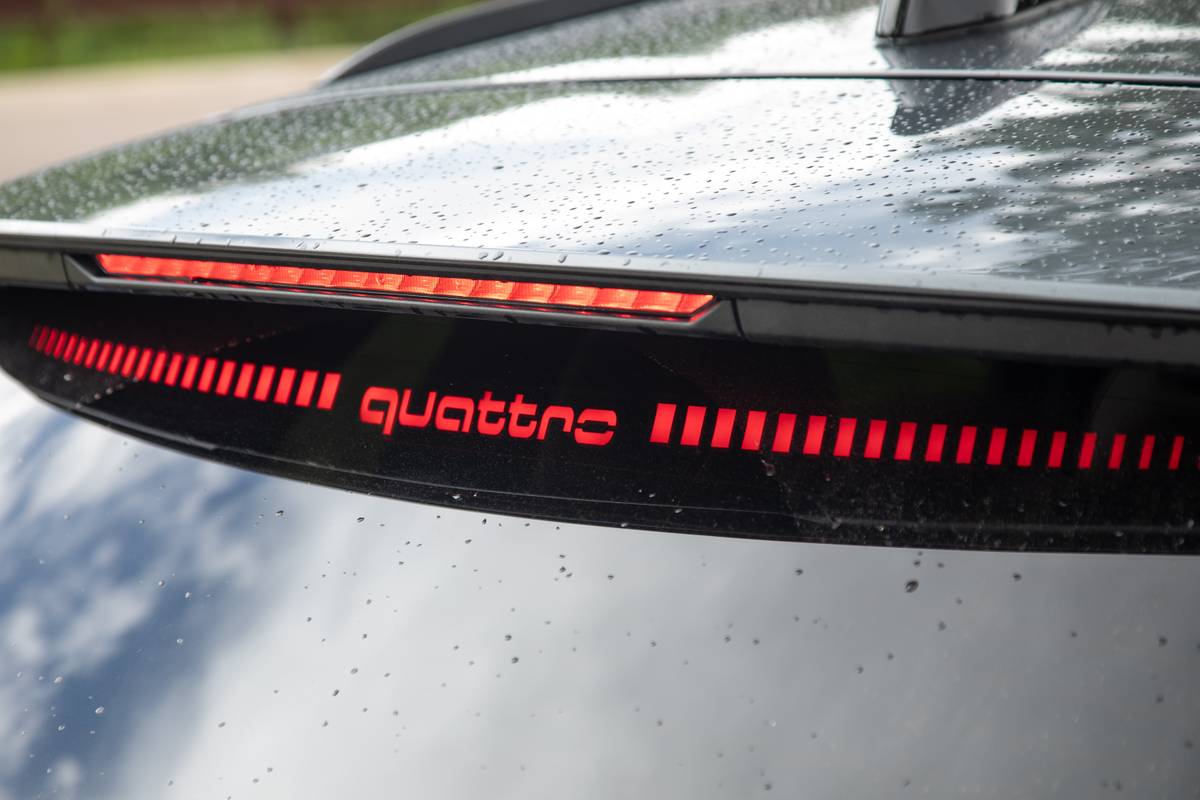
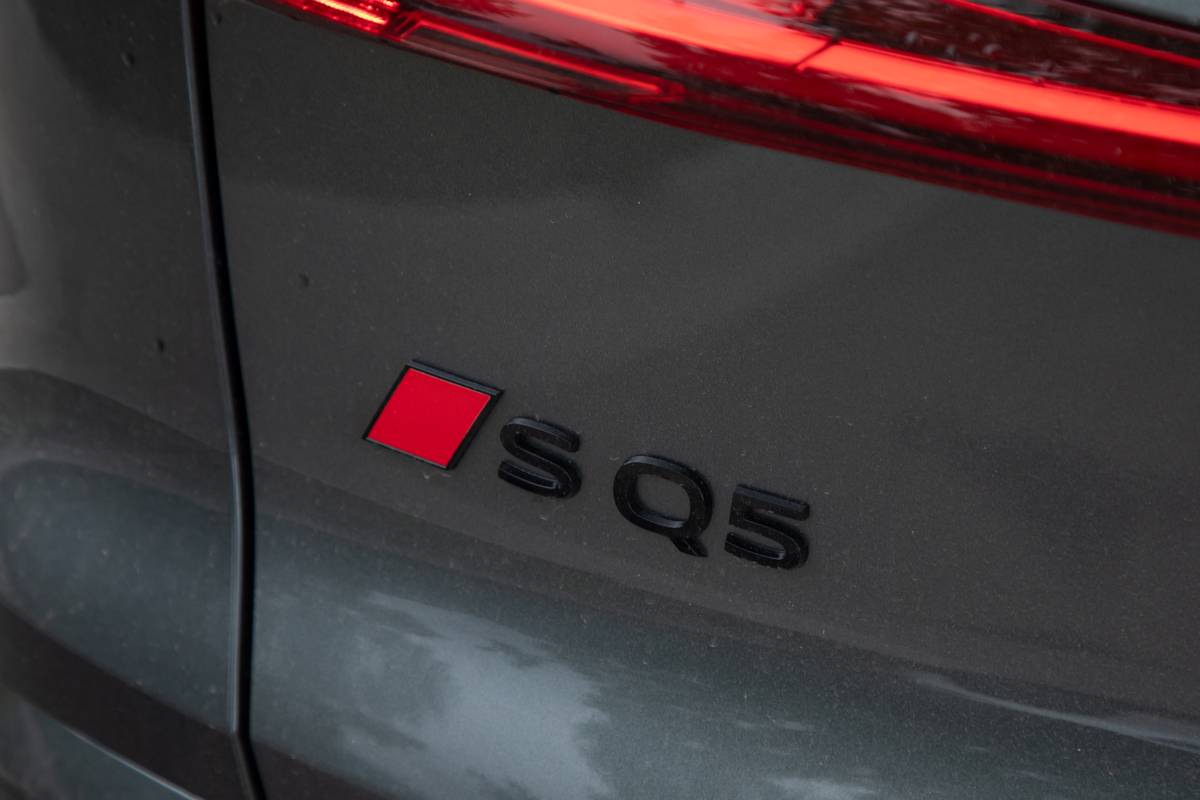
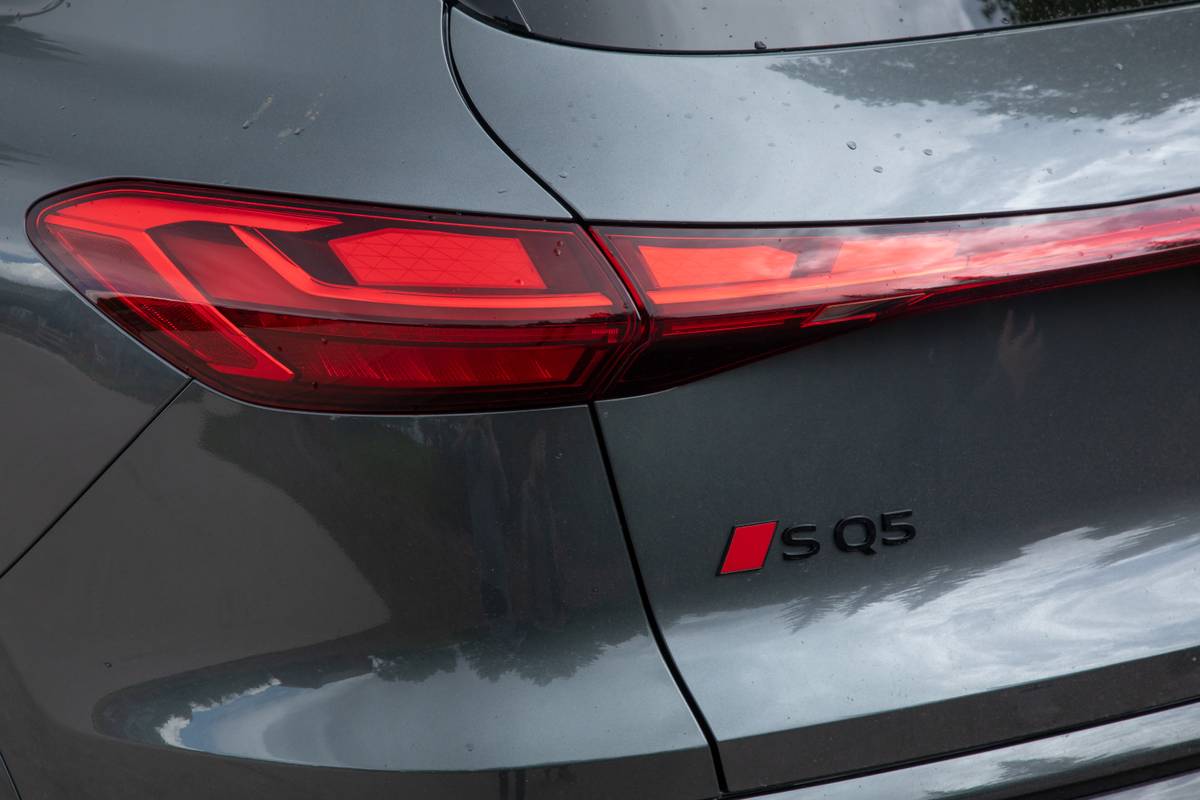
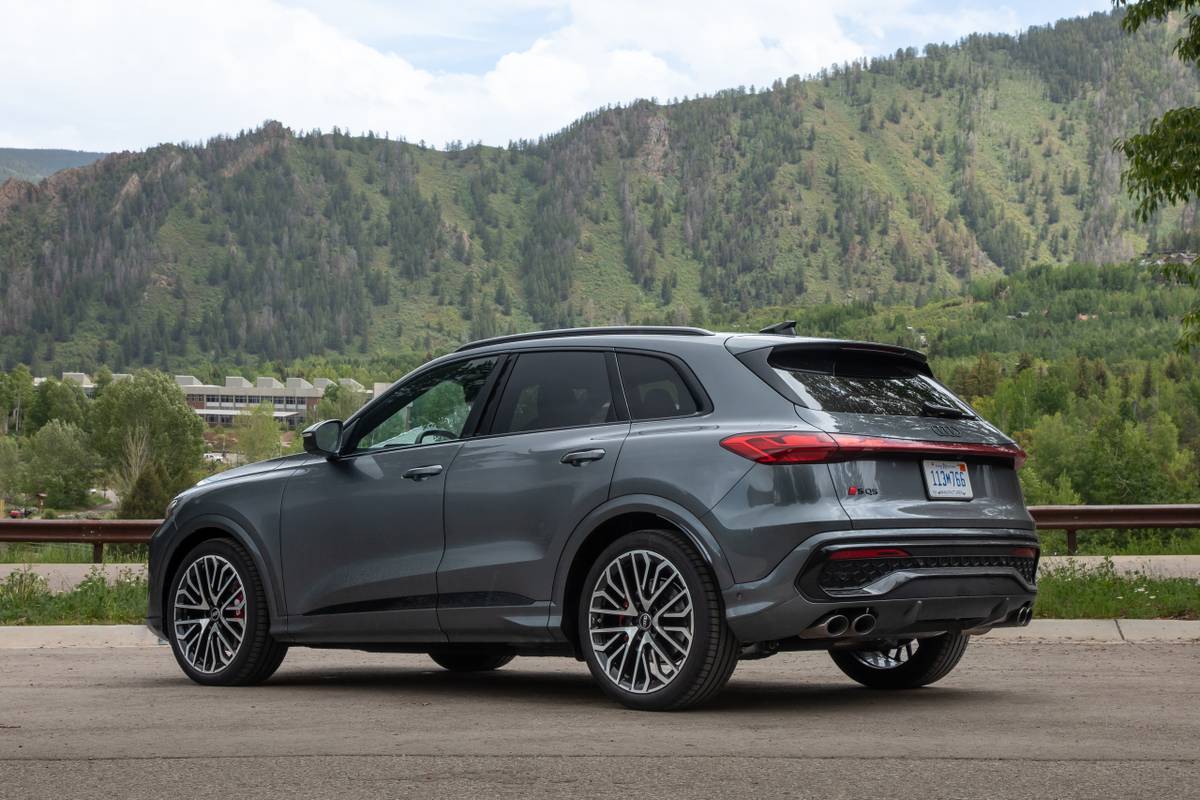
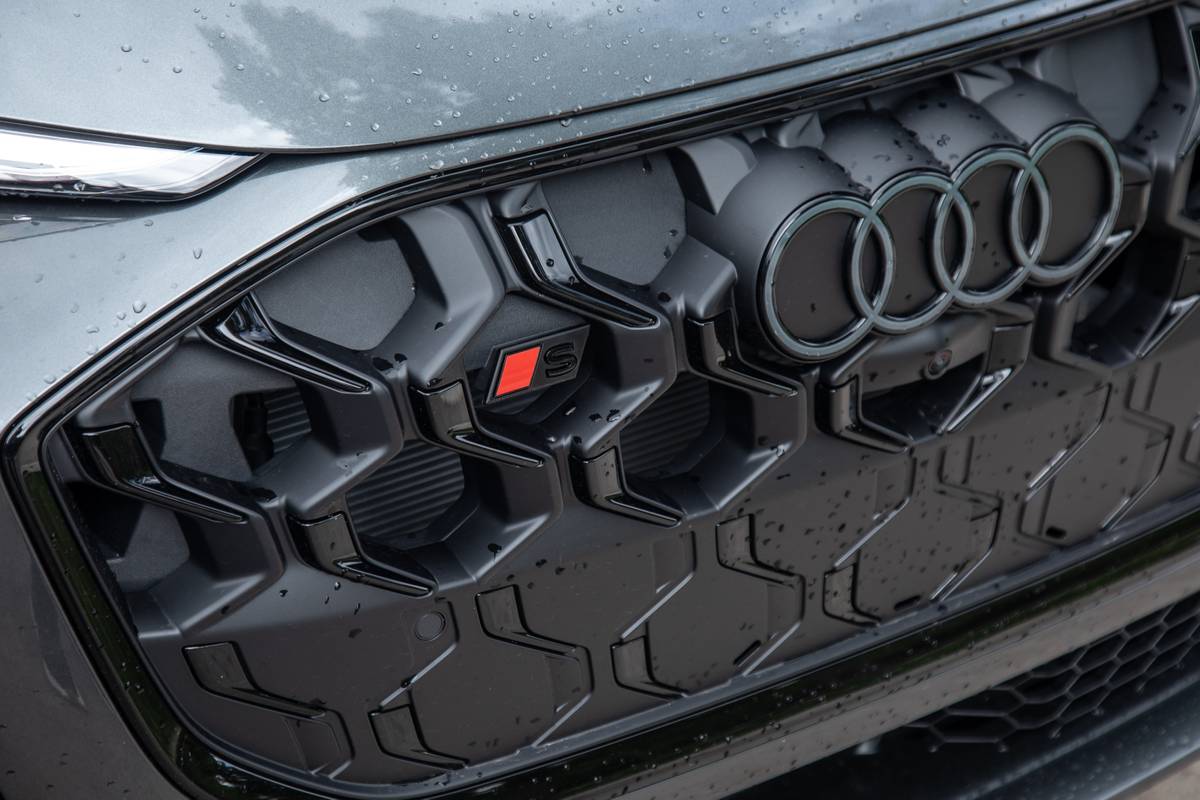
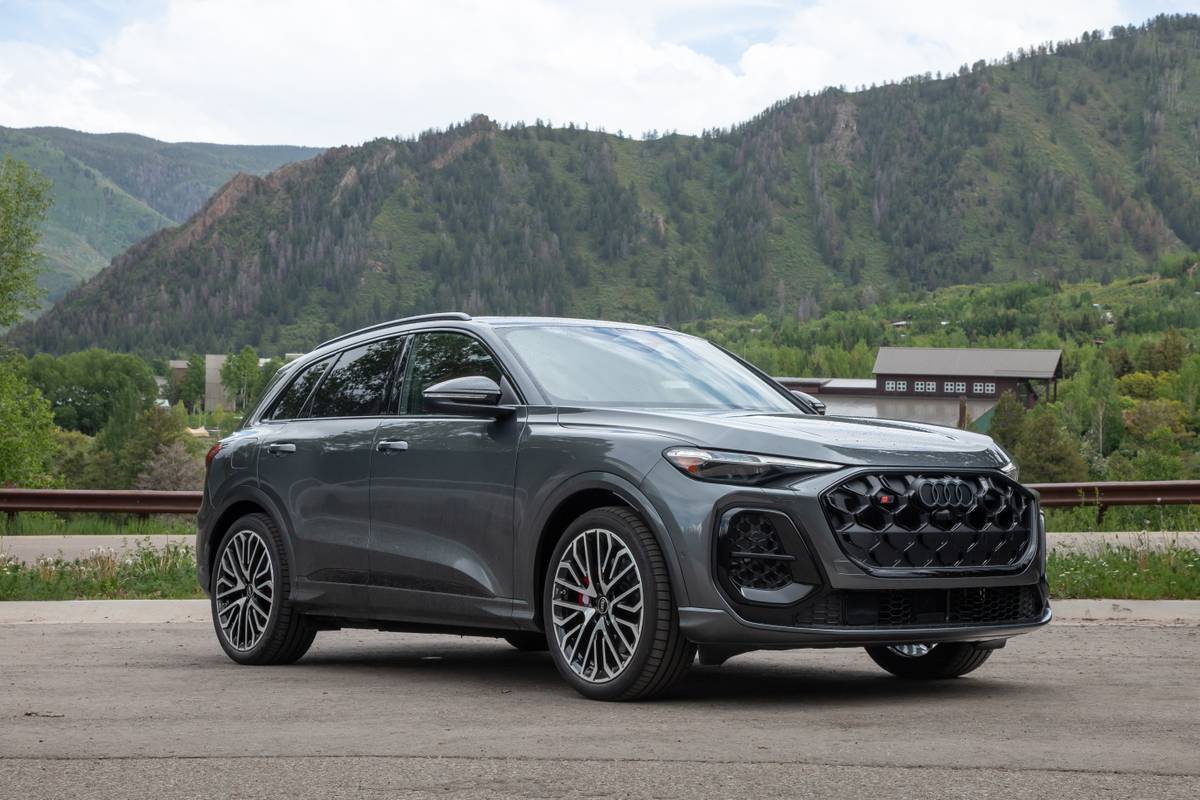
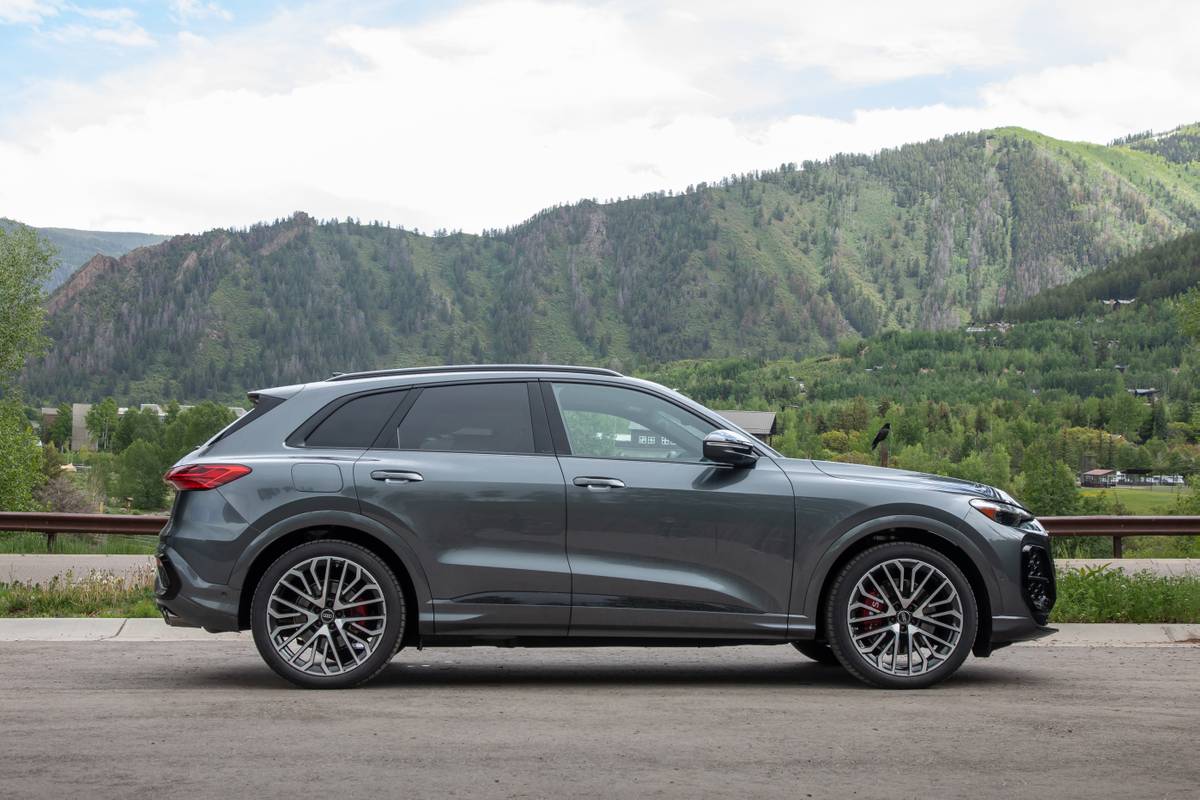
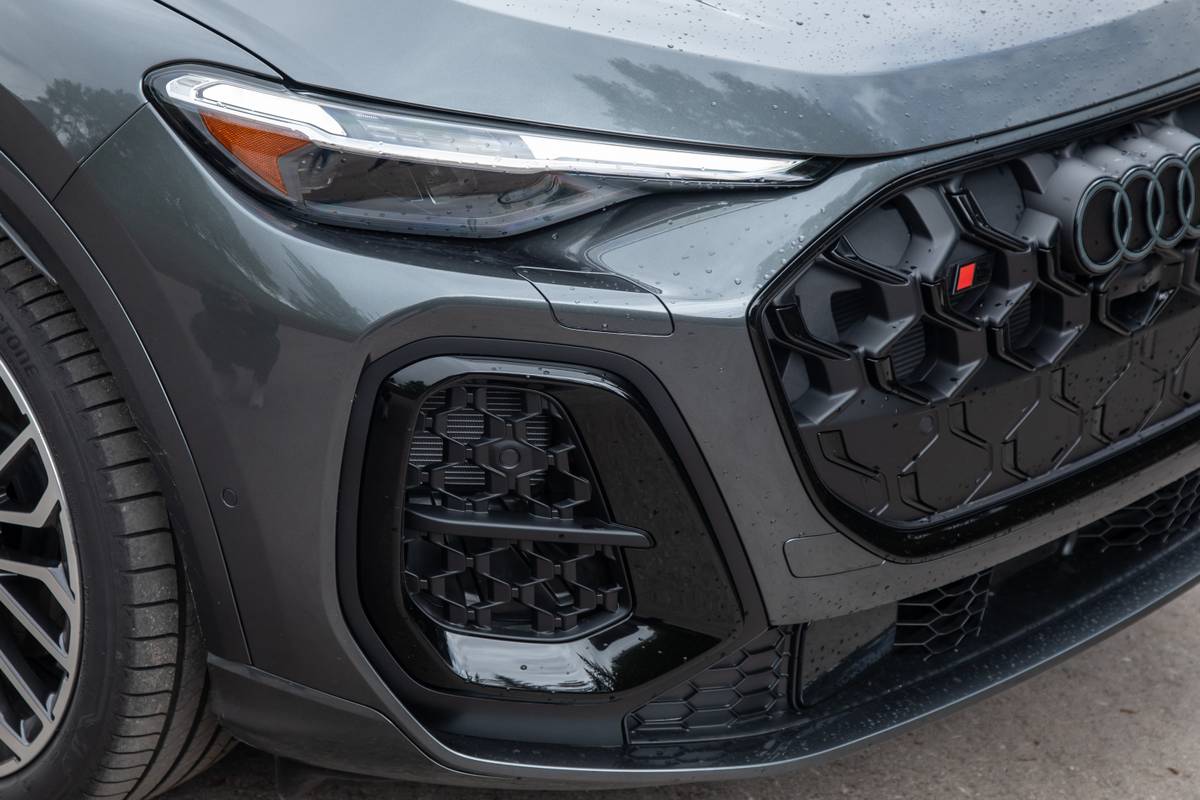
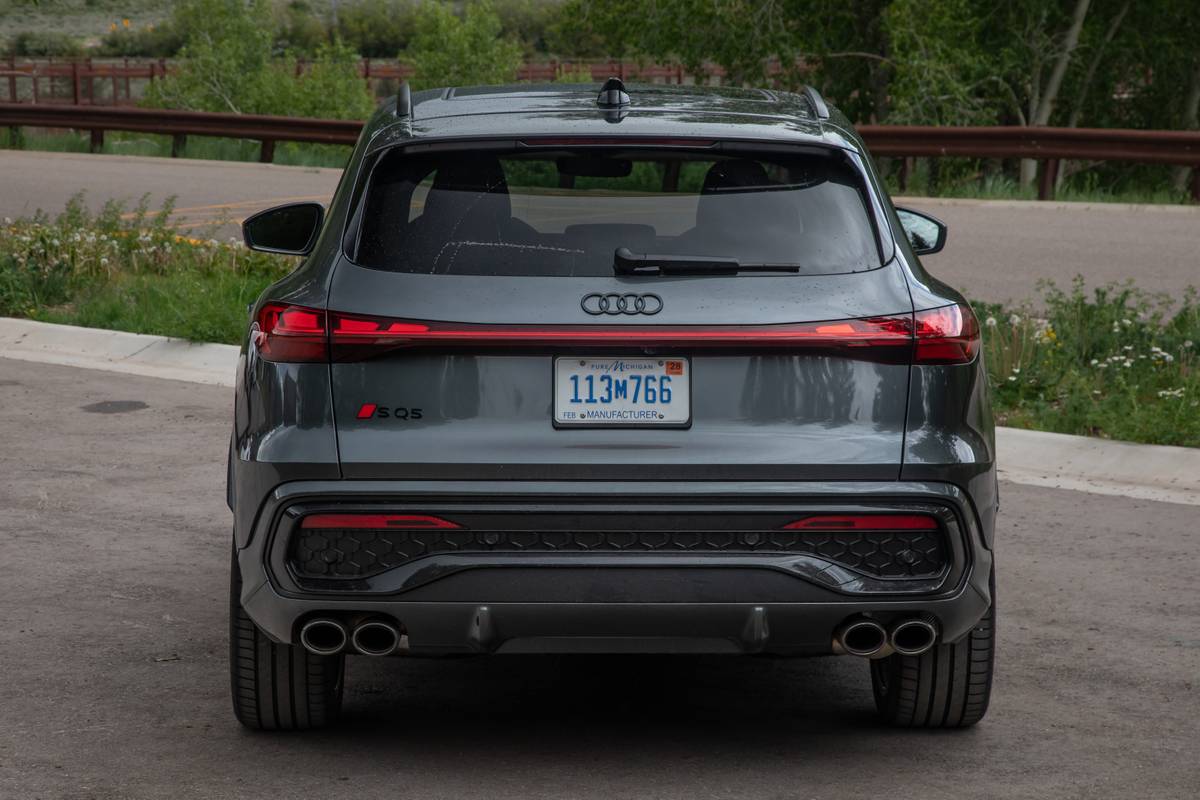
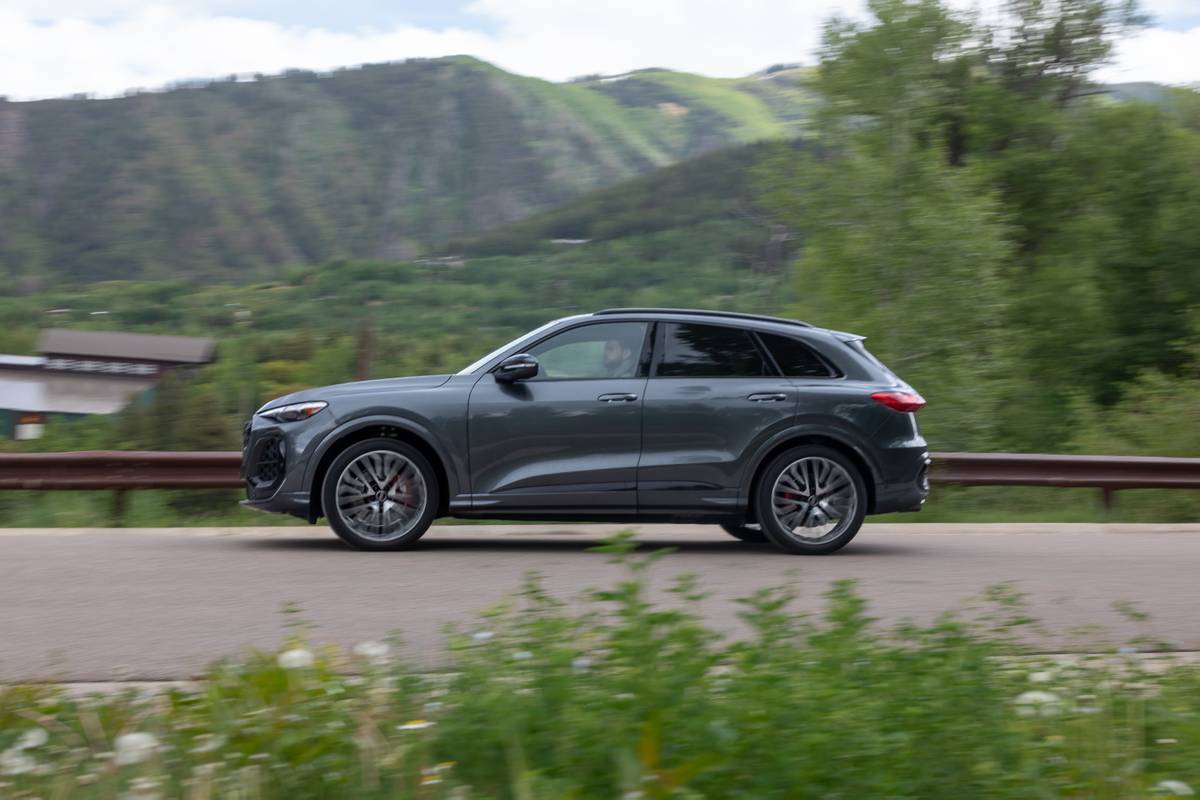
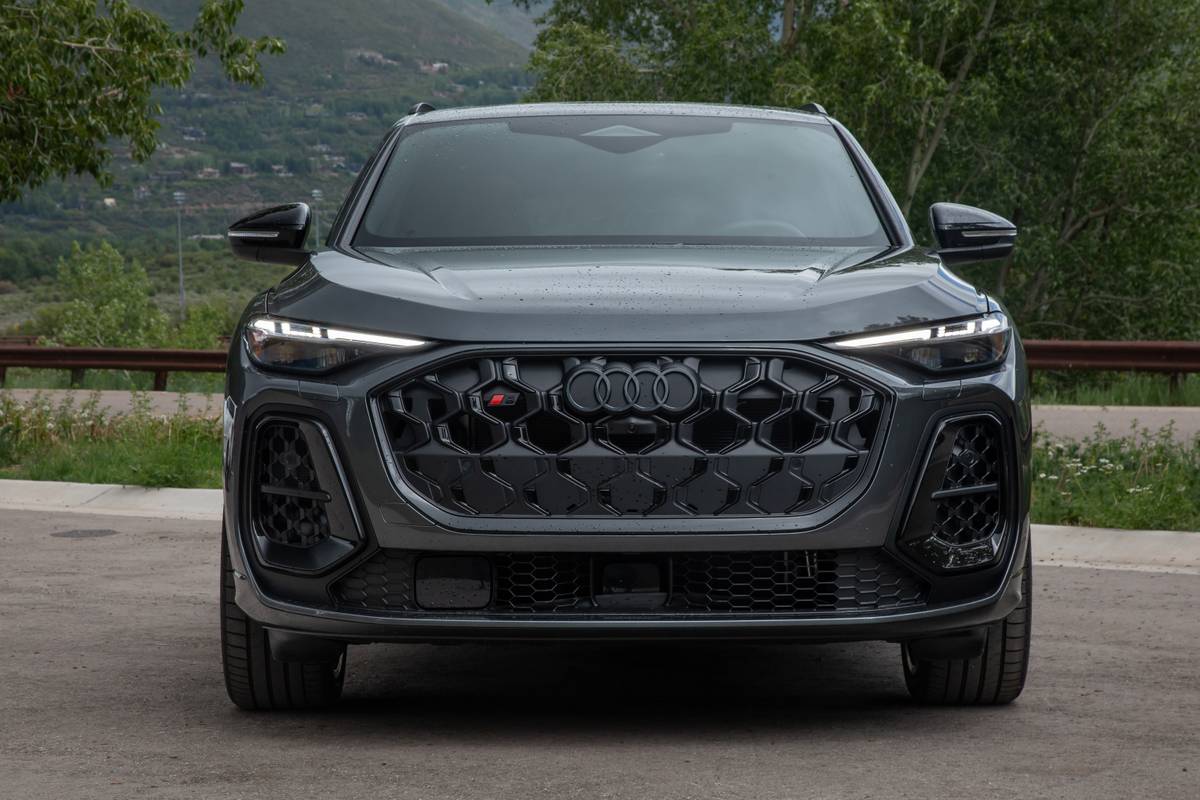
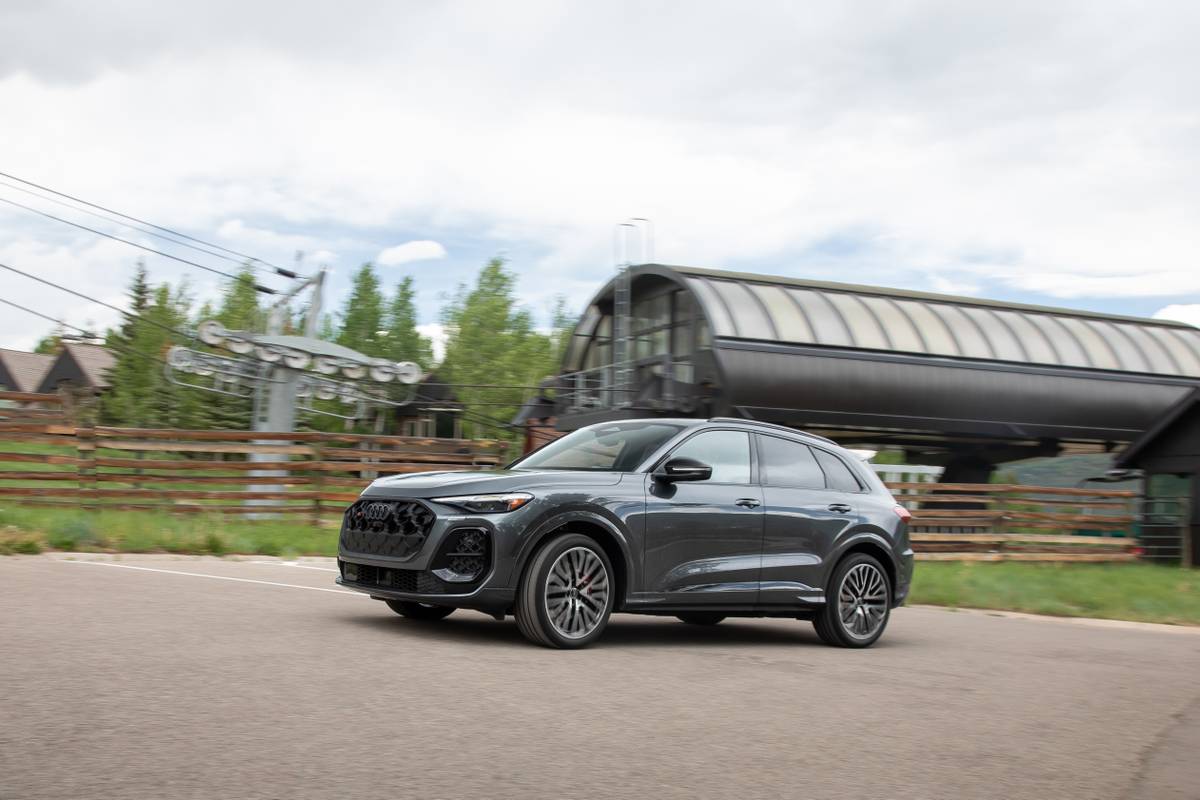
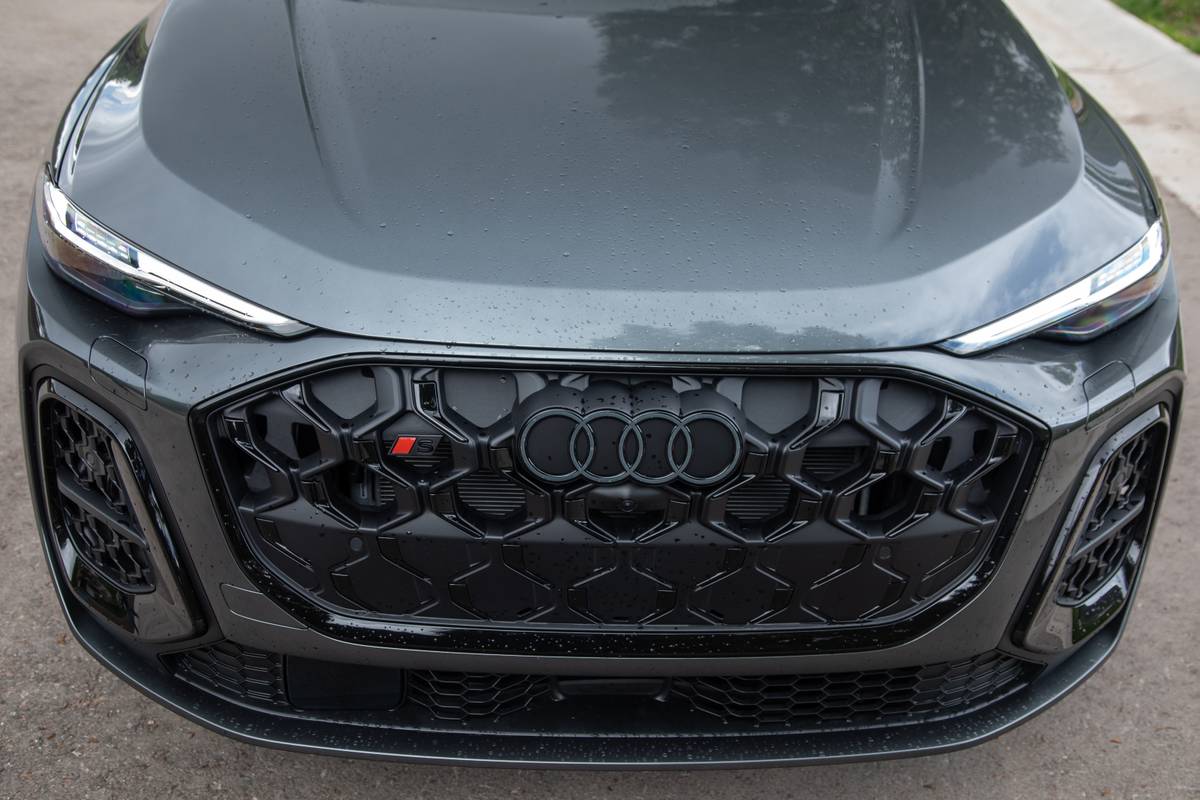
















In the SQ5, things are far more raucous. It gets the same transmission and standard AWD, but under the hood is a turbo 3.0-liter V-6 that now makes 362 hp and 406 pounds-feet of torque — 13 hp and 37 pounds-feet more than before. It sounds fantastic, too, with a natural growl and burble that feels rare in today’s world of artificial exhaust augmentation.
Where the Q5 is well rounded, the SQ5 is much sharper, using the updated steering and its sport-oriented adaptive air suspension to great effect. It corners with minimal body roll and just a hint of understeer, and retains much of the Q5’s comfort when not in its Dynamic mode — and even in Dynamic, the ride is still fairly comfortable. In both SUVs, the seven-speed dual-clutch automatic transmission usually shifts intelligently and downshifts very aggressively, but it occasionally holds onto gears a bit too long in its Sport setting, which is activated automatically in Dynamic mode. Having just driven the new Genesis GV70 with its twin-turbo V-6 and liking it a great deal, I think I’d lean SQ5 if given the choice between the two; it’s just a bit more fun to drive.
Are the New 2025 Audi Q5 and SQ5 Better Than Before?
Absolutely. With the exception of some very annoying controls, the updated Q5 family improves on what was already a winning formula, making the new 2025 Q5 and SQ5 the best versions of Audi’s bestseller.
Cars.com’s Editorial department is your source for automotive news and reviews. In line with Cars.com’s long-standing ethics policy, editors and reviewers don’t accept gifts or free trips from automakers. The Editorial department is independent of Cars.com’s advertising, sales and sponsored content departments.

Road Test Editor Brian Normile joined the automotive industry and Cars.com in 2013, and he became part of the Editorial staff in 2014. Brian spent his childhood devouring every car magazine he got his hands on — not literally, eventually — and now reviews and tests vehicles to help consumers make informed choices. Someday, Brian hopes to learn what to do with his hands when he’s reviewing a car on camera. He would daily-drive an Alfa Romeo 4C if he could.
Latest news
